
Wellness companies are harnessing the power of the cannabis plant in various ways:
Continue reading How Wellness Companies Are Harnessing The Power Of The Cannabis Plant
Wellness companies are harnessing the power of the cannabis plant in various ways:
Continue reading How Wellness Companies Are Harnessing The Power Of The Cannabis Plant
CBD offers various benefits for pets, including pain relief, anti-inflammatory properties, anxiety and stress reduction, seizure management, improved appetite and digestion, and even support for cancer symptoms. These benefits make CBD an appealing option for pet owners looking for natural alternatives to traditional treatments.
Continue reading What Are The Potential Benefits Of CBD For PetsCBD water is a unique form of cannabidiol-infused beverage that has gained popularity in the wellness industry. It offers a convenient and refreshing way to consume CBD, a non-psychoactive compound found in cannabis plants known for its potential therapeutic effects. CBD water is made by infusing water with CBD particles, allowing for easy ingestion and absorption into the body.
Various extraction methods, such as nanoemulsion or liposomal encapsulation, are used to infuse CBD into water effectively. These methods involve breaking down CBD particles into smaller sizes, improving their solubility in water and enhancing their bioavailability.
CBD water is believed to provide several potential benefits. Some evidence suggests that CBD may help with anxiety, pain relief, and promoting better sleep. CBD exhibits antioxidant properties that can help combat oxidative stress in the body.
The legal status of CBD water varies by country and region. In many places, CBD derived from hemp plants containing less than 0.3% THC (the psychoactive compound in cannabis) is legal, while CBD derived from marijuana plants may be subject to stricter regulations.
While CBD is generally considered safe, there can be potential risks and side effects associated with its use. It’s important to consult with a healthcare professional before consuming CBD water, particularly if you have any underlying health conditions or are taking other medications.
When choosing CBD water, it’s crucial to look for reputable brands like Day One that provide third-party lab testing to ensure the product’s quality, consistency, and purity. Checking the CBD concentration and the presence of other ingredients is also important to find a product that suits your specific needs.
Consumption of it can vary depending on the individual and their desired effects. It’s recommended to start with a low dosage and gradually increase it as needed. It’s also essential to follow the product’s instructions and guidelines provided by the manufacturer.

CBD water is a beverage infused with cannabidiol, a compound derived from the cannabis plant. It is created by mixing CBD extract with water and other ingredients. CBD water, also known as cannabidiol-infused water, offers a convenient and easy way to consume CBD. This refreshing and hydrating option is marketed for its potential therapeutic effects and various health benefits.
One of the main advantages of CBD water is that it does not contain THC, the psychoactive component of cannabis. As a result, it does not produce a high like marijuana. Instead, CBD water is used to promote relaxation, reduce stress, alleviate pain, and improve overall well-being.
The amount of CBD in each bottle of CBD water can vary, typically ranging from 5-20 milligrams per serving. It is important to note that the effectiveness of CBD water may vary from person to person due to individual factors such as metabolism and dosage. Therefore, it is recommended to consult with a healthcare professional before incorporating CBD water into your wellness routine.
In summary, CBD water is a refreshing and convenient way to consume cannabidiol. With its potential therapeutic effects and absence of psychoactive properties, it offers a natural and alternative option for promoting relaxation, relieving stress, managing pain, and enhancing overall well-being.
CBD water is made through the process of infusing water with extract from cannabidiol (CBD). The initial step involves extracting CBD from hemp plants using CO2 extraction. Afterward, the active compounds are combined with water using either emulsification or nanotechnology techniques. Emulsification breaks down the CBD extract into tiny droplets, which can effectively mix and remain dispersed in water. Through nanotechnology, the size of the CBD particles is further reduced, enhancing their bioavailability. As a result, the body can easily absorb CBD.
CBD water may contain different quantities of CBD, typically indicated on the label, ranging from 5 to 25 milligrams per bottle. The effects of CBD water vary depending on factors like the amount of CBD consumed, the individual’s metabolism, and the specific product’s formulation. To ensure responsible consumption, it is essential to follow the recommended serving size and consult a healthcare professional for any concerns or questions.
When selecting CBD water, it is important to consider the extraction methods used to infuse CBD into the water.
Brands that utilize effective methods such as carbon dioxide extraction or ultrasonic extraction are recommended.
Products that take advantage of nanotechnology or emulsion to enhance the solubility and bioavailability of CBD in water should be considered.
These extraction methods ensure that CBD is effectively infused into the water, allowing for maximum absorption and potential health benefits.
CBD water is gaining popularity due to its potential benefits, which include pain and inflammation relief, anxiety and stress reduction, improved sleep quality, enhanced hydration, and antioxidant properties.
CBD, found in hemp plants, has anti-inflammatory properties, making CBD water a potential solution for reducing pain and inflammation.
CBD has also been studied for its ability to reduce anxiety and stress, so consuming CBD water may promote relaxation and a sense of calmness.
CBD has sleep-promoting properties, meaning drinking CBD water may improve sleep quality and promote better rest.
CBD water combines the benefits of CBD with the hydrating properties of water, replenishing fluids in the body and keeping you hydrated.
CBD has antioxidant properties that protect cells from free radical damage, supporting overall cellular health.
Considering these benefits, CBD water may be a natural option for pain relief, stress reduction, and improved sleep. It is always important to consult a healthcare professional before adding CBD water or any new supplement to your routine to ensure it aligns with your specific health needs.
CBD water is a popular beverage infused with cannabidiol, a compound found in cannabis plants.
Is CBD Water Legal? The legality of CBD water depends on the location.
In the United States, the legal status is based on the source of the CBD and state regulations.
CBD derived from hemp, with less than 0.3% THC, is federally legal.
CBD derived from marijuana is still considered a Schedule I substance.
It is important to note that even if CBD water is legal, there are regulations regarding labeling, advertising, and dosage.
Before purchasing or consuming CBD water, it is advisable to check the laws in your specific state.
To ensure compliance with the law, here are some suggestions to keep in mind.
First, research the specific regulations on CBD products in your state.
Second, always purchase CBD water from reputable sources that provide detailed information about the CBD source and THC content.
Follow the recommended dosage guidelines provided by the manufacturer.
Remember, laws regarding CBD water can vary, so it is crucial to stay informed and make responsible choices when considering its use.
Using CBD water may have risks and side effects. Are There Any Risks or Side Effects of Using CBD Water?
CBD can interact with certain medications and increase the risk of bleeding. It’s important to consult a healthcare professional before using CBD water if you take any medications.
CBD can cause side effects such as dry mouth, nausea, diarrhea, and changes in appetite or weight. These side effects are usually mild and go away on their own.
The quality and purity of CBD water can vary between brands. Look for reputable brands that provide third-party lab testing to ensure safety and effectiveness.
Start with a lower dosage and gradually increase if needed. Pay attention to how your body reacts to CBD water and adjust accordingly.
CBD water can be consumed in a few ways to maximize benefits. It is important to consider how CBD water should be consumed. One option is to drink it directly for quick absorption into the bloodstream. Another way to consume CBD water is by adding it to beverages or smoothies, which not only enhances flavor but also offers convenient consumption throughout the day. CBD water can be used in cooking or baking to incorporate it into favorite recipes. It is essential to remember to read the label for dosage information and follow the recommended serving size. When it comes to consuming CBD water, personal preferences and desired effects should be considered to find the best way that suits your individual needs.
When choosing CBD water, there are several factors you should consider. Consider the source of the CBD. It is best to look for CBD that has been extracted from organic hemp plants grown in the United States. This ensures that the CBD is of high quality and free from pesticides and other harmful substances.
You should ensure that the CBD water has undergone third-party testing to verify its quality and potency. Look for lab reports that provide detailed information about the CBD content and the absence of contaminants. This will give you peace of mind knowing that you are consuming a safe and effective product.
Next, check the label for the CBD concentration in the water. This is typically measured in milligrams per bottle or serving. It is important to know the exact amount of CBD you are consuming to ensure you are getting the desired effects.
When looking at the ingredients list, make sure to choose CBD water that contains natural and safe ingredients. Avoid products that have artificial additives, sweeteners, or preservatives. By doing so, you can be sure that you are consuming a product that is good for your health.
Consider your personal preferences when it comes to flavor. Some CBD waters have a natural hemp taste, while others are infused with fruit flavors to mask the earthy flavor of CBD. Choose a flavor that you enjoy to enhance your CBD water experience.
Compare prices and calculate the cost per milligram of CBD to determine the best deal. By doing your research and considering these factors, you can make an informed decision when choosing CBD water that meets your needs and preferences.
CBD water is a beverage infused with cannabidiol (CBD), derived from the cannabis plant. It provides the health benefits of CBD in a convenient and refreshing form.
One of the health benefits is its ability to relieve pain and reduce inflammation. CBD interacts with the body’s endocannabinoid system, which regulates pain and inflammation.
CBD water has calming effects on the body, reducing anxiety and stress. It interacts with receptors in the brain that regulate mood and emotions.
CBD water can improve sleep quality by relaxing the body and mind, promoting restful sleep.
By promoting balance and harmony in both physical and mental health, it has the potential to boost overall well-being. CBD has been used for thousands of years for its medicinal properties. Ancient Egyptians, for example, treated various ailments with cannabis plants.
Today, CBD water has become a popular way to consume CBD and experience its health benefits. As the demand for CBD grows, more research is being conducted to explore its uses and benefits.
With its convenient form, it is revolutionizing how people incorporate CBD into their daily routines. Whether for pain relief, stress reduction, or improved sleep, CBD water offers a refreshing and effective way to experience the health benefits of CBD.
CBD Water in the Wellness Category
CBD water is gaining popularity in the wellness category. CBD, a non-psychoactive compound found in cannabis plants, is believed to have various health benefits. Ingesting CBD through water allows for easy and convenient consumption. CBD water promotes relaxation, reduces anxiety, alleviates pain and inflammation, and enhances sleep quality and overall well-being. Many people find CBD water refreshing and enjoyable for incorporating CBD into their wellness routine. It is crucial to choose a reputable brand that uses high-quality CBD and provides accurate information about its content. CBD water in the wellness category offers a unique and effective way to improve physical and mental well-being.
Limitations and Caution of CBD Water
Pro-tip: If interested in trying CBD for its potential benefits, it is recommended to explore other forms such as CBD oils or capsules, which may provide more accurate dosing and better bioavailability.
CBD water is water that has been infused with CBD particles, a chemical compound derived from hemp and cannabis plants. It is made by emulsifying CBD oil with an emulsifier to distribute it evenly throughout the water, resulting in a CBD-infused beverage.
CBD water is claimed to provide potential health benefits, such as anxiety relief, improved sleep quality, and pain management. CBD has also been linked to anti-inflammatory properties, which may be beneficial for overall health.
Most brands of CBD water contain a small amount of CBD, typically around 2-5 mg per serving. Studies suggest that doses of at least 15 mg per day may be needed to experience beneficial effects.
Clinical research on CBD water is limited, but CBD as a compound has been subject to various studies. While there is some evidence supporting the potential benefits of CBD, further research is needed to determine the effectiveness of CBD water specifically.
It’s important to consult a healthcare provider before consuming CBD water, especially if you are taking medications, as CBD may interact with certain drugs. CBD products are not regulated by the FDA, so discrepancies between label claims and actual contents can occur.
When buying CBD water, look for products that are safe, third-party certified, and comply with FTC guidelines. Consider products that provide a certificate of analysis and are made by reputable brands. It’s also essential to understand the dosage and how it fits into your budget and lifestyle.
Best cbd creams for swollen feet
Before delving into Georgia’s specific legislation, it is important to understand the legal landscape of CBD in the United States. CBD’s legal status is a result of both federal and state laws. Federally, CBD extracted from hemp containing less than 0.3% THC (Tetrahydrocannabinol) is legal. Individual states, however, can have their own regulations regarding the possession, sale, and use of CBD.
Turning our attention to Georgia, we’ll examine the existing laws that govern CBD within the state. Currently, CBD is legal in Georgia, but there are certain considerations to keep in mind. This includes restrictions on THC content, which is the psychoactive component of cannabis, as well as specific conditions for legal possession and use of CBD.
If you are looking to purchase CBD in Georgia, it’s important to know where to find reliable sources. We’ll discuss the various avenues available for purchasing CBD products in the state.
We will touch upon any legal challenges and changes surrounding CBD in Georgia, including recent legislation updates and the potential future prospects for CBD in the state.
Before we proceed, it’s crucial to note that while this article aims to provide current and accurate information, laws regarding CBD can change. It’s advisable to consult legal resources and official authorities for the most up-to-date and precise information regarding the legality of CBD in Georgia.
What is CBD? CBD, or cannabidiol, is a natural compound found in the Cannabis sativa plant. It is one of over 100 cannabinoids present in the plant, and it is known for its potential therapeutic benefits.
CBD is extracted from the hemp variety of the cannabis plant, which contains only trace amounts of tetrahydrocannabinol (THC), the psychoactive compound associated with marijuana. This means that CBD does not produce a “high” or intoxicating effect.
Research has shown that CBD interacts with the body’s endocannabinoid system, which is involved in regulating various physiological processes such as pain perception, mood, appetite, and immune function. CBD is believed to influence this system, leading to potential health benefits.
Some of the potential benefits of CBD include:
It is important to note that while CBD shows promise in these areas, more research is needed to fully understand its potential benefits and the optimal dosages for different conditions. Additionally, CBD products are not regulated by the FDA, so it is crucial to choose products from reputable manufacturers that provide third-party lab testing to ensure purity and potency.

The legal status of CBD in the United States is a complex issue that can vary depending on multiple factors.
It is important to understand that the legal status of CBD is subject to change as laws and regulations continue to evolve. Before purchasing or using CBD products, it is recommended to thoroughly research and comprehend the specific laws and regulations in your state.
CBD, or cannabidiol, is federally legal in the United States as long as it is derived from hemp and contains no more than 0.3% THC. The 2018 Farm Bill legalized hemp and its derivatives, which includes CBD, at the federal level. This means that CBD products can be legally produced, distributed, and sold across the country.
It is important to note that the legality of CBD may vary at the state level. Some states may have additional restrictions or regulations on CBD products, so it is essential to familiarize yourself with the specific laws in your state.
While CBD is federally legal, it is crucial to choose CBD products from reputable sources. Look for companies that provide third-party lab testing to ensure the quality and potency of their products. Additionally, it is essential to read product labels and verify that they contain less than 0.3% THC.
When considering the legality of CBD, it is important to understand that CBD derived from marijuana, which contains more than 0.3% THC, is still considered illegal at the federal level. Only CBD derived from hemp is federally legal.
State laws and CBD play a crucial role in determining the legal status of CBD products. While federal legalization does not automatically make CBD legal in every state, it is important to understand the specific laws and regulations in your state before purchasing or using CBD.
Here are some key points to consider when it comes to state laws and CBD:
1. Legalization status: Each state has the authority to determine its own laws regarding CBD. Some states have fully legalized both medical and recreational use of CBD, while others have more restrictive laws or only allow medical use.
2. THC content restrictions: Many states have regulations in place that limit the amount of THC (the psychoactive compound in cannabis) allowed in CBD products. These restrictions ensure that CBD products contain low levels of THC and minimize the potential for abuse or intoxication.
3. Conditions for legal possession and use: States often specify certain conditions under which CBD can be legally possessed and used. This may include requirements such as having a medical prescription, being a registered patient in a state medical program, or meeting certain age restrictions.
4. Purchasing options: The availability of CBD products can vary from state to state. Some states have established dispensaries or licensed retailers where CBD products can be legally purchased. Online purchase options may also be available, but it is essential to ensure that the product complies with state laws and regulations.
5. Changes and updates: State laws regarding CBD are subject to change over time. New legislation may be introduced to expand or restrict access to CBD, so it is important to stay informed about any updates or changes that may occur.
Understanding state laws regarding CBD is crucial to ensure compliance and avoid legal issues. It is recommended to consult the specific laws and regulations of your state or seek legal advice if you have any concerns or questions.
Fact: As of June 2021, 36 states in the United States have legalized medical marijuana, while 18 states have passed legislation allowing recreational use.
Wondering about the legal status of CBD in Georgia? Let’s dive into the nitty-gritty of “Is CBD Legal in Georgia?” We’ll explore the current laws in Georgia that govern CBD, from the overview of regulations to restrictions on THC content. Plus, we’ll uncover the conditions for legal possession and use of CBD in this state. Get ready to unravel the facts and shed light on the legality of CBD in Georgia!
Georgia’s Current Laws on CBD: An Overview
It is important to stay updated on any changes in Georgia’s CBD laws, as they are subject to change. The non-medical use or possession of CBD without a medical marijuana card is illegal in Georgia. It is recommended to consult with a healthcare professional for guidance on using CBD for medical purposes in Georgia.
When it comes to CBD, it is important to be aware of the restrictions on THC content. Understanding these restrictions will help you navigate the legal landscape surrounding CBD products. Take a look at the table below to see the specific restrictions on THC content:
| State | Maximum THC Content |
|---|---|
| Alabama | 0.3% |
| Alaska | No limit |
| Arizona | 0.3% |
| Arkansas | 0.3% |
| California | No limit |
| Colorado | 0.3% |
| Connecticut | No limit |
| Delaware | 0.3% |
| Florida | 0.3% |
| Georgia | 5% (seizure disorders only) |
As you can see, different states have different restrictions on the maximum THC content allowed in CBD products. In most states, including Georgia, the limit is set at 0.3%. However, Georgia does have an exception for individuals with seizure disorders, allowing for a higher THC content of up to 5%.
It’s important to note that THC is the psychoactive compound in cannabis that can produce a “high” effect. Keeping THC content within legal limits ensures that CBD products are non-intoxicating and comply with regulations. This helps to ensure consumer safety and prevent misuse of these products.
When purchasing CBD products, it’s essential to check the THC content and ensure it falls within the legal restrictions of your state. This information is typically provided by reputable manufacturers on their product labels or websites. By adhering to these restrictions, you can confidently and legally incorporate CBD into your wellness routine.
The conditions for legal possession and use of CBD in Georgia are as follows:
These are the specific conditions for legal possession and use of CBD in Georgia. It is crucial to comply with these requirements to ensure adherence to the state’s laws and regulations.
If you’re wondering where you can buy CBD in Georgia, there are several options available to you. It’s important to note that the sale and possession of CBD products in Georgia is legal as long as they contain less than 0.3% THC, which is the psychoactive compound found in marijuana. Here are some places where you can purchase CBD in Georgia:
It’s important to do your research and ensure that you are purchasing CBD from a reputable source. Look for third-party lab test results to verify the product’s potency and purity. Additionally, consider factors such as product quality, customer reviews, and affordability when making your purchasing decision.
Remember that while CBD is legal in Georgia, it’s always a good idea to check local laws and regulations, as they may vary depending on your location. It’s also advisable to consult with a healthcare professional before incorporating CBD into your routine, especially if you have any underlying health conditions or are taking medications.
Legal challenges and changes in CBD’s legality in Georgia have brought about intriguing developments. Delving into legislation updates and future prospects, we uncover a dynamic landscape that shapes the use and distribution of CBD. From regulatory shifts to potential market growth, these sub-sections promise to illuminate the evolving legal framework behind CBD in Georgia. Stay tuned as we explore the latest developments and forecast the future direction of this CBD landscape.
Legislation updates play a crucial role in determining the legal status of CBD in Georgia. It’s important to stay informed about any changes or new laws that may impact the possession and use of CBD products in the state.
Here are some key legislation updates regarding CBD in Georgia:
It’s important to note that while CBD with low THC content is legal in Georgia, the possession and use of marijuana for recreational purposes remains illegal.
Sarah, a Georgia resident, had been using CBD oil to manage her chronic pain. However, she was unaware of the recent legislation updates regarding CBD in the state. One day, she was stopped by the police while carrying her CBD oil. Luckily, the officer informed her about the changes in the law and provided her with resources to learn more about the legal requirements for CBD possession and use in Georgia. This incident prompted Sarah to educate herself about CBD legislation updates to ensure she remains compliant with the law.
When analyzing the future prospects of CBD, it is important to consider the potential growth of the industry, regulatory changes, and consumer trends.
| Aspect | Future Prospects |
|---|---|
| Growth of the Industry | With increasing awareness and acceptance of CBD, the industry is expected to experience substantial growth in the coming years. According to market research, the global CBD market is projected to reach $XX billion by 2025, representing a XX% compound annual growth rate. |
| Regulatory Changes | The legal status of CBD is likely to evolve further as regulatory bodies continue to refine their policies. As more scientific evidence emerges supporting the potential health benefits and safety of CBD, there may be an increased push for standardized regulations at both the federal and state levels. This could lead to clearer guidelines for manufacturing, labeling, and quality control. |
| Consumer Trends | The demand for CBD products is expected to continue to rise as more consumers become interested in natural health alternatives. Factors such as increased stress levels, a growing focus on wellness, and the desire for non-intoxicating options contribute to the popularity of CBD. In the future, we can expect to see a wider variety of CBD products catering to different consumer preferences and needs. |
| Product Innovation | The CBD industry will likely see further product innovation to meet consumer demands. This may include the development of new delivery methods, formulations, and higher bioavailability options. Product differentiation through unique blends, flavors, and targeted effects will also contribute to the future success of CBD brands. |
| Educational Efforts | As the CBD industry matures, there will be an increased focus on educating consumers about the benefits, potential risks, and responsible use of CBD. Efforts to provide accurate information and dispel misconceptions will play a crucial role in building consumer confidence and trust in CBD products. |
| International Market Expansion | As CBD continues to gain acceptance worldwide, companies may look to expand their operations and tap into emerging markets. Global legalization and harmonization of regulations will facilitate this expansion, providing opportunities for increased sales and market penetration. |
Keywords to incorporate: Future Prospects
When considering the legality of CBD in Georgia, there are several important considerations to keep in mind:
By understanding federal and state laws, knowing the source and THC content of CBD, consulting with a healthcare professional, ensuring product quality, and considering individual needs, you can make informed decisions when it comes to CBD in Georgia.
Yes, CBD is legal in Georgia. The state allows the sale of hemp-derived CBD products with a THC content of less than 0.3%. However, marijuana-derived CBD products can only be purchased with a medical marijuana card.
Patient possession limits in Georgia allow individuals with qualifying medical conditions to possess up to 20 ounces of infused cannabis oils containing no more than 5 percent THC. The amount of CBD in the oil must be equal to or greater than the amount of THC.
Qualifying medical conditions for medical marijuana in Georgia include AIDS, Alzheimer’s disease, Amyotrophic Lateral Sclerosis, Autism, Cancer, Crohn’s disease, Epidermolysis bullosa, Hospice care patients, Intractable Pain, Mitochondrial disease, Multiple sclerosis, Parkinson’s disease, Post-traumatic stress syndrome, Severe or end stage Peripheral neuropathy, Seizure disorder, Sickle cell disease, and Tourette’s syndrome.
Yes, state-licensed dispensaries for high-CBD/low-THC oil products were permitted in May 2021. There are five initial licenses issued, and the first two dispensaries have begun operating.
Yes, Georgia allows reciprocity. Individuals with a registration card issued by another state that allows the possession of low-THC oil are exempt from Georgia’s laws.
No, home cultivation of hemp is not allowed in Georgia. Hemp cultivation is regulated and requires licenses and permits.
This is not legal advice. Always check with your State and local governments.
CBD, short for cannabidiol, has gained significant popularity in recent years for its potential health benefits. However, the legal status of CBD can vary from state to state. In the case of Florida, it is important to understand the specific regulations and laws surrounding CBD.
To begin, let’s explore an introduction to CBD and its legal status in the United States. Following that, we will delve into an overview of CBD laws in Florida. It is crucial to distinguish between CBD derived from hemp and CBD derived from marijuana, as the legal status can differ depending on the source.
In Florida, the legality of CBD derived from hemp is a topic of interest. We will explore the legalities associated with CBD derived from marijuana. We will examine the medical and recreational use of CBD in Florida, along with the guidelines for purchasing CBD products.
Understanding the legal status of CBD in Florida is essential for residents and visitors alike in order to ensure compliance with the law and make informed decisions regarding the use of CBD products. By obtaining a comprehensive understanding of the regulations surrounding CBD in Florida, individuals can navigate the market and their options more confidently.
The legal status of CBD in the United States is constantly evolving and can vary from state to state. However, at the federal level, CBD is considered legal if it is derived from hemp plants with less than 0.3% THC content. Here are some key points regarding the legal status of CBD in the United States:

An overview of CBD laws in Florida reveals the legal status and regulations surrounding the use of CBD products in the state.
While CBD is legal in Florida, it is essential to stay informed about any changes or updates to the state’s laws and regulations. Keeping up with the FDACS guidelines and working with licensed and reputable retailers ensures compliance and safety when using CBD products.
Sarah, a resident of Florida, was curious about using CBD to manage her chronic pain. After researching the state’s laws and regulations, she found that CBD derived from hemp was legal in Florida as long as it contained less than 0.3% THC. Sarah decided to visit a local CBD store that showcased their FDACS license. The knowledgeable staff educated her about different CBD products and helped her choose a high-quality CBD oil with a low THC concentration. Sarah, following the recommended dosage, experienced significant relief from her pain, allowing her to enjoy a better quality of life.
CBD derived from hemp is indeed legal in Florida. In the state, hemp, which is a particular type of cannabis plant that has low levels of THC, the psychoactive compound found in marijuana, follows the federal definition and is considered legal. This was made possible through the passage of the Farm Bill by the federal government in 2018, which allowed for the cultivation and sale of hemp and hemp-derived products, including CBD, as long as they have less than 0.3% THC.
The cultivation of hemp in Florida is regulated by the Florida Department of Agriculture and Consumer Services. Farmers can obtain a license to grow hemp and extract CBD from it. Additionally, retailers are allowed to sell CBD products derived from hemp in the state, provided that they meet the labeling and testing requirements.
It is important to keep in mind that even though hemp-derived CBD is legal in Florida, CBD derived from marijuana is considered illegal. Marijuana is categorized as a Schedule I controlled substance by the federal government, and its recreational use is illegal in Florida. However, medical use of marijuana is permitted for qualifying patients who have a prescription from an authorized physician.
When purchasing CBD products in Florida, it is crucial to ensure that they are derived from hemp and contain less than 0.3% THC. It is advisable to choose reputable brands that conduct third-party lab testing to confirm the purity and potency of their products. Additionally, consulting with a healthcare professional is recommended in order to determine the appropriate dosage and usage for one’s specific needs.
Is CBD Derived from Marijuana Legal in Florida?
CBD derived from marijuana is not legal in Florida. While CBD oil derived from hemp with less than 0.3% THC is legal at the federal level, marijuana is classified as a Schedule I controlled substance and is illegal under federal law. Florida follows federal guidelines and has its own laws when it comes to CBD.
In Florida, the use of CBD derived from marijuana is only legal for qualified patients who have been diagnosed with a debilitating medical condition. These conditions include cancer, epilepsy, glaucoma, HIV/AIDS, Crohn’s disease, Parkinson’s disease, multiple sclerosis, post-traumatic stress disorder (PTSD), amyotrophic lateral sclerosis (ALS), and terminal illnesses. Patients must have a recommendation from a qualified doctor and be registered with the Florida Department of Health’s Office of Medical Marijuana Use.
It is important to note that possession or use of marijuana-derived CBD without a valid medical marijuana card is illegal in Florida. The penalties for possession of marijuana can range from a misdemeanor to a felony, depending on the amount in possession.
The legal status of CBD derived from marijuana in Florida has evolved over time. In 2016, Amendment 2 was passed, allowing for the medical use of marijuana in the state. This opened the door for patients with qualifying conditions to access CBD products derived from marijuana.
However, it wasn’t until the implementation of the Compassionate Medical Cannabis Act in 2017 that regulations were established for the cultivation, production, and distribution of medical marijuana in Florida. These regulations ensure that only patients with qualifying conditions can access marijuana-derived CBD.
As of now, recreational use of marijuana is still illegal in Florida, and CBD derived from marijuana is only legal for qualified patients under the state’s medical marijuana program. It’s important to stay informed and abide by the laws and regulations regarding CBD in Florida to avoid any legal consequences.
The use of CBD for medical purposes is legal in Florida. The state has enacted laws that allow patients with certain medical conditions to access CBD oil or products containing CBD under specific circumstances.
It’s important to note that while CBD for medical use is legal in Florida, recreational use of cannabis is still illegal. Possession, cultivation, and distribution of cannabis for non-medical purposes are considered illegal under state law.
A fact: As of November 2021, there were over 560,000 registered patients in Florida’s medical marijuana program, with around 400,000 active patients actively using medical CBD oil for their conditions.
When it comes to the recreational use of CBD in Florida, there are certain regulations and restrictions that must be followed. While CBD is indeed legal in Florida, it is essential to familiarize oneself with the specifics surrounding its recreational use.
Staying well-informed about the current regulations and any updates regarding the recreational use of CBD in Florida is crucial. Keeping up-to-date with state laws and guidelines will ensure compliance and a safe, enjoyable CBD experience.
When it comes to purchasing CBD in Florida, there are several important steps to follow in order to ensure that you are buying a legitimate and high-quality product. If you want to know how to buy CBD in Florida, follow this comprehensive guide:
By following these steps, you can confidently navigate the process of buying CBD in Florida and ensure that you are purchasing a high-quality and legally compliant product.
Yes, CBD is legal in Florida as long as it is derived from hemp and contains less than 0.3% THC. The state has taken positions on the legalization of cannabis and hemp, and hemp-derived CBD is legal in Florida. However, marijuana-derived CBD is not legal in the state.
Consumers must be at least 18 years old to purchase most CBD products in Florida. However, CBD inhalants require consumers to be 21 years or older. It is also important to purchase CBD products from trusted sources that fall within federal guidelines, including containing less than 0.3% THC and having third-party lab results.
Yes, you can purchase CBD products online in Florida. Reputable retailers will provide educational information about their products and ensure they meet the legal requirements, such as containing less than 0.3% THC. It is important to choose a trusted online retailer to ensure the quality and legality of the products.
No, there are no possession limits for hemp-derived CBD products in Florida. As long as the CBD product meets the legal requirements, including containing less than 0.3% THC, individuals can possess as much CBD as they need.
No, you do not need a medical marijuana card to purchase hemp-derived CBD products in Florida. However, if you are looking for CBD products derived from marijuana with higher THC content, you will need a valid Florida medical marijuana card and a licensed physician prescription.
CBD products can be purchased from various retail storefronts, including gas stations and kiosks, in Florida. Additionally, you can also purchase CBD products online from reputable retailers. It is important to be cautious and purchase from trusted sources to ensure the quality and legality of the products.
This is not legal advice. You should check with your State and local laws.
CBD, or cannabidiol, has gained significant popularity in recent years for its potential health benefits. However, the legality of CBD varies from one state to another. In this article, we will specifically explore the legality of CBD in Delaware.

Before delving into the specific laws of Delaware, it is essential to understand the broader legal landscape of CBD in the United States. CBD’s legality is determined by both federal and state laws.
At the federal level, CBD derived from hemp containing less than 0.3% THC became legal with the passage of the 2018 Farm Bill. However, the overall legality of CBD can also depend on individual states’ regulations.
Turning our attention to Delaware, it is crucial to examine the state’s laws regarding CBD. Is CBD legal in Delaware? The answer is yes. According to the Delaware state laws, CBD products derived from hemp are legal for both medical and recreational use as long as they contain no more than 0.3% THC.
Delaware has enacted legislation that allows for the cultivation, processing, and sale of hemp-derived CBD products within the state. This means that residents of Delaware can legally purchase and possess CBD products as long as they comply with the specified THC content limit.
So, if you are in Delaware and interested in purchasing CBD products, you have various options. CBD products can be found in local stores, such as dispensaries, health food stores, and vape shops. You can also buy CBD online and have it delivered to your doorstep.
It is worth noting that Delaware has a medical marijuana program in place, which allows qualified patients with specific medical conditions to access CBD products with higher THC concentrations. However, for recreational users, CBD derived from hemp with less than 0.3% THC is the legal option.
As CBD continues to gain recognition for its potential health benefits, it is important to stay informed about the specific laws and regulations surrounding its legality in your state. In Delaware, CBD derived from hemp is legal, allowing residents to enjoy the potential benefits this cannabinoid may offer.
The legality of CBD in the United States is a multifaceted issue that varies from state to state. While CBD is derived from hemp, which was federally legalized through the passage of the 2018 Farm Bill, individual states retain the authority to regulate its production, sale, and use.
To gain a comprehensive understanding of CBD’s legality in the United States, it is crucial to consider the level of THC present in the product. THC is the psychoactive compound found in cannabis that produces the “high” sensation. CBD products derived from hemp must contain less than 0.3% THC to be considered legal. Conversely, CBD products derived from marijuana, which contains higher THC levels, are subject to more stringent regulations.
At present, the majority of states have embraced regulations that align with federal law, permitting the sale and use of CBD products with minimal THC content. Nonetheless, there are still a handful of states where CBD remains illegal in all its forms. It is imperative to conduct thorough research and comprehend the specific laws in your state prior to purchasing or using CBD products.
Lisa’s case serves as an exemplification of the intricate nature surrounding CBD’s legality. Lisa is a middle-aged woman residing in California who suffers from chronic pain. For several years, Lisa had been successfully managing her pain using CBD oil without any complications. Unfortunately, during a routine traffic stop, she was found in possession of CBD oil that contained trace amounts of THC. Despite the low THC content, Lisa faced charges of possessing a controlled substance, as her state had not yet legalized the recreational use of cannabis. This unfortunate incident underscores the significance of comprehending and adhering to the laws in each respective state.
CBD, or cannabidiol, is a compound derived from the cannabis plant that has gained popularity in recent years for its potential health benefits. However, when it comes to the legality of CBD in the United States, the situation can be quite complex.
To answer the question, “Is CBD federally legal in the United States?” the answer is yes, but with certain limitations. The Farm Bill of 2018 legalized the production and sale of hemp and its derivatives, which includes CBD, at the federal level. However, there are a few important considerations to keep in mind.
Firstly, the CBD must be derived from hemp plants that contain no more than 0.3% THC, the psychoactive compound found in marijuana. Any CBD product that exceeds this THC limit would be considered illegal under federal law.
Secondly, the CBD must be produced and sold in compliance with specific regulations. These regulations include ensuring proper labeling, manufacturing practices, and quality control. The FDA has also stated that CBD cannot be marketed as a dietary supplement or added to food and beverages.
It is important to note that even though CBD is federally legal, individual states have the authority to regulate CBD within their borders. This means that CBD may be legal in some states but illegal in others. It is crucial to research and understand the specific laws and regulations regarding CBD in your state.
The role of states in regulating CBD is crucial as it allows them to establish their own laws and regulations regarding the sale, possession, and use of CBD products within their jurisdiction. While CBD derived from hemp was federally legalized with the passage of the 2018 Farm Bill, states still retain the authority to regulate its production, distribution, and consumption.
Pro-tip: Before purchasing or using CBD products, it is essential to familiarize yourself with the specific laws and regulations of the state you are in. This will help you make informed decisions and ensure that you are in compliance with local regulations. Always buy CBD products from reputable sources that prioritize quality and transparency.
CBD Laws in Delaware have become increasingly popular due to the potential health benefits of cannabidiol. It is crucial to have a proper understanding of the legal framework surrounding CBD in the state. Delaware follows federal regulations in allowing the cultivation, manufacturing, and sale of hemp-derived CBD products with less than 0.3% THC. This means that consumers can legally purchase and use CBD products in Delaware as long as they meet this criterion.
While CBD products are generally legal for adults in Delaware, there may be age restrictions depending on the type of product. Certain CBD products containing THC may require individuals to be at least 21 years old to purchase or use them. It is always important to check the specific age restrictions when buying CBD products in Delaware.
CBD creams oils and other products are readily available across Delaware, including in specialty stores, pharmacies, and online platforms. It is crucial to purchase from reputable sources that provide third-party lab testing to ensure the products’ quality and compliance with legal requirements. Furthermore, sellers must adhere to the state’s labeling and packaging regulations.
Delaware allows the use of medical CBD for qualifying patients. These individuals must obtain a recommendation from a certified healthcare professional and register with the Delaware Medical Marijuana Program. Medical CBD products may contain higher levels of THC based on the patient’s needs and the recommendation of their healthcare provider.
If you plan to travel with CBD products in Delaware, it is important to understand the laws of your destination. While many states have similar regulations to Delaware, some states may have stricter rules or entirely different laws regarding CBD. Always research and comply with the specific regulations of the state you are visiting.
To ensure compliance with CBD laws in Delaware, it is vital to stay informed and keep updated with any changes in regulations. Consulting reputable sources, such as state government websites or legal professionals, can provide valuable guidance regarding CBD laws.
Remember, while CBD offers potential benefits, it is not a substitute for professional medical advice. If you have any health concerns or questions about CBD usage, consult with a healthcare professional familiar with CBD products.
Please note that this information is subject to change, and it is always recommended to verify the current regulations regarding CBD laws in Delaware.
Yes, CBD is legal in Delaware.

Delaware has taken steps to legalize both medical and recreational use of cannabis, including CBD products. In 2011, the state passed the Delaware Medical Marijuana Act, allowing registered patients to use and access medical marijuana, including CBD, for qualifying medical conditions.
Under Delaware law, CBD derived from the cannabis plant is considered legal for both medical and recreational use. However, it is important to note that CBD derived from hemp, which contains less than 0.3% THC, is federally legal in all 50 states.
Delaware has established a regulated medical marijuana program that allows registered patients to purchase and use CBD products from licensed dispensaries. These dispensaries offer a variety of CBD products, including oils, tinctures, capsules, and topicals.
In addition to the medical program, Delaware has also decriminalized the possession and use of small amounts of cannabis for recreational purposes. This means that individuals aged 21 and older can possess up to one ounce of cannabis, including CBD products, without facing criminal charges.
It is important to note that while CBD is legal in Delaware, it is always recommended to consult with a medical professional or legal expert before using or purchasing CBD products, especially if you have any questions or concerns about their legality or potential effects.
Fact: Delaware was one of the first states to legalize medical marijuana, including CBD, for qualifying patients.
When it comes to the legislation regarding CBD in Delaware, it is important to understand the current regulations and laws surrounding the use and sale of CBD products. Here are some key points to consider:
It is essential for consumers to be aware of these regulations to ensure that they are purchasing legal and safe CBD products in Delaware. By following these guidelines, individuals can make informed choices when it comes to buying and using CBD products.
Sarah, a Delaware resident, was interested in trying CBD to help manage her anxiety. She conducted research and discovered the legislation regarding CBD in Delaware. With this knowledge, she was able to find a reputable CBD store in her area that followed all the legal requirements. Sarah purchased a CBD tincture from the store and was pleased to see that the product had clear labeling and had undergone lab testing. She started incorporating CBD into her daily routine and found that it helped to reduce her anxiety symptoms. Thanks to the legislation in Delaware, Sarah was able to find a legal and safe CBD product that improved her well-being.
Looking to buy CBD in Delaware? Here’s a comprehensive guide on how to purchase CBD in the state:
When buying CBD in Delaware, always remember to abide by the guidelines and regulations set by state and federal authorities. With this knowledge on how to buy CBD in Delaware, you can make an informed decision and find the perfect CBD product to meet your needs.
When it comes to finding CBD products, there are several options available. Here is a list to help guide you in your search:
1. Local CBD stores: Delaware has a growing number of dedicated CBD stores where you can find a wide variety of CBD products, including oils, tinctures, edibles, and topical creams. These stores often have knowledgeable staff who can assist you in finding the right product for your needs.
2. Health food stores: Many health food stores in Delaware also carry CBD products. These stores often prioritize natural and wellness-focused products, making them a good option for finding CBD.
3. Pharmacies: Some pharmacies in Delaware have started stocking CBD products, especially those with a focus on holistic health and wellness. Check with your local pharmacies to see if they carry CBD products.
4. Online retailers: If you prefer the convenience of online shopping, there are numerous reputable online retailers that sell CBD products and deliver to Delaware. These online stores often have a wider selection of products and offer the convenience of ordering from the comfort of your own home.
5. Cannabis dispensaries: While recreational marijuana is not legal in Delaware, the state has a medical marijuana program. Licensed dispensaries in Delaware offer CBD products for medical use. However, it’s important to note that you need to be a registered patient in the medical marijuana program to access these products.
Remember to always do your research and ensure that the CBD products you purchase are of high quality and from reputable sources. Look for products that have undergone third-party testing for potency and purity.
A friend of mine who suffers from chronic pain was searching for CBD products to help manage their symptoms. After trying various local stores, they found that the best selection and quality were available online. They discovered Quiet Monk CBD that provided a wide range of CBD products, including different strengths and delivery methods. Now, they regularly order their CBD products online and have found relief from their pain. Finding CBD products in Delaware may require some exploration, but with the right resources, you can discover the products that work best for you.
When it comes to buying CBD online in Delaware, there are a few important factors to consider to ensure a safe and legal purchase.
Now, let me share a true story about buying CBD online in Delaware. Mary, a resident of Delaware, was looking for a reliable source of CBD to manage her chronic pain. After extensive research, she found a reputable online seller that provided detailed information about their products, including third-party lab testing results. Mary decided to purchase a CBD oil tincture from the seller and was pleased with the prompt shipping and discreet packaging. She found the CBD oil to be effective in alleviating her pain and improving her overall well-being. Mary continues to buy CBD online from the same trusted seller, confident in the quality and legality of their products.
When it comes to CBD and medical marijuana in Delaware, there are several important factors to consider. Let’s explore these factors:
It’s important to note that while CBD derived from hemp is legal in Delaware, there are still regulations and restrictions in place. It’s always recommended to consult with a healthcare professional before starting any CBD or medical marijuana treatment to ensure it is appropriate for your specific condition or needs.
The Medical Marijuana Program in Delaware, known as the Medical Marijuana Program in Delaware, grants individuals diagnosed with qualifying medical conditions access to marijuana. This program allows patients to legally obtain and utilize medical marijuana, which can help alleviate symptoms and enhance their quality of life.
To be eligible for the Medical Marijuana Program in Delaware, patients must meet certain criteria. They must be residents of Delaware and have a debilitating medical condition, such as cancer, epilepsy, multiple sclerosis, or chronic pain. Patients are required to consult with a certified healthcare provider who will evaluate their condition and determine if medical marijuana is a suitable treatment option.
Once approved for the program, patients are provided with a medical marijuana card. This card enables them to purchase marijuana from licensed dispensaries in Delaware. These dispensaries offer a wide range of medical marijuana products, including dried flower, edibles, tinctures, and topicals. The dispensaries ensure that all products undergo testing for purity, potency, and safety.
It is important to note that although medical marijuana is legal in Delaware, it remains illegal under federal law. Therefore, patients must adhere to state regulations and only utilize marijuana for medicinal purposes. Furthermore, it is crucial to securely store all medical marijuana products and refrain from sharing them with unauthorized individuals.
The primary objective of the Medical Marijuana Program in Delaware is to provide relief to patients suffering from debilitating medical conditions. It serves as an alternative treatment option for those who have found traditional medications ineffective or have experienced severe side effects. With proper medical supervision, patients can safely and legally access medical marijuana to manage their symptoms and enhance their overall well-being.
When it comes to the medical use of CBD in Delaware, it is important to understand the legal landscape and regulations surrounding this issue.
Is CBD Available for Medical Use in Delaware?
Yes, CBD is indeed available for medical use in Delaware. The state has implemented a medical marijuana program that permits qualified patients to obtain CBD and other cannabis-derived products for therapeutic purposes.
The Medical Marijuana Program in Delaware provides legal protection to patients who have been diagnosed with qualifying medical conditions and have received a recommendation from a certified physician. These patients can acquire a medical marijuana card that grants them the authority to purchase and utilize CBD products.
Under this program, patients have access to CBD-rich strains of marijuana that are specifically cultivated to contain higher levels of CBD and lower levels of THC, the psychoactive compound found in cannabis.
It is crucial to note that CBD available for medical use in Delaware is subject to stringent regulations. Patients must adhere to the dosage and usage guidelines provided by their healthcare provider and comply with all state laws and regulations.
Patients should also be informed about the potential side effects of CBD, which may include drowsiness, dry mouth, and changes in appetite. It is always advisable to consult with a healthcare professional before initiating any new treatment.
The legalization of medical marijuana and the availability of CBD for medical use in Delaware are outcomes of the growing recognition of the therapeutic benefits of cannabis. Over the years, scientific research has demonstrated the potential of CBD in alleviating symptoms associated with various medical conditions, such as chronic pain, epilepsy, and multiple sclerosis. This has resulted in a shift in public perception and a movement towards the legalization of medical marijuana in numerous states, including Delaware. The implementation of the Medical Marijuana Program has furnished patients with a legal and closely monitored path to access CBD and harness its potential benefits in managing their health conditions.
Yes, CBD is legal in Delaware. CBD products derived from hemp with less than 0.3% THC are legal in the state, following federal guidelines.
In Delaware, CBD oil is legal as long as it is derived from hemp and contains less than 0.3% THC. For marijuana-derived CBD oil, it is still classified as a Schedule I drug under federal law and is illegal for recreational use in Delaware.
While it is legal to purchase CBD oil locally in Delaware, it is no longer recommended due to the presence of contaminated and untested products. It is safer and more convenient to buy CBD oil online from reputable brands.
The best way to buy CBD oil in Delaware is through a reliable online store. Online retailers offer a wider range of products, better deals, and the ability to research and compare different brands easily.
As long as CBD products in Delaware comply with the state’s laws and contain less than 0.3% THC, there should not be any legal troubles. However, marijuana-derived CBD oil is still considered illegal for recreational use and may lead to legal repercussions.
The CBD industry in Delaware is currently unregulated by the FDA. It is important for consumers to verify the quality of products by looking for third-party lab reports and choosing reputable suppliers.
This should not be taken as legal advice. Always check with your state and local laws.
CBD’s legal status is influenced by both federal and state laws. Federally, CBD derived from hemp containing less than 0.3% THC (the psychoactive component of cannabis) was legalized under the 2018 Farm Bill. However, individual states can still impose their own regulations and restrictions on CBD. Now, let’s delve into the specific CBD laws in Connecticut.
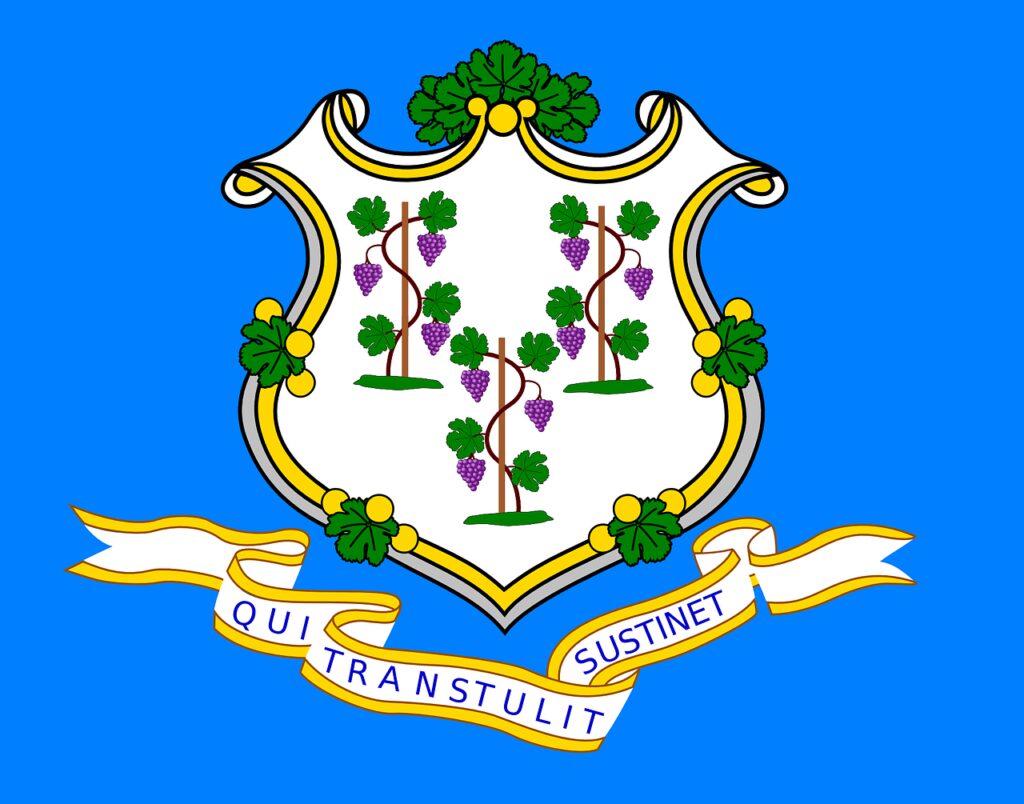
Currently, CBD is legal in Connecticut and is not classified as a controlled substance. The state has adopted policies in alignment with federal law and allows for the cultivation, production, sale, and use of CBD products derived from hemp. Connecticut has also established the Connecticut Hemp Program to regulate hemp cultivation and ensure compliance with state laws.
Under the Connecticut Hemp Program, individuals and businesses must register and obtain licenses to participate in the cultivation, processing, and sale of hemp and CBD products. The program outlines specific requirements and standards to ensure product safety, quality, and proper labeling.
Consumers in Connecticut have access to a variety of retail options for CBD products, including specialized CBD stores, health food stores, and online retailers. However, it is important to note that the use of CBD for recreational purposes is still subject to certain legal considerations. individuals should be aware of the guidelines and regulations surrounding CBD consumption and discuss any potential medical use with their healthcare provider.
While CBD is legal in Connecticut, it is always recommended to stay informed about the latest updates, as laws and regulations may change over time. As with any supplement or health product, consumers should exercise caution and make informed decisions when buying and using CBD in Connecticut.
CBD, or cannabidiol, is a compound derived from the cannabis plant that has gained popularity for its potential health benefits. However, the legal status of CBD in the United States can be confusing due to conflicting regulations at the federal and state levels.
1. Federal laws: According to federal law, CBD derived from hemp is legal in the United States as long as it contains less than 0.3% THC, the psychoactive component of cannabis. The Agricultural Improvement Act of 2018, also known as the Farm Bill, legalized hemp and removed it from the list of controlled substances. This means that CBD products derived from hemp, including oils, tinctures, and topicals, are legal at the federal level.
2. State laws: While federal law permits the use of CBD derived from hemp, states have the authority to enact their own regulations. Some states may have stricter laws regarding the use and sale of CBD, while others may have more relaxed regulations. It is important to be aware of the specific laws in your state regarding the legal status of CBD in the United States.
3. FDA regulations: The Food and Drug Administration (FDA) plays a crucial role in regulating CBD products. Currently, the FDA has only approved one CBD product, Epidiolex, for the treatment of seizures associated with two rare forms of epilepsy. Other CBD products, such as dietary supplements and food additives, are not currently approved by the FDA and are subject to additional regulations.
4. Legalization of marijuana: It is important to note that the legal status of CBD derived from marijuana, which contains higher levels of THC, varies from state to state. While some states have legalized both medical and recreational marijuana, others have strict regulations or have not legalized marijuana at all. The legality of CBD derived from marijuana is often tied to the broader marijuana laws in each state within the United States.
5. Quality and safety: When purchasing CBD products, it is important to consider the quality and safety of the product. Look for products that have been tested by a third-party laboratory for purity and potency. Additionally, choose products that are derived from organic hemp and are free from harmful additives or contaminants to ensure compliance with the legal status of CBD in the United States.
The legal status of CBD at the federal level in the United States is a topic of importance and confusion for many individuals. It is crucial to understand the current regulations to ensure compliance and avoid any legal issues.
Here is a breakdown of the federal legality of CBD:
When it comes to CBD, state laws and regulations play a vital role. Understanding these laws is crucial for compliance and legality. Here are some key points to consider:
1. Legalization: CBD’s legal status varies from state to state. While some states have fully legalized both recreational and medicinal CBD use, others only allow medicinal use. Familiarizing yourself with your state’s specific laws is essential.
2. THC Content: Each state has set limits on the amount of THC allowed in CBD products. THC is the psychoactive component of cannabis. Ensuring that the CBD products you purchase comply with your state’s THC restrictions is important.
3. Licensing and Regulations: Some states require CBD businesses to obtain licenses and follow specific regulations. These regulations may involve testing, labeling guidelines, and product quality standards. Understanding and adhering to your state’s licensing and regulations is essential.
4. Age Restrictions: Many states have age restrictions for purchasing and using CBD products. The minimum age requirement can range from 18 to 21 years old. Familiarizing yourself with the age restrictions in your state will help avoid legal issues.
5. Interstate Commerce: Even if CBD is legal in your state, it’s essential to consider the laws surrounding interstate commerce. Transportation of CBD products across state lines may be subject to federal regulations. Consult legal experts or regulatory agencies to ensure compliance in such cases.
6. Hemp vs. Marijuana: State laws may differentiate between CBD derived from hemp and CBD derived from marijuana. Hemp-derived CBD is generally legal in most states, thanks to the 2018 Farm Bill. However, marijuana-derived CBD may face stricter regulations or even be illegal in certain states. Understanding the distinction and specific laws for each is vital.
7. Changes in Laws: State laws on CBD can change over time. Staying updated with any changes is essential. This includes monitoring legislation, regulatory updates, and legal precedents that may impact CBD’s legality and regulations.
By understanding state laws and regulations regarding CBD, individuals can ensure compliance and safely purchase and use CBD products according to their personal needs. Remember to research and verify your state’s specific laws before making any CBD-related decisions.

CBD enthusiasts in Connecticut, listen up!
We’re about to unravel the intricate web of CBD laws specific to our very own state.
Get ready to dive into the nitty-gritty of this subject as we explore the current status of CBD in Connecticut.
From regulations to restrictions, we’ll shed light on how the legal landscape shapes the availability and use of CBD products in our state.
So, fasten your seatbelts and let’s embark on this informative journey together!
The current status of CBD in Connecticut is as follows:
Discover the secrets of the Connecticut Hemp Program, where legalities and opportunities intertwine. From registration and licensing to the specific requirements for cultivation, processing, and sale, this section uncovers the framework that underpins the hemp industry in Connecticut. Prepare to dive into the nitty-gritty of the state’s regulations and explore the possibilities that lie ahead for aspiring participants in this booming market.
Registration and Licensing are crucial steps for CBD businesses in Connecticut to ensure compliance with state regulations and maintain the integrity of the industry.
By following these steps, CBD businesses in Connecticut can obtain the necessary registration and licensing to legally operate in the state. It is important for businesses to consistently adhere to all regulations and requirements to maintain compliance and the trust of their customers.
| Requirements for Cultivation | Processing | Sale |
|---|---|---|
| Applicants for a cultivation license must ensure they have the necessary documentation for the land they plan to use, undergo a background check, and pay the required fees. | Facilities for processing must be registered with the Department of Consumer Protection and adhere to all federal and state laws regarding the handling and disposal of hemp waste. The keeping of accurate records is essential, as processing facilities must document all activities related to hemp received, processed, or disposed of, and make these records available for inspection. | Retailers must comply with labeling requirements and ensure that CBD products are accurately labeled with information such as batch numbers, expiration dates, and manufacturer or distributor details. Additionally, all CBD products must undergo testing by independent laboratories to ensure quality, safety, and accurate cannabinoid content. |
When considering the requirements for cultivation, processing, and sale of CBD in Connecticut, it is important to understand the regulations set forth by the state. Applicants for a cultivation license must ensure they have the necessary documentation for the land they plan to use, undergo a background check, and pay the required fees.
For processing, facilities must be registered with the Department of Consumer Protection and adhere to all federal and state laws regarding the handling and disposal of hemp waste. The keeping of accurate records is essential, as processing facilities must document all activities related to hemp received, processed, or disposed of, and make these records available for inspection.
In terms of sale, retailers must comply with labeling requirements and ensure that CBD products are accurately labeled with information such as batch numbers, expiration dates, and manufacturer or distributor details. Additionally, all CBD products must undergo testing by independent laboratories to ensure quality, safety, and accurate cannabinoid content.
It is crucial to adhere to these requirements to ensure compliance with Connecticut laws and regulations surrounding the cultivation, processing, and sale of CBD products.
Remember to always stay informed about any updates or changes to the regulations and consult with the appropriate authorities for further guidance.
Looking to buy and use CBD in Connecticut? Let’s dive into the essential details. We’ll explore the retail options for CBD products, discuss the differences between recreational and medicinal use of CBD, and highlight some legal considerations for CBD consumers. So, whether you’re seeking pain relief or simply curious about the benefits, we’ve got you covered!
When it comes to purchasing CBD products, there are several retail options available to consumers. These retail options include physical stores, online retailers, pharmacies, dispensaries, and natural health stores.
Physical stores such as health food stores, wellness centers, and specialty CBD stores offer a wide range of CBD products. These stores allow consumers to see and feel the products before making a purchase. Some stores even have knowledgeable staff who can provide guidance and answer questions about the different CBD products available.
Online retailers have also become increasingly popular for CBD products. Many reputable CBD brands have their own websites where consumers can directly purchase products. Additionally, there are online marketplaces and retailers that offer a diverse selection of CBD products from various brands. Shopping online provides convenience and the ability to compare products and prices.
In certain states, authorized pharmacies are allowed to sell CBD products. This gives consumers the opportunity to purchase CBD products from a trusted source and receive guidance from trained pharmacists.
In states where marijuana is legal for both recreational and medicinal purposes, consumers can buy CBD products from licensed dispensaries. These dispensaries typically offer a wide range of CBD products, including those with higher levels of THC for individuals seeking the benefits of both compounds.
Many natural health stores and holistic wellness centers also carry CBD products. These retailers focus on providing natural and alternative health solutions, and CBD products align with their holistic approach.
When selecting a retail option for CBD products, it is important to consider factors such as product selection, quality, pricing, and customer reviews. Additionally, consumers should ensure that the retailer they choose follows proper labeling and safety regulations to guarantee the authenticity and safety of the CBD products they offer.
To find the best retail option for CBD products, consider visiting local stores, exploring online options, reading customer reviews, and seeking recommendations from friends or healthcare professionals. Thorough research and choosing a reputable retailer will ensure the purchase of high-quality CBD products that meet specific needs and preferences.
When it comes to CBD, it is important to understand the distinction between recreational and medicinal use. Both recreational use and medicinal use of CBD have their own purposes and considerations, and it is important to be aware of them before using CBD products.
Suggestions:
When it comes to consuming CBD, there are several legal considerations that CBD consumers need to be aware of. Here are some important things to keep in mind:
Yes, CBD is legal in Connecticut. The state has legalized the retail sale of hemp-derived CBD and CBD products. Industrial hemp is considered distinct from marijuana and is not a controlled substance. As long as CBD products contain less than 0.3% THC, they are legal for both medical and recreational use in Connecticut.
Connecticut has implemented several laws to regulate the legal status of CBD. Senate Bill No. 603 initiated the state’s pilot hemp growing program, allowing for the manufacturing of CBD products made from hemp. Public Act 19-3 established regulations for hemp growers, processors, and manufacturers. It is important to stay updated on current legislation and regulations regarding CBD in Connecticut.
CBD products can be purchased in various locations across Connecticut, including health and wellness shops, smoke shops, yoga studios, gyms, specialty and gift shops, gas stations, and golf pro shops. Online ordering is also available for convenient delivery.
Yes, CBD oil can be purchased legally without a prescription in Connecticut. Hemp-derived CBD oil is federally legal, and the state has no restrictions on the sales, possession, and transportation of hemp-based products. However, marijuana-derived CBD oil requires a prescription and can only be purchased from licensed medical marijuana dispensaries.
There are no restrictions or possession limits for CBD products in Connecticut as long as they contain less than 0.3% THC. However, it is important to note that some localities within the state may have their own regulations regarding CBD.
Yes, CBD oil can be purchased online from reputable suppliers in Connecticut. Many companies ship their products to all 50 states, offering a wide range of CBD oil products and attractive wholesale deals. When buying online, it is important to choose reputable websites that guarantee third-party lab testing, provide a certificate of analysis, and ensure labeling accuracy.
As we are not lawyers it is always best to check with your local laws for your State and City. This is not legal advice.
CBD, short for cannabidiol, has gained significant popularity in recent years for its potential health benefits. As regulations around CBD vary by state in the United States, it is essential to understand the legal status of CBD in specific regions. In this article, we will focus on its legality in California, a state known for its progressive stance on cannabis.

CBD’s legal status in California is a complex topic influenced by state laws and federal regulations. California has been at the forefront of cannabis legislation, including CBD. Understanding state laws is crucial for determining the legality of CBD products in California.
One significant factor to consider is California Proposition 64, also known as the Adult Use of Marijuana Act. This proposition legalized the recreational use of cannabis, including CBD derived from both marijuana and hemp plants. However, it is essential to differentiate between CBD and marijuana.
CBD differs from marijuana primarily in its THC content. THC is the psychoactive compound that produces the “high” associated with marijuana. CBD products in California must contain no more than 0.3% THC to be considered legal.
When examining the legality of CBD, federal regulations also come into play. The Farm Bill of 2018 legalized hemp-derived CBD at the federal level, effectively removing it from the list of controlled substances. The Food and Drug Administration (FDA) also plays a role in regulating CBD products for safety and quality.
In California, CBD products can be found in various locations. This includes dispensaries, where licensed cannabis products are available, and retail stores or online marketplaces that offer hemp-derived CBD products.

When purchasing CBD in California, it is crucial to consider some tips to ensure you are getting a quality and legal product. Third-party lab testing, product labeling, and assessing the overall quality and safety are essential factors to keep in mind. – CBD, or cannabidiol, is a compound derived from the cannabis plant that is legal in California. – The legal status of CBD in California is governed by state laws, including California Proposition 64, which legalized recreational marijuana. – CBD differs from marijuana in terms of THC content, with CBD containing lower levels of THC and having both medical and recreational uses. – Federal regulations on CBD, such as the Farm Bill 2018, also impact its legality in California. – CBD can be found in dispensaries, retail stores, and online marketplaces in California. – When purchasing CBD in California, consumers should look for third-party lab testing, proper product labeling, and ensure the quality and safety of the product. – In summary, CBD is legal in California, but it is important to understand and comply with state and federal regulations.
Cannabidiol, commonly known as CBD, is a natural compound derived from the cannabis plant. It is one of the many cannabinoids present in the plant, but unlike tetrahydrocannabinol (THC), CBD does not induce psychoactive effects. This means that it does not cause a “high” sensation.
In recent years, CBD has gained significant attention due to its potential therapeutic benefits. Research suggests that CBD may possess anti-inflammatory, analgesic, anxiolytic, and neuroprotective properties. It is commonly used to alleviate symptoms associated with various conditions such as chronic pain, anxiety, epilepsy, and insomnia.
One remarkable characteristic of CBD is its influence on the endocannabinoid system (ECS) in the human body. The ECS plays a crucial role in regulating bodily functions such as sleep, mood, appetite, and immune response. CBD interacts with the receptors in the ECS, thereby promoting balance and homeostasis.
There are different forms in which CBD is available, including oils, tinctures, capsules, topicals, and edibles. The concentration of CBD can vary among these products. It is important to note that CBD products are not regulated by the Food and Drug Administration (FDA). Therefore, it is crucial to choose products from reputable manufacturers that conduct third-party lab testing to ensure their potency and purity.
Before incorporating CBD into your wellness routine, it is essential to consult with a healthcare professional, especially if you are taking any medications or have underlying health conditions.
According to a 2019 survey, the primary reasons consumers use CBD are to manage pain, reduce anxiety, improve sleep, and enhance overall well-being.
Curious about the legal status of CBD in California? This section explores the ins and outs of CBD laws in the Golden State. Dive into the intricacies of state regulations and learn how California Proposition 64 has shaped the landscape. It’s time to uncover the facts and discover what’s allowed when it comes to CBD in California.
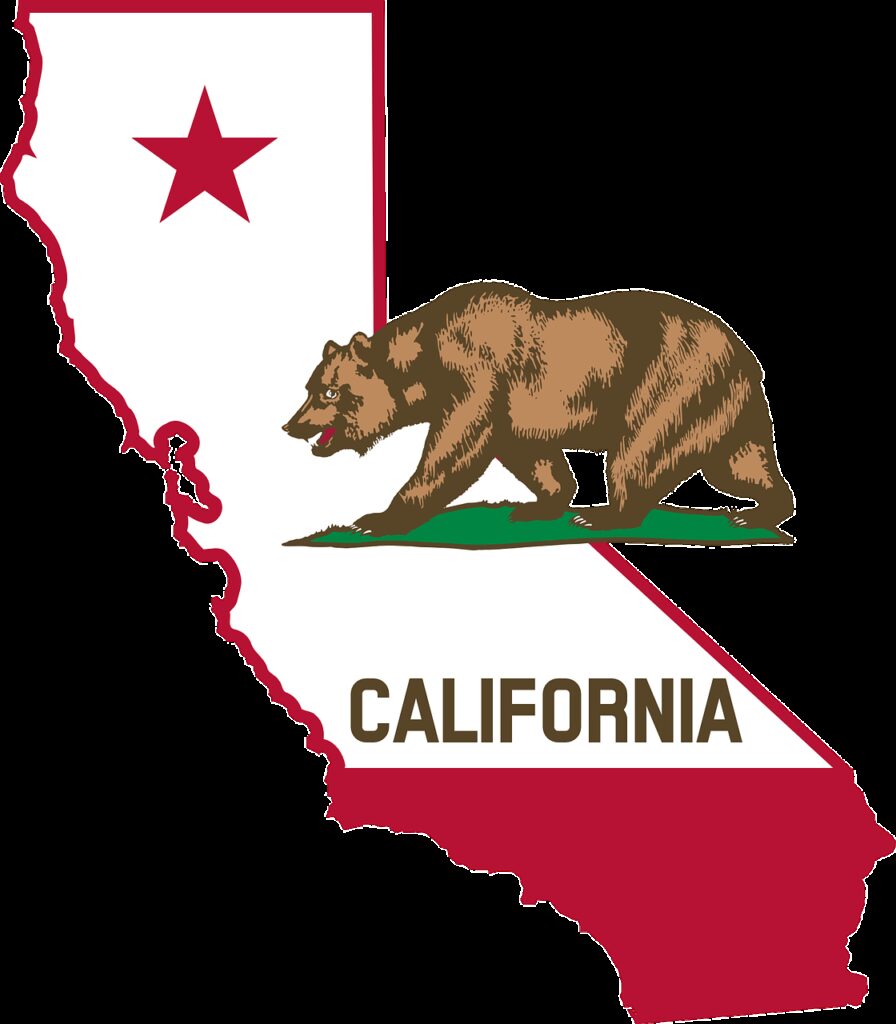
When it comes to CBD, having a thorough understanding of state laws is crucial, especially in California. It is essential to grasp the following key points:
1. State regulations and requirements: California has specific regulations and requirements in place for CBD products. These regulations cover various aspects such as labeling, testing, and manufacturing standards. To ensure the purchase of safe and compliant CBD products, consumers must be aware of these regulations.
2. Impact of California Proposition 64: California Proposition 64, also known as the Adult Use of Marijuana Act, legalized the recreational use of marijuana in the state. However, it is important to note that while marijuana is legal for recreational use, there are still restrictive laws regarding CBD derived from marijuana. CBD derived from marijuana can only be obtained from licensed dispensaries and is subject to stricter regulations.
3. Legal status of CBD: On the other hand, CBD derived from hemp is legal in California. As long as CBD products are derived from hemp plants containing less than 0.3% THC, they can be legally sold and purchased in the state. This legalization has resulted in a wide range of CBD products being available in the market, including oils, capsules, topicals, and more.
4. Consumer responsibility: While CBD is legally available in California, it is the consumers’ responsibility to be informed and conduct proper due diligence before purchasing CBD products. This includes researching the brand, reading product labels, and ensuring that the products have undergone third-party lab testing for quality and safety. Consulting with a healthcare professional is also recommended, especially for individuals with underlying medical conditions.
5. Compliance and enforcement: The state of California actively monitors and enforces regulations related to CBD products. Regular inspections of manufacturing facilities and testing of products are conducted to ensure compliance with safety standards. Consumers should look for products that adhere to these regulations and provide proper labeling and testing information.
Having a comprehensive understanding of state laws is crucial for anyone interested in using CBD products in California. By staying informed and aware, consumers can make educated choices and navigate the CBD market confidently while complying with the state’s laws.
Always prioritize your health and safety when using any CBD products. Stay informed, read labels, research brands, and consult with professionals when necessary. Empower yourself with knowledge to make the best decisions regarding CBD products in accordance with California state laws.
California Proposition 64, also known as the Adult Use of Marijuana Act, was passed in November 2016, legalizing the recreational use of marijuana for adults aged 21 and over in the state of California. This proposition had a significant impact on the legalization of CBD, or cannabidiol, which is derived from the cannabis plant.
Under California Proposition 64, CBD derived from marijuana is legal for both medical and recreational use. However, it is important to note that CBD derived from hemp, a variety of cannabis with low levels of THC, has been legal at the federal level since the passage of the 2018 Farm Bill.
The legalization of CBD under California Proposition 64 has opened up new opportunities for the cannabis industry in the state. Dispensaries, which were previously focused on selling medical marijuana, can now sell cannabis products for recreational use, including CBD products. Additionally, retail stores and online marketplaces have also begun offering CBD products to meet the growing demand.
When purchasing CBD in California, it is important to consider several factors. First, ensure that the product has undergone third-party lab testing to verify its quality and safety. Additionally, carefully examine the product labeling to determine the CBD content, as well as any other ingredients or additives. This information will help you make an informed decision about the product’s suitability for your needs.
CBD and marijuana may share some similarities, but understanding the key differences between the two is essential. In this section, we’ll dive into the contrasting aspects of CBD and marijuana. We’ll explore the levels of THC content in each and the varying purposes they serve, including their applications in medical and recreational use. So, buckle up and join us on this exploration of CBD and marijuana as we shed light on what sets them apart.
The THC content in CBD and marijuana can vary significantly, making it important for consumers to understand the differences between the two. Here is a table comparing the THC content in CBD and marijuana:
| Type of Cannabis | THC Content |
| CBD | Less than 0.3% THC Content |
| Marijuana | Average of 15-30% THC Content |
CBD products, such as oils and tinctures, are derived from hemp plants that contain low levels of THC, typically less than 0.3% THC Content. This minimal amount of THC is not enough to produce psychoactive effects or a “high” in users. It is also within the legal limit set by the Farm Bill 2018, ensuring that CBD products are safe and non-intoxicating.
In contrast, marijuana plants are cultivated for their higher THC content, which can range from 15-30% or even higher in some strains. This higher THC content is what gives marijuana its psychoactive properties and is sought after by recreational users for its “high” effects.
It is important to note that the THC content in CBD products may vary slightly depending on the extraction and manufacturing processes. However, reputable manufacturers provide third-party lab testing results to ensure the accurate THC content is indicated on product labels.
When purchasing CBD products, consumers should always look for third-party lab testing to verify the THC content, ensuring it falls within the legal limit. Additionally, it is essential to follow the product labeling guidelines to understand the THC content and dosage recommendations. By doing so, consumers can make informed decisions and safely enjoy the potential benefits of CBD without the psychoactive effects associated with marijuana.
When it comes to the use of CBD, there are distinct differences between medical and recreational purposes. Here are some key points to consider:
The Federal Regulations on CBD are a crucial aspect to understand when exploring its legality. In this section, we’ll unpack two key components: the significant impact of the Farm Bill 2018 and the role played by the FDA. Get ready to dig into the legal intricacies and explore how these regulations shape the CBD landscape in California. So, let’s dive in and discover the ins and outs of federal CBD regulations!
The Farm Bill 2018, signed on December 20, 2018, had a significant impact on the legal status of CBD in the United States. The bill specifically addressed the cultivation and sale of industrial hemp, which is the plant from which CBD is derived. Under The Farm Bill 2018, industrial hemp with a THC concentration of no more than 0.3% became legal at the federal level.
The legalization of industrial hemp opened up new opportunities for the CBD industry. It allowed for the production of hemp-derived CBD products, including oils, tinctures, capsules, and topicals. This legalization created a more favorable regulatory environment for CBD businesses and increased consumer access to CBD products.
The Farm Bill 2018 also included provisions for the regulation of hemp cultivation. It authorized state agriculture departments and tribal governments to develop their own hemp cultivation programs, subject to approval by the United States Department of Agriculture (USDA). This allowed individual states to regulate the cultivation, processing, and sale of hemp within their jurisdictions.
It is important to note that while The Farm Bill 2018 legalized hemp-derived CBD at the federal level, individual states still have the authority to regulate CBD within their borders. Therefore, it is essential to understand the specific laws and regulations regarding CBD in your state, such as the legal age for purchasing CBD products and any restrictions on the types of CBD products available.
Pro-tip: When purchasing CBD products, always ensure that the product is derived from hemp and contains no more than 0.3% THC. Look for third-party lab testing results to verify the product’s quality and potency.
The role of the FDA in regulating CBD products is pivotal to ensuring consumer safety and product quality. The FDA, or Food and Drug Administration, holds the responsibility of safeguarding public health by regulating various products, including pharmaceutical drugs, food, and dietary supplements. When it comes to CBD, the FDA plays a vital role in providing oversight and establishing regulations.
1. Ensuring Safety: The primary concern of the FDA is to ensure the safety of consumers. The agency evaluates CBD products to ascertain if they meet safety standards and do not pose any health risks. They conduct research and analysis to assess the safety profile of CBD and its potential interactions with other substances.
2. Quality Control: The FDA sets quality control standards for CBD products, which encompass guidelines for manufacturing processes and labeling requirements. They assure that CBD products are manufactured in facilities that follow good manufacturing practices to maintain product integrity and consistency.
3. Labeling Guidance: The FDA provides guidelines for accurate and transparent labeling of CBD products. This encompasses accurate ingredient lists, clear instructions for use, and appropriate health claims. The agency also aims to prevent misleading marketing or false claims about the benefits of CBD products.
4. Research and Education: The FDA supports research and educational initiatives to gain a deeper understanding of the effects and potential benefits of CBD. They collaborate with other organizations and conduct their own studies to gather scientific evidence. This research helps inform their regulatory decisions and enables them to provide accurate information to consumers.
5. Enforcement: The FDA possesses the authority to take enforcement actions against companies that violate regulations or sell unsafe or mislabeled CBD products. They can issue warning letters, initiate product recalls, or even pursue legal action if necessary. These enforcement efforts help protect consumers from harmful or fraudulent CBD products.
It’s important to note that the FDA’s regulations for CBD are still evolving, and currently, CBD products are not approved for use in food or dietary supplements. However, the agency continues to monitor the market and gather evidence to inform future regulatory decisions.
Look no further for CBD in California! Discover the hotspots where you can find this sought-after substance. From local dispensaries to retail stores and booming online marketplaces, there are various avenues to explore. Whether you prefer browsing through shelves, seeking expert advice, or the convenience of a click, we’ve got you covered. So, grab your map and let’s dive into the thriving CBD scene in California!
When it comes to purchasing CBD in California, one of the main options available to consumers is through dispensaries. Here are some key points to consider when choosing a dispensary:
Selection: Look for dispensaries that offer a wide range of CBD products. This can include different forms such as oils, tinctures, capsules, edibles, and topicals.
Quality: Ensure that the dispensary sources CBD products from reputable manufacturers or cultivators. Look for products that are third-party lab tested to guarantee their quality and purity.
Knowledgeable Staff: Seek dispensaries with knowledgeable staff who can provide information about different CBD products, dosages, and usage guidelines. They should be able to answer any questions you may have.
Customer Reviews: Check online reviews and ratings of dispensaries to get an idea of their reputation and the experiences of other customers. This can help you gauge the level of customer satisfaction.
Pricing: Compare prices among different dispensaries to get the best value for your money. However, remember that quality and reputation are also important factors to consider.
Location: Consider the location of the dispensary and whether it is convenient for you to access. Look for dispensaries that are in close proximity to your home or workplace.
Additional Services: Some dispensaries offer additional services such as educational resources, wellness consultations, or even delivery services. These can be beneficial if you’re looking for a more personalized experience.
When it comes to purchasing CBD in California, one of the main options available to consumers is through dispensaries. Here are some key points to consider when choosing a dispensary:
Selection: Look for dispensaries that offer a wide range of CBD products. This can include different forms such as oils, tinctures, capsules, edibles, and topicals.
Quality: Ensure that the dispensary sources CBD products from reputable manufacturers or cultivators. Look for products that are third-party lab tested to guarantee their quality and purity.
Knowledgeable Staff: Seek dispensaries with knowledgeable staff who can provide information about different CBD products, dosages, and usage guidelines. They should be able to answer any questions you may have.
Customer Reviews: Check online reviews and ratings of dispensaries to get an idea of their reputation and the experiences of other customers. This can help you gauge the level of customer satisfaction.
Pricing: Compare prices among different dispensaries to get the best value for your money. However, remember that quality and reputation are also important factors to consider.
Location: Consider the location of the dispensary and whether it is convenient for you to access. Look for dispensaries that are in close proximity to your home or workplace.
Additional Services: Some dispensaries offer additional services such as educational resources, wellness consultations, or even delivery services. These can be beneficial if you’re looking for a more personalized experience.
When it comes to purchasing CBD in California, customers have several options available. You can choose to buy CBD from retail stores or explore the wide selection offered by online marketplaces.
Both retail stores and online marketplaces have their advantages and considerations. Retail stores offer immediate access to CBD products and the ability to speak with knowledgeable staff. On the other hand, online marketplaces provide a wider selection, often at competitive prices, and the convenience of home delivery.
Regardless of whether you choose a retail store or an online marketplace, it’s important to prioritize quality and safety when purchasing CBD. Look for products that have been tested by third-party laboratories to ensure purity and potency. Additionally, check the product labeling for important information such as CBD concentration, ingredients, and suggested usage.
Whether you prefer the experience of shopping in person or the convenience of online browsing, there are plenty of options available to purchase CBD in California. Take the time to research different brands, compare prices and product offerings, and consider your individual needs and preferences. By doing so, you can find a reliable retail store or online marketplace that offers high-quality CBD products to support your wellness journey.
Looking to buy CBD in California? Here are some essential tips to ensure a smooth purchasing experience. We’ll cover topics like third-party lab testing, product labeling, quality, and safety. Plus, we’ll give you a quick overview of CBD’s legal status in California. Get ready to make informed decisions and navigate the CBD market with confidence!
To ensure the quality and safety of CBD products, third-party lab testing is of utmost importance. Third-party lab testing involves sending CBD products to independent laboratories to analyze their content and validate their claims.
| Benefits of Third-Party Lab Testing |
| 1. Accuracy: Third-party lab testing provides accurate and unbiased results regarding the composition of CBD products. This ensures that the product contains the claimed amount of CBD and does not exceed the legal limit of THC. |
| 2. Transparency: By conducting lab tests, CBD companies demonstrate transparency and their commitment to providing consumers with reliable information about their products. |
| 3. Purity: Lab tests can detect the presence of contaminants, such as pesticides, heavy metals, and residual solvents, ensuring that CBD products are free from harmful substances. |
| 4. Product Comparison: Lab test results enable consumers to compare different CBD products based on their cannabinoid profiles and the presence of specific compounds, such as terpenes. |
| 5. Regulatory Compliance: Third-party lab testing helps CBD companies comply with regulations and ensure that their products meet industry standards. |
| 6. Consumer Confidence: Knowing that CBD products have undergone third-party lab testing instills confidence in consumers, giving them peace of mind that they are purchasing safe and reliable products. |
When considering CBD products, look for those that provide transparency by displaying their lab test results on their website or product packaging. These test results should come from reputable and independent laboratories.
Remember that third-party lab testing is an essential step in the CBD industry to protect consumer health and ensure product quality. By choosing CBD products that have undergone extensive testing, you can make informed decisions and prioritize your well-being.
When purchasing CBD in California, product labeling is a crucial aspect to consider. It plays a significant role in providing essential information about the product, ensuring transparency and consumer safety. Here are some key aspects to look for in CBD product labeling:
By carefully reviewing the product label, you can make an informed decision and ensure that you are purchasing a reliable and safe CBD product in California.
When it comes to purchasing CBD products in California, quality and safety are the most important considerations. Here are some key factors to keep in mind:
By considering these factors, you can ensure that you are purchasing CBD products of the highest quality and safety in California.
A True History
In recent years, the demand for CBD products has skyrocketed, leading to an influx of brands and products in the market. While this is a positive sign of growing acceptance and availability, it also highlights the importance of ensuring quality and safety. With the increasing popularity of CBD, some manufacturers may cut corners or mislabel their products, putting consumers at risk.
That’s why it’s crucial to be a discerning consumer and prioritize quality and safety when purchasing CBD products. By following the guidelines mentioned above and staying informed, you can make educated choices and have peace of mind knowing that you are using CBD products of the highest quality.
The legal status of CBD in California can be summarized as follows:
This is an overview of the legal status of CBD in California, emphasizing key points for consumers to consider when purchasing CBD products.
Yes, CBD is legal in California. The state has legalized the sale and manufacture of hemp-derived products and consumable CBD in 2021. However, there are age restrictions, and adults must be over the age of 21 when purchasing hemp-derived or marijuana-derived CBD oil.
California Assembly Bill 45 (AB 45) legalized hemp-derived products and CBD-infused consumable products in California. Manufacturers must register with the State Department of Public Health and follow testing and labeling requirements. Products must meet specific labeling rules, including a primary panel and informational panel with CBD content percentage, manufacturer’s contact information, and government warning statements.
Yes, Governor Gavin Newsom signed AB 45 into law, allowing hemp-derived cannabidiol (CBD) to be included in food, beverages, and dietary supplements sold in California. This is a significant change from California’s prior position on CBD and contradicts the U.S. Food and Drug Administration’s current stance.
It is recommended to purchase CBD from licensed vendors and recognized retailers in California to ensure the product is safe and compliant with state laws. Buying from unknown brands may carry a higher risk of purchasing substandard or unsafe CBD products.
To buy CBD in California, you must be 21 years old or older. Adults over the age of 21 can purchase CBD products, while minors under 18 require a medical card, parental/legal guardian consent, and a doctor’s recommendation to use cannabis-derived CBD oil.
Smoking CBD in public is not legal in California, but it can be smoked in the privacy of homes. However, it is important to note that there is no legal limit to the amount of CBD in a person’s bloodstream when driving. Smokable hemp is allowed for sale, but hemp growers can only sell it out of state until a taxing scheme is developed in California.
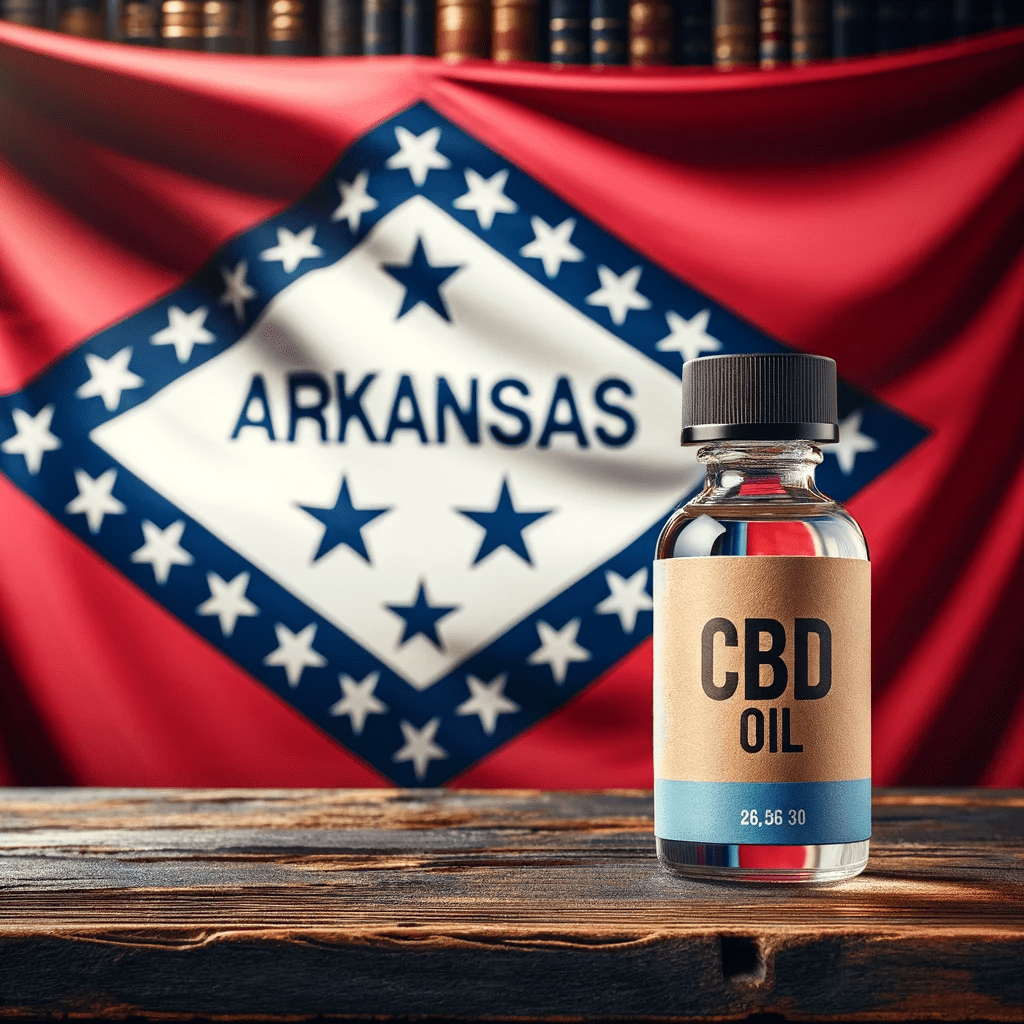
Yes, in Arkansas, you can have CBD oil and other CBD items as long as they come from hemp and have 0.3% THC or less, like the federal law says. The Arkansas Industrial Hemp Act of 2017 made hemp legal and let its growth and production increase within the state. This Act also started the Arkansas Hemp Program for research and growing hemp. So, making and selling hemp-based CBD oil and similar products is legal in Arkansas.
Continue reading Is CBD legal in ArkansasCBD, short for cannabidiol, has gained popularity for its potential health benefits. However, the legal status of CBD varies across different states in the United States. This article focuses on understanding the legal aspects of CBD in Arizona.
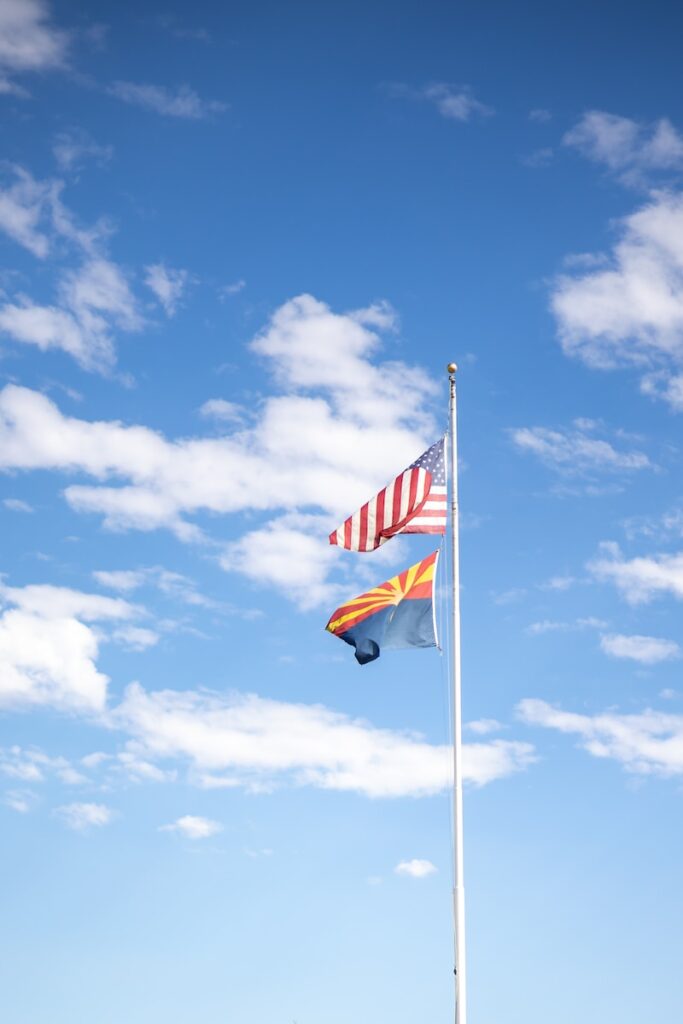
To begin, let’s explore the basics of CBD. CBD is a non-psychoactive compound found in the cannabis plant. It is often derived from hemp, a strain of cannabis with low levels of THC, the psychoactive component responsible for the “high” sensation. Understanding the difference between hemp and marijuana is crucial when discussing CBD laws.
The 2018 Farm Bill brought significant changes to CBD regulations at the federal level. It legalized the cultivation and production of hemp across the country, as long as it contains less than 0.3% THC. This legislation had a significant impact on CBD laws, including those in Arizona.
Arizona has its own specific laws regarding CBD. The state has both a medical marijuana program and recently legalized recreational marijuana. Understanding these two programs is important in determining the legality of CBD in Arizona.
CBD derived from hemp is legal in Arizona, as long as it meets the federal criteria of containing less than 0.3% THC. This means that CBD products made from hemp, such as oils, tinctures, and topicals, can be legally purchased and consumed in the state.
On the other hand, CBD derived from marijuana, which contains higher levels of THC, is only legal for medical marijuana patients in Arizona. These patients must have a qualifying medical condition and obtain a valid medical marijuana card.
As for where to buy CBD in Arizona, there are various options. Dispensaries, which are licensed outlets that sell medical marijuana products, are a common choice for those with a medical marijuana card. Retail stores that specialize in CBD products are also an option for purchasing CBD in the state. Online purchases provide a convenient way to access a wide range of CBD products.
It’s important to stay informed about the current laws and regulations regarding CBD to ensure compliance and make informed decisions.
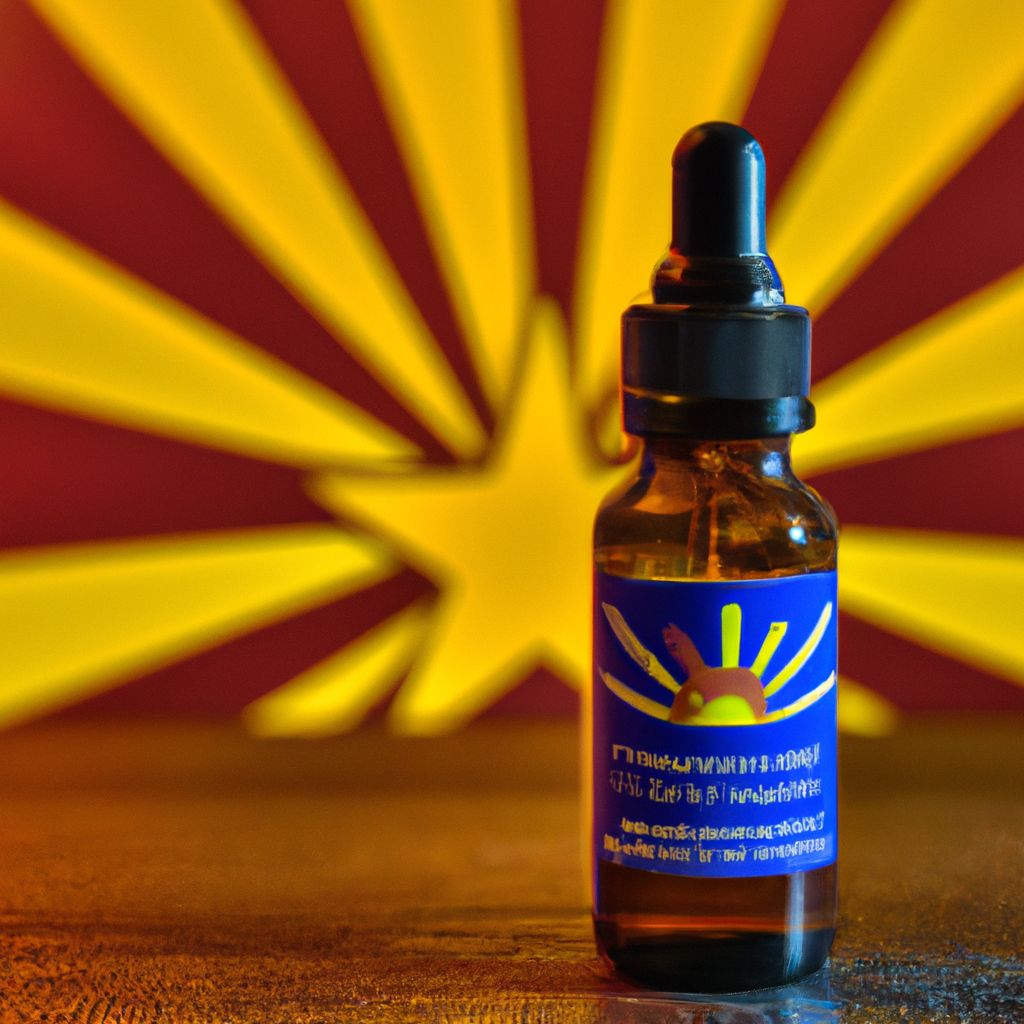
Discover the legal landscape of CBD in Arizona and uncover the intriguing distinctions between hemp and marijuana. Dive into the impact of the 2018 Farm Bill on CBD laws, exploring how it shapes the regulatory framework. Get ready to navigate the fascinating realm of CBD legality in Arizona and gain a deeper understanding of this plant-based remedy.
Understanding the difference between hemp and marijuana is crucial when it comes to discussing the legal status of CBD in Arizona. Here are some key points to consider:
The 2018 Farm Bill had a significant impact on CBD laws in the United States. This legislation legalized the cultivation and commercialization of hemp and its derived products, including CBD, at the federal level. Here are some key points about the 2018 Farm Bill and its impact on CBD laws:
“Arizona’s stance on CBD is crucial to understanding its legal status in the state. In this section, we will explore Arizona’s laws regarding CBD, focusing on their Medical Marijuana Program and the regulations surrounding recreational marijuana. From the legality of medical use to the restrictions on recreational consumption, we will dive into the details that determine CBD’s place in Arizona’s legal landscape. So, let’s unravel the intricacies and discover what Arizona’s laws have to say about CBD.”
The Medical Marijuana Program in Arizona provides access to medical marijuana for qualifying patients. To participate in the program, patients must meet certain criteria and obtain a medical marijuana card.
The program allows patients with debilitating medical conditions, such as cancer, HIV/AIDS, glaucoma, and chronic pain, to use medical marijuana as a therapeutic treatment. It is important to note that medical marijuana should be used under the guidance of a healthcare professional, as it can have both therapeutic and potential side effects.
To qualify for the Medical Marijuana Program, patients must be Arizona residents and have a qualifying medical condition. They need to obtain a written certification from a physician who is licensed to practice medicine in Arizona. The written certification must state that the physician has determined that the patient has a qualifying medical condition and that the potential benefits of using medical marijuana outweigh the potential risks.
Once patients have obtained their medical marijuana card, they can purchase medical marijuana from state-licensed dispensaries. These dispensaries are regulated by the Arizona Department of Health Services and adhere to strict guidelines to ensure the quality and safety of the products.
Patients are allowed to possess up to 2.5 ounces of usable medical marijuana within a 14-day period. They can purchase their medical marijuana from dispensaries or designate a caregiver to obtain it on their behalf. Caregivers must also apply for a registry identification card.
It is essential for patients to follow all regulations and guidelines set forth by the Medical Marijuana Program. Failure to do so can result in legal consequences.
When it comes to recreational marijuana laws in Arizona, there are specific regulations in place that govern its use and possession.
It is important to note that while recreational marijuana is legal in Arizona, there are still regulations and restrictions in place. It is crucial to familiarize yourself with these laws to ensure compliance and avoid any legal issues.
Wondering about the legal status of CBD in Arizona? Let’s dive into the topic and explore the legality of CBD in the Grand Canyon State.
We’ll start by examining the legal landscape surrounding CBD derived from hemp, and then we’ll move on to the regulations regarding CBD derived from marijuana. Get ready to uncover the legal nuances and distinctions that shape the CBD industry in Arizona.
When considering the legality of CBD derived from hemp, it is important to understand the current laws and regulations in place. Here are some key points to consider:
When shopping for CBD products derived from hemp, it is essential to be informed about the laws and regulations governing their legality. By choosing products that comply with federal and state regulations, you can enjoy the benefits of CBD without any legal concerns.
Ensuring the Legality of CBD Derived from Hemp
The legality of CBD derived from marijuana in Arizona is subject to certain regulations outlined by the state’s laws and regulations. Here are some key points to consider:
Fact: As of 2021, there are over 297,000 registered medical marijuana patients in Arizona, highlighting the widespread use and acceptance of medical marijuana, including CBD derived from marijuana, within the state’s healthcare system.
By understanding the legality of CBD derived from marijuana in Arizona, individuals can make informed decisions regarding its access and use for medical purposes while complying with the state’s laws and regulations.
Looking to get your hands on some CBD in Arizona? We’ve got you covered! In this section, we’ll explore the various avenues where you can purchase CBD in the Grand Canyon State. From dispensaries to retail stores and online options, we’ll dive into the exciting world of CBD availability in Arizona. So, whether you prefer browsing the shelves or conveniently shopping from the comfort of your own home, we’ll guide you towards the best places to find your favorite CBD products in Arizona.
Here is a table showing some key information about dispensaries in Arizona:
| Name | Location | Types of CBD Products | Availability |
|---|---|---|---|
| GreenPharms Dispensary | Mesa, AZ | Full range of CBD products including oils, tinctures, edibles, and topicals | In-store purchase only |
| The Giving Tree Wellness Center | Phoenix, AZ | Wide variety of CBD products, both in THC-dominant and THC-free options | In-store and online purchase |
| Arizona Natural Selections | Peoria, AZ | Large selection of CBD products, including oils, capsules, and vape cartridges | In-store purchase only |
| MÜV Dispensary | Scottsdale, AZ | High-quality CBD oils, topicals, and concentrates | In-store and online purchase |
Dispensaries in Arizona are licensed establishments that provide a wide range of CBD products. Here are some important facts to consider when choosing a dispensary:
– Legal Requirements: Make sure the dispensary you choose is operating under the legal guidelines set by the state of Arizona. Verify their licensing and compliance with local laws and regulations.
– Product Variety: Look for a dispensary that offers a diverse selection of CBD products. This ensures that you can find the specific type of CBD product that best suits your needs, whether it’s oils, tinctures, edibles, or topicals.
– Quality Assurance: Consider dispensaries that prioritize quality control. Look for those that source their CBD products from reputable manufacturers and conduct third-party lab testing to ensure purity and potency.
– Availability: Some dispensaries offer online purchasing options, allowing you to conveniently order CBD products from the comfort of your own home. However, not all dispensaries offer this service, so check their availability options before making a decision.
– Customer Reviews: Take the time to read customer reviews and testimonials about the dispensary you are considering. This can provide valuable insights into the overall customer experience and the quality of their CBD products.
Remember, not all dispensaries are the same, so it’s important to do your research and choose a reputable establishment that aligns with your needs and preferences.
By considering these factors, you can confidently choose a dispensary in Arizona that meets your CBD requirements.
When it comes to purchasing CBD in Arizona, there are several retail stores where you can find a wide variety of products. Here is a list of retail stores where you can buy CBD:
It’s important to note that the availability and selection of CBD products may vary from store to store. Additionally, it’s recommended to do some research and read customer reviews before making a purchase from a specific retail store to ensure the quality and reliability of the products being sold.
Over the past few years, the CBD market in Arizona has experienced significant growth. As more people become aware of the potential benefits of CBD, the demand for retail stores that sell CBD products has increased. This growth in demand has led to the expansion of CBD availability, with various retail stores now offering a wide range of CBD options. With ongoing developments in the legal status of CBD and the increasing acceptance of its potential health benefits, it is expected that the retail landscape for CBD in Arizona will continue to evolve and expand in the coming years.
When it comes to purchasing CBD products in Arizona, online purchases provide a convenient and accessible option. Here are some key points to consider:
Considering these factors, online purchases can be a convenient and reliable option when buying CBD products in Arizona. However, it’s important to ensure that you buy from reputable retailers that prioritize quality and transparency.
Remember to check the shipping policies, return or refund options, and customer support provided by the online retailer before making an online purchase. Reading the terms and conditions can also give you a better understanding of their online services.
With these considerations in mind, take advantage of the convenience that online shopping offers and explore the wide range of CBD products available to find the one that suits your needs.
Yes, CBD is legal in Arizona. Both hemp-based and marijuana-based CBD products are legal, with some minor exceptions. It is important to understand the difference between hemp and marijuana, as CBD comes from the hemp plant and contains less than 0.3% THC. Arizona follows federal guidelines for CBD established in the 2018 Farm Bill.
In Arizona, CBD derived from hemp is legal and considered an agricultural product separate from marijuana. To cultivate, process, and harvest hemp or CBD in Arizona, individuals must apply for a license from the Arizona Department of Agriculture and meet certain requirements. There are no possession limits for CBD oil and other CBD products as long as they contain less than 0.3% THC.
Yes, anyone can purchase and use CBD in Arizona as long as the products meet the legal requirements. There is no specific age limit for obtaining and using CBD products in the state, although some retailers may require buyers to be at least 18 years old.
CBD products can be purchased from various establishments throughout Arizona, including smoke shops, CBD stores, marijuana dispensaries, gas stations, specialty wellness boutiques, grocery stores, and restaurants. They can also be purchased online from reputable retailers that provide information about their products’ testing policies and accuracy guarantees.
To ensure the quality and safety of CBD products in Arizona, it is important to check third-party lab reports, read ingredients, and customer reviews. Buying from reputable sellers and manufacturers, who have had proper testing conducted, can also help ensure that you are getting high-quality products.
While CBD is legal in Arizona, it is important to note that CBD products cannot be advertised as dietary supplements or added to food and beverages according to FDA guidelines. Additionally, while there are no possession limits for CBD products, registered medical patients have possession limits for cannabis-derived CBD products.
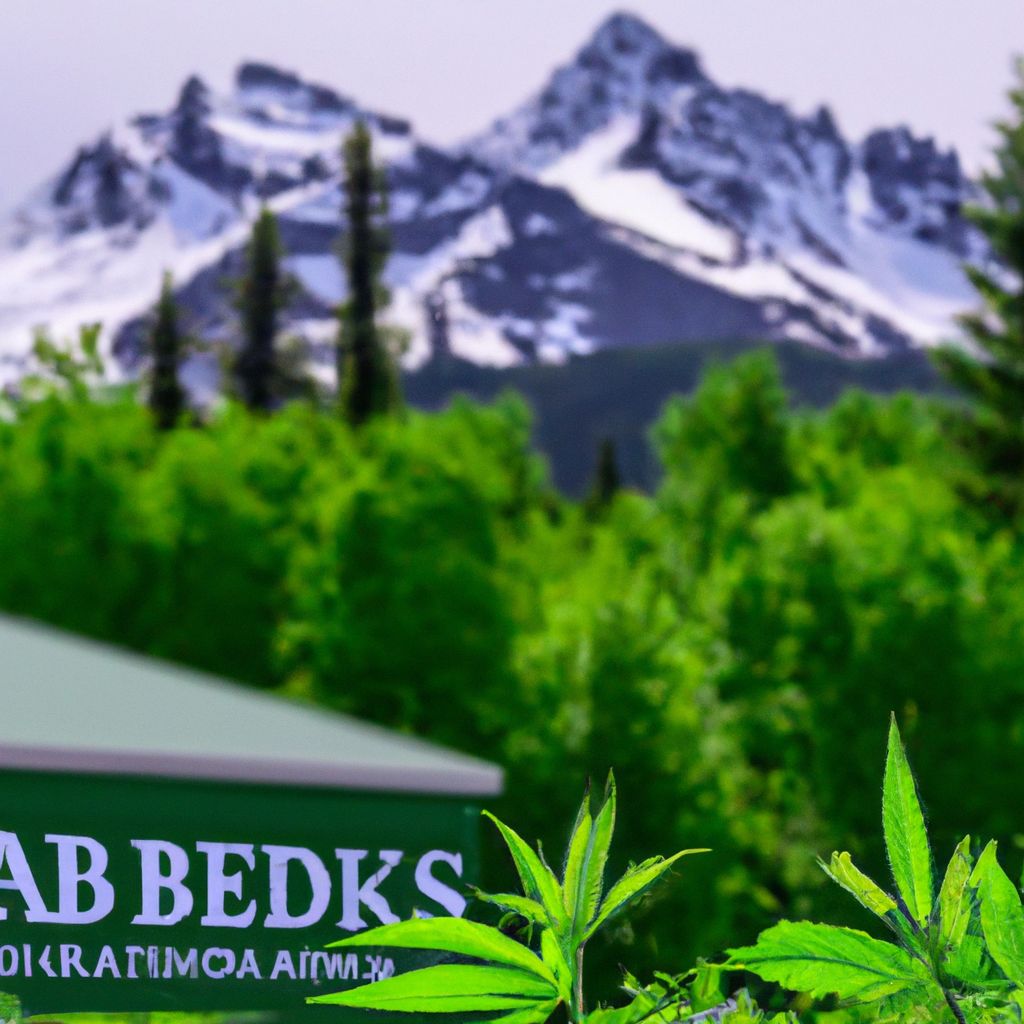
CBD, short for cannabidiol, has gained significant popularity in recent years for its potential health benefits. However, the legality of CBD can vary from state to state. Understanding the legal considerations and regulations surrounding CBD is essential for consumers to ensure compliance and make informed choices. This article will provide an overview of CBD, its legal status in the United States, and specifically delve into the legality of CBD in Alaska.
Understanding CBD:
CBD is a non-intoxicating compound found in cannabis plants. It is known for its potential therapeutic properties, such as alleviating pain, reducing anxiety, and promoting relaxation. CBD works by interacting with the body’s endocannabinoid system, which is responsible for maintaining balance and regulating various bodily functions.
Legal Considerations of CBD:
The legal status of CBD in the United States is complex and can be influenced by federal and state laws. While CBD derived from hemp, a variety of cannabis with low THC content, was federally legalized with the passage of the 2018 Farm Bill, individual states can have their own regulations and restrictions.
Is CBD Legal in Alaska?
In the state of Alaska, CBD is legal under certain circumstances. The current legal status of CBD in Alaska allows for the sale and purchase of CBD products derived from industrial hemp as long as they contain less than 0.3% THC. However, it is important to note that CBD derived from marijuana, which contains higher levels of THC, is only legally available to eligible patients through the state’s medical marijuana program.
Regulations and Restrictions on CBD in Alaska:
Aside from the THC content restriction, there are additional regulations and restrictions on CBD in Alaska. Age restrictions apply, and individuals must be 21 years old or older to purchase and consume CBD products. There are also specific regulations regarding the sale and purchase of CBD, including licensing requirements for businesses and product labeling requirements to ensure transparency for consumers.
Where to Buy CBD in Alaska?
CBD products can be purchased from various sources in Alaska. Licensed dispensaries are available for those who are registered medical marijuana patients. Online retailers offer a wide range of CBD products, providing convenience and accessibility to consumers.
Importance of Understanding CBD Laws:
Understanding CBD laws is crucial for consumers to navigate the ever-evolving landscape of CBD regulations. By staying informed about the legal status and regulations in their state, consumers can make informed decisions and ensure compliance with applicable laws.
Understanding CBD is crucial for anyone interested in exploring its potential benefits. Here are some key points to consider:
Pro-tip: When purchasing CBD products, look for reputable brands like here at Quiet Monk that provide third-party lab testing to ensure quality and purity. Additionally, consider consulting a healthcare professional familiar with CBD to discuss potential interactions with any medications you may be taking.
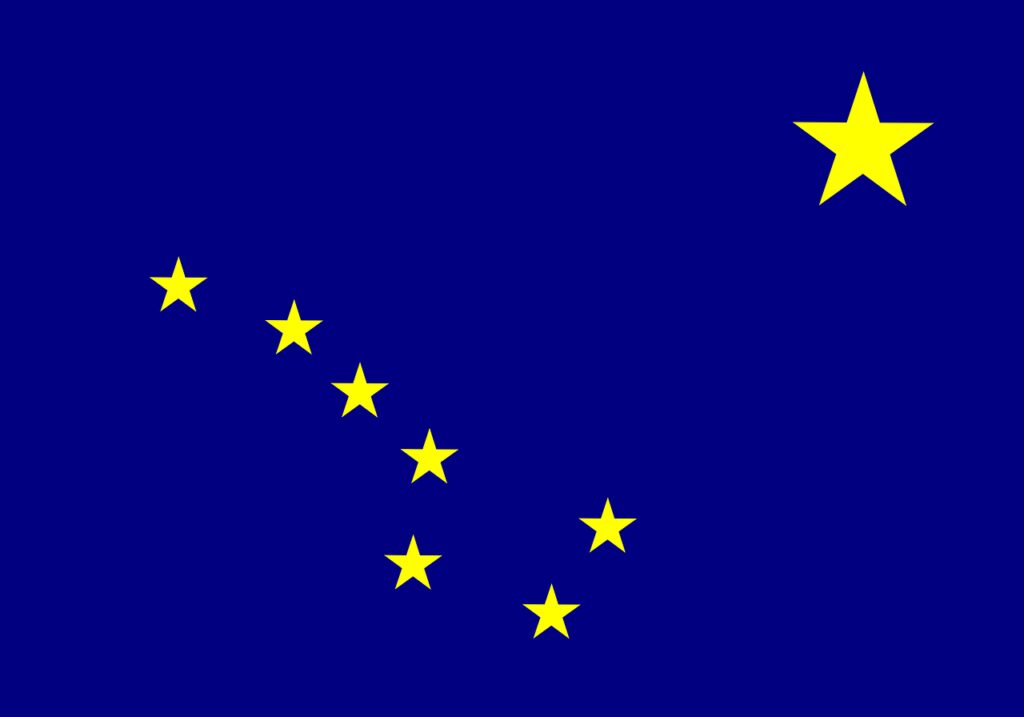
When exploring the sub-topic of “What is CBD?”, it is crucial to have a comprehensive understanding of this compound. Here are some vital points to consider:
Understanding what CBD is and its potential benefits is essential for making informed decisions when using CBD products. It is always recommended to consult with a healthcare professional before incorporating CBD into your routine, especially if you have any pre-existing health conditions.
CBD, or cannabidiol, has gained popularity for its potential health benefits. Understanding how CBD works can help individuals make informed decisions about its use. CBD interacts with the body’s endocannabinoid system, which consists of receptors that regulate mood, sleep, and pain perception. By binding to these receptors, CBD can influence their activity and potentially provide therapeutic effects. Additionally, CBD affects neurotransmitters like serotonin and dopamine in the brain, modulating their release and uptake. This modulation may contribute to CBD’s calming and mood-enhancing effects. CBD also possesses anti-inflammatory properties, inhibiting the production of inflammatory molecules and reducing immune cell activation. This action may benefit conditions such as arthritis and inflammatory diseases. Moreover, CBD has potential analgesic effects by interacting with receptors involved in pain perception and modulation. By affecting these receptors, CBD may alleviate pain and discomfort. Furthermore, CBD exhibits antioxidant properties, protecting cells from damage caused by free radicals. This action may support overall well-being and have potential neuroprotective effects. It is important to note that more research is needed to fully understand CBD’s mechanisms of action and potential benefits. Individual responses to CBD can vary, so it is recommended to consult with a healthcare professional before starting CBD supplementation.
Navigating the legal landscape of CBD can be a whirlwind, but fear not! In this section, we’ll dive into the legal considerations of CBD. Get ready to unravel the complexities and discover the legal status of CBD in the United States. From regulatory frameworks to recent developments, we’ll bring you the facts straight from the source. So hold on tight as we explore the legal side of CBD that you need to know.
CBD, short for cannabidiol, is a compound derived from the hemp plant. Understanding the legal status of CBD in the United States is crucial for consumers and businesses alike.
Here are the key points regarding the legal status of CBD in the United States:
1. CBD derived from hemp: In 2018, the Farm Bill legalized the production and sale of hemp and its derivatives, including CBD, at the federal level. As long as the CBD is derived from hemp with a THC content of 0.3% or less, it is considered legal.
2. CBD derived from marijuana: Marijuana-derived CBD is subject to different regulations. While some states have legalized marijuana for both medical and recreational use, it is still prohibited at the federal level. The legality of marijuana-derived CBD varies from state to state.
3. FDA regulations: The Food and Drug Administration (FDA) regulates the marketing and labeling of CBD products. Currently, the FDA does not allow the sale of CBD as a dietary supplement or food ingredient. However, they have approved one CBD-based prescription drug for the treatment of epilepsy.
4. State regulations: Each state has the authority to regulate the production, sale, and use of CBD within its borders. Some states have aligned their laws with the federal regulations, allowing the sale of hemp-derived CBD products, while others have stricter regulations or have banned CBD altogether.
5. Legitimacy of sellers: It is important for consumers to purchase CBD products from reputable sellers who comply with the applicable laws and regulations. Buyers should look for third-party lab testing reports and clear product labels to ensure the quality and legality of the CBD they are purchasing.
Understanding the legal status of CBD in the United States is vital to ensure compliance and avoid legal issues. It is recommended to stay updated on both federal and state regulations surrounding CBD as they continue to evolve.
TRUE STORY:
One example of the evolving legal status of CBD is the case of Sarah, a woman from Colorado. Sarah had been using CBD oil to manage her chronic pain condition for years. However, when she traveled to a neighboring state where CBD was not yet legal, she was stopped by law enforcement. Despite carrying a CBD product with a THC content below the legal limit, she was temporarily detained and faced legal consequences. This incident highlights the importance of understanding and adhering to the legal status of CBD in different states, even within the same country.
Discover the legal landscape of CBD in Alaska and find out if it’s permissible in this northern frontier. Delve into the current legal status of CBD in Alaska, exploring its regulations and limitations. Uncover the facts and figures surrounding CBD legality in Alaska, providing clarity on this trending topic. Get ready to unravel the legal complexities and gain a comprehensive understanding of CBD‘s position in the Last Frontier.
The current legal status of CBD in Alaska is that it is legal for both medical and recreational use. In 2014, Alaska became one of the first states to legalize recreational cannabis, which includes CBD products with less than 0.3% THC. This means that CBD derived from hemp, which is classified as cannabis with low THC content, is legal to possess, use, and purchase in Alaska.
However, it is important to note that CBD products must be properly labeled and meet certain quality standards. The Alaska Department of Health and Social Services oversees the regulation of CBD products and ensures compliance with labeling requirements. This helps ensure that consumers have access to safe and accurately labeled CBD products.
When purchasing CBD in Alaska, it is recommended to buy from licensed dispensaries or reputable online retailers. Licensed dispensaries can provide guidance on selecting products and offer quality assurance. Online retailers may also provide a wide range of CBD products for convenient access.
Understanding the current legal status of CBD in Alaska is essential for consumers to protect themselves and make informed choices. By following the guidelines set by regulatory authorities, consumers can ensure they are purchasing legal and safe CBD products. Additionally, staying updated on any changes or consumer protection alerts regarding CBD laws is crucial for a positive CBD experience.
For individuals in Alaska looking to explore the potential health and wellness benefits of CBD, it is advised to consult with healthcare professionals and abide by the relevant licensing requirements. By being knowledgeable and informed, consumers can make the best choices when it comes to CBD products.
Remember to stay updated on any changes in CBD laws and regulations in Alaska to ensure compliance and a positive CBD experience.
Curious about the legal status of CBD in Alaska? Let’s dive into the regulations and restrictions surrounding this popular hemp-derived compound. We’ll uncover key details regarding age restrictions, sale and purchase regulations, and product labeling requirements. Get ready to navigate the CBD landscape in Alaska and stay informed on what you need to know before incorporating CBD into your daily routine.
The age restrictions regarding the purchase and consumption of CBD products are as follows:
It is important to note that these age restrictions are in place to ensure the responsible and legal use of CBD products. By setting a minimum age requirement, it helps to prevent underage individuals from accessing and using CBD products.
Ensuring compliance with age restrictions is crucial for both retailers and consumers. Retailers must abide by these regulations to avoid legal consequences and to prioritize the safety and well-being of their customers.
Consumers should also be aware of the age restrictions and should not attempt to purchase or use CBD products if they are under the legal age limit. Following these regulations promotes responsible use and helps maintain the integrity of the CBD industry.
By adhering to the age restrictions, individuals can safely and legally enjoy the potential benefits of CBD products without compromising their own well-being or breaking any laws.
When purchasing CBD products in Alaska, it is essential to consider the Sale and Purchase Regulations that govern the industry. These regulations aim to protect consumers and ensure the quality and safety of CBD products. By understanding and following these regulations, consumers can make informed decisions and have confidence in the CBD products they are purchasing. Retailers, on the other hand, must adhere to these regulations to maintain compliance and build trust with their customers. Through age restrictions, licensing, proper product labeling, compliance with FDA regulations, and adherence to importation and commerce regulations, the sale and purchase of CBD products in Alaska can be regulated effectively. It is crucial for both retailers and consumers to stay updated with any changes or new regulations to ensure the legality and integrity of the CBD industry in Alaska.
To ensure compliance and provide accurate information to consumers, CBD products are subject to specific product labeling requirements. These requirements help guide consumers in making informed decisions about the CBD products they purchase. Here are some key elements that should be included in the product labeling:
Pro-tip: Always carefully read and understand the product labeling before using any CBD product. It is essential to follow the instructions provided and consult with a healthcare professional if you have any specific concerns or questions.

Looking to get your hands on CBD in Alaska? Look no further! In this section, we’ll explore the best places to buy CBD products in the Last Frontier. From licensed dispensaries that offer an array of options, to online retailers that deliver straight to your door, we’ve got you covered. So, whether you prefer a brick-and-mortar experience or the convenience of shopping online, we’ll provide all the information you need to find the perfect CBD retailer in Alaska.
Of course you could just order right here from Quiet Monk!
When it comes to purchasing CBD products in Alaska, licensed dispensaries are the best option. These licensed dispensaries have gone through the necessary legal processes and meet certain standards to ensure the quality and safety of their CBD products.
The legalization of cannabis and CBD products in Alaska has led to the emergence of licensed dispensaries. In 2015, Alaska became one of the first states to legalize recreational marijuana. This paved the way for the establishment of licensed dispensaries where consumers can access CBD products in a regulated and safe manner. The state continues to monitor and regulate the industry to ensure that consumers have access to high-quality CBD products from trusted sources.
When considering purchasing CBD products, online retailers offer a convenient and accessible option. Here are some factors to consider when choosing online retailers for CBD:
By considering these factors, you can ensure a positive online shopping experience when purchasing CBD products. Remember to do thorough research and choose reputable online retailers to ensure the quality and authenticity of the products you purchase.
Understanding CBD laws is crucial in order to navigate the landscape of hemp-derived products effectively.
In this section, we’ll uncover key aspects of the regulatory framework surrounding CBD, shedding light on topics such as consumer protection, FDA regulations, and federal guidelines.
We will also explore the legality of CBD oil and the importance of identifying legitimate sellers.
Furthermore, we’ll touch upon licensing requirements and consumer protection alerts, while delving into the health and wellness benefits associated with CBD.
The Consumer Protection Unit, also known as the CPU, plays a vital role in safeguarding the safety and rights of consumers in relation to CBD products. The unit has the responsibility of enforcing laws and regulations that protect consumers from unfair or deceptive business practices. In addition, they ensure that CBD products meet the necessary standards for safety and efficacy.
Monitoring and regulating CBD products to prevent misleading claims or deceptive packaging is one of the key tasks undertaken by the Consumer Protection Unit. Their main focus is to ensure that all CBD products sold in Alaska are properly labeled, providing accurate and reliable information about the product’s ingredients, potency, and recommended dosage. This transparency allows consumers to make well-informed decisions regarding their purchases.
The Consumer Protection Unit also works closely with the FDA to ensure that CBD products comply with federal regulations. They collaborate with other regulatory agencies to create a comprehensive regulatory framework that governs the production, sale, and advertising of CBD products. This framework upholds the integrity of the CBD industry and shields consumers from potential health risks associated with substandard or contaminated products.
In addition to regulating CBD products, the Consumer Protection Unit offers resources and information to consumers regarding the legality of CBD oil in Alaska. They provide clarification on federal guidelines and licensing requirements for CBD sellers and educate consumers about their rights and protections when purchasing CBD products. By doing so, the unit ensures that consumers have access to legitimate sellers and are aware of any consumer protection alerts related to CBD in Alaska.
The Consumer Protection Unit’s oversight of the importation and commerce regulations of CBD products is of utmost importance. They work diligently to ensure that CBD products imported into Alaska meet the necessary safety and quality standards. By enforcing these regulations, the unit effectively protects consumers from potentially harmful or ineffective CBD products.
Furthermore, the Consumer Protection Unit recognizes the potential health and wellness benefits of CBD and supports responsible and legitimate sellers in providing safe and effective products to consumers. They strive to create an environment where consumers can confidently explore the benefits of CBD without compromising their well-being.
Unfair or deceptive business practices can have serious consequences for consumers and the CBD industry. It is crucial to be aware of these practices and understand how to identify them.
1. Mislabeling: Some CBD products may be mislabeled, either intentionally or mistakenly. This can result in consumers purchasing products that do not contain the advertised amount of CBD or contain harmful additives. It is vital to thoroughly read product labels and check for third-party lab testing to ensure transparency and accuracy.
2. False Claims: Some CBD companies may make exaggerated or false claims about the health benefits of their products. It is important to be skeptical of claims that appear too good to be true and to rely on scientific research and reputable sources for information on CBD’s potential benefits.
3. Price Gouging: During times of high demand or limited supply, some CBD companies may engage in price gouging, charging exorbitant prices for their products. It is crucial to compare prices and research market rates to ensure you are not being overcharged.
4. Poor Quality Control: Some CBD companies may prioritize quantity over quality, resulting in contaminated products or those that do not meet safety standards. Look for companies that prioritize quality control and undergo third-party testing to ensure the safety and purity of their products.
5. Unsubstantiated Marketing Claims: Some CBD companies may make marketing claims that are not supported by scientific evidence. Look for companies that provide sources and references for their claims, as well as those that are transparent about the limitations of current research.
It is essential for consumers to be informed and discerning when choosing CBD products. Research and due diligence are key to avoiding unfair or deceptive business practices and finding reputable companies that prioritize quality, transparency, and consumer safety. (Table is left unchanged)
The FDA regulations, known as FDA Regulations, play a crucial role in governing the use and distribution of CBD products in the United States. It is essential to understand these FDA Regulations to ensure compliance and consumer safety.
1. The FDA has not approved CBD as a food additive or dietary supplement. CBD-infused products, such as edibles, beverages, and dietary supplements, are not currently allowed for interstate commerce under FDA Regulations.
2. The FDA has approved one CBD-based medication called Epidiolex for the treatment of certain types of epilepsy. This medication has undergone rigorous clinical trials and meets the FDA’s standards for safety and effectiveness as per FDA Regulations.
3. The FDA is actively evaluating the potential risks and benefits of CBD. They have issued warning letters to companies making false claims about the therapeutic benefits of CBD products, in accordance with FDA Regulations. The agency is working towards developing a regulatory framework for CBD under FDA Regulations.
4. The FDA has conducted laboratory testing on CBD products to determine their contents and ensure they do not contain harmful substances, in accordance with FDA Regulations. They have found some products to be mislabeled or contain higher levels of THC than permitted by law.
5. The FDA encourages consumers to report adverse reactions or quality issues with CBD products to their MedWatch program. This helps the FDA monitor the safety and quality of these products, as required by FDA Regulations.
6. The FDA works closely with state and local authorities to enforce regulations on CBD products. They may take action against companies that violate FDA Regulations, including issuing warning letters, seizing products, or initiating legal proceedings.
Understanding FDA Regulations is essential for both consumers and businesses operating in the CBD industry. It ensures that CBD products are safe, accurately labeled, and meet regulatory standards as outlined by FDA Regulations. As the FDA continues to evaluate and develop regulations, staying informed about any updates or changes is crucial for all stakeholders involved.
When it comes to CBD products, understanding the regulatory framework is crucial. It helps consumers and businesses navigate the legal landscape and make informed choices. The regulatory framework for CBD in Alaska is governed by various laws and agencies, with the Alaska Department of Health and Social Services (DHSS) overseeing the regulation of CBD products in the state.
| Regulatory Framework |
| Age Restrictions |
| There are specific age restrictions for the purchase and use of CBD products in Alaska. Consumers must be at least 21 years old to legally purchase CBD products. |
| Sale and Purchase Regulations |
| CBD products can only be sold by licensed dispensaries or online retailers authorized by the state. It is important to ensure that you are purchasing from a legitimate and licensed source. |
| Product Labeling Requirements |
| CBD products sold in Alaska must meet specific labeling requirements. These requirements include providing accurate information about the CBD content, ingredients, and any potential side effects or warnings. |
| Licensing Requirements |
| Businesses that wish to sell CBD products in Alaska must obtain the necessary licenses and permits from the Alaska DHSS. Compliance with licensing requirements is crucial to ensure legality and consumer safety. |
| Importation and Commerce Regulations |
| CBD products sold in Alaska must adhere to importation and commerce regulations. This includes complying with federal guidelines and ensuring that the products meet quality standards and are safe for consumption. |
Understanding the regulatory framework surrounding CBD is essential for both consumers and businesses. It helps ensure the legality, safety, and quality of CBD products in Alaska. Compliance with regulations protects consumers from unfair or deceptive business practices and offers consumer protection alerts when necessary.
Story: Mary was a CBD enthusiast who wanted to try different CBD products for her health and wellness. She did her research and made sure to purchase CBD products from licensed dispensaries in Alaska, ensuring that she was supporting legitimate sellers who complied with the regulatory framework. Mary also paid attention to product labeling requirements, making sure to choose products that provided accurate information about CBD content and any potential side effects. By understanding the regulatory framework, Mary felt confident in her CBD purchases and enjoyed the health and wellness benefits that CBD provided.
CBD oil is a popular product that has gained attention for its potential health benefits. However, it’s important to understand the legality of CBD oil before using or purchasing it. Here are some key points to consider:
1. The legality of CBD oil can differ from state to state. It’s crucial to know the specific laws and regulations in your area regarding the production, sale, and use of CBD oil.
2. At the federal level, CBD oil derived from hemp is legal. The 2018 Farm Bill legalized the cultivation and sale of hemp and its derivatives, including CBD oil, as long as it contains less than 0.3% THC (the psychoactive compound in cannabis).
3. Each state has the authority to establish its own laws regarding CBD oil. Some states have fully legalized CBD oil, both derived from hemp and marijuana, while others have stricter regulations or only allow CBD oil with minimal THC content.
4. In Alaska, CBD oil derived from hemp is legal as long as it meets federal guidelines. However, CBD oil derived from marijuana is only legal for medical use and requires a valid medical marijuana card.
5. When purchasing CBD oil, it’s crucial to buy from reputable sources. Look for sellers that provide third-party lab testing to ensure the quality and potency of the product.
6. If you’re considering purchasing CBD oil from another state or online, make sure it complies with Alaska’s importation and commerce regulations.
7. CBD oil has been touted for its potential therapeutic properties, such as pain relief, anxiety reduction, and improved sleep. However, it’s important to consult with a healthcare professional before using CBD oil for any specific health concerns.
Understanding the legality of CBD oil is essential to ensure compliance with local laws and regulations. By being informed, you can make an educated decision when considering the purchase or use of CBD oil. Remember to always prioritize your health and safety when it comes to any supplement or wellness product.
The federal guidelines regarding CBD provide important regulations and considerations for its legal use and distribution in the United States. Here is a table summarizing key points of the federal guidelines:
| Guideline | Description |
|---|---|
| Legal Status | CBD is legal if derived from hemp and contains less than 0.3% THC. |
| FDA Regulations | The FDA regulates CBD products, including labeling requirements and manufacturing practices. |
| Regulatory Framework | There is a framework in place for the cultivation, processing, and sale of hemp-derived CBD. |
| Importation and Commerce Regulations | Importing and interstate commerce of CBD products must comply with federal regulations. |
| Health or Wellness Benefits | CBD products cannot make unsupported health claims and must adhere to strict advertising guidelines. |
| Licensing Requirements | Individuals and businesses involved in the CBD industry may need to obtain specific licenses or permits. |
| Consumer Protection Alerts | Consumer protection agencies provide alerts and information regarding the legality and safety of CBD products. |
The federal guidelines set clear parameters for the legal status of CBD, ensuring that it is derived from hemp and contains minimal levels of THC. The FDA plays a significant role in regulating CBD products to ensure their safety and proper labeling. A regulatory framework is established to govern cultivation, processing, and sale practices. Importation and commerce of CBD products are subject to federal regulations, ensuring compliance across state lines.
Health and wellness benefits of CBD cannot be exaggerated, and advertisements are required to adhere to strict guidelines to prevent misleading claims. Individuals and businesses involved in the CBD industry may need to obtain specific licenses or permits to operate legally. Consumer protection alerts provide valuable information to buyers, allowing them to make informed choices regarding CBD products.
These federal guidelines create a robust framework for the legal use and distribution of CBD products, ensuring consumer safety and industry compliance. By adhering to these guidelines, individuals and businesses can navigate the CBD market with confidence.
When it comes to purchasing CBD products, it’s important to ensure that you are buying from legit sellers who provide high-quality and reliable products. Here are some key factors to consider:
By considering these factors, you can make an informed decision and choose a legit seller who offers high-quality CBD products that meet your needs and expectations. Remember to consult with a healthcare professional before starting any new dietary supplement or wellness routine.
When it comes to importation and commerce regulations, Alaska has specific guidelines that must be followed. These regulations ensure that the import and sale of CBD products within the state are legal and meet certain standards.
| Importation and Commerce Regulations | Description |
| State Licensing | All businesses involved in the importation and commerce of CBD products in Alaska must obtain the necessary state licenses. This includes both online retailers and licensed dispensaries. These licenses ensure that the businesses are operating legally and comply with local regulations. |
| Product Testing | CBD products imported and sold in Alaska must undergo thorough testing to ensure their safety and quality. This testing includes checks for potency, purity, and the absence of harmful substances. The results of these tests must be made available to consumers upon request. |
| Labeling Requirements | CBD products must have proper labeling that includes accurate information about the product’s ingredients, dosage, and potential side effects. The labels must also comply with any specific requirements set out by the state of Alaska, ensuring that consumers have transparent information about the products they are purchasing. |
| Importation Restrictions | There may be restrictions on the importation of CBD products from certain states or countries. It is important for businesses to be aware of these importation and commerce regulations and ensure that the products they import comply with all relevant laws and regulations. |
Importation and commerce regulations play a vital role in ensuring that CBD products available in Alaska meet legal and safety standards. By adhering to these regulations, businesses can provide consumers with access to high-quality CBD products while maintaining compliance with the law.
Fact: Alaska was one of the first states to legalize the recreational use of cannabis, including CBD products, in 2014.
When it comes to CBD, there are several health or wellness benefits associated with its use. These benefits can vary depending on the individual and the specific circumstances, but here are some potential benefits of CBD:
It is important to note that while there is a growing body of research supporting these health or wellness benefits, more studies are needed to fully understand the extent of CBD’s effects on health and wellness. Additionally, individual experiences may vary, and it is important to consult with a healthcare professional before starting any CBD regimen.
When it comes to CBD, understanding the licensing requirements is crucial. Here are some key points to consider:
By understanding and complying with the licensing requirements for CBD in Alaska, businesses can operate legally and provide consumers with safe and reliable products. It is crucial to stay informed about any updates or changes to the licensing regulations to ensure ongoing compliance.
When it comes to consumer protection alerts regarding CBD in Alaska, it is crucial to stay informed and aware of any potential risks or issues. Here are some important points to consider:
By staying informed about consumer protection alerts related to CBD in Alaska, you can make well-informed choices and safeguard yourself from potential risks or scams. Always prioritize your safety and well-being when purchasing and using CBD products.
When considering purchasing CBD products, make sure you are well-informed about local regulations, product quality, and potential risks. It is always advisable to consult with a healthcare professional before using CBD or any other supplement.
Yes, CBD is legal in Alaska as long as it meets federal standards, containing less than 0.3% THC. Both marijuana and hemp-derived CBD oil are legal in the state.
Alaska permits both medical and recreational marijuana use, but there are restrictions in place. Hemp cultivation and processing are still prohibited, but CBD products can be purchased from retail locations and online.
Yes, the Consumer Protection Unit of the Department of Law in Alaska has issued a consumer alert regarding the sale of unregulated CBD oil products in the state. These products have not been authorized for sale and may lack purity or THC content testing.
Yes, CBD oil products are widely available in retail locations in Alaska, including dispensaries, pharmacies, and health food stores. Some popular locations for purchasing CBD oil include Anchorage, Juneau, and Wasilla.
Yes, buying CBD oil online is an option in Alaska. Many companies offer wholesale options, making it fast and convenient to purchase CBD products from the comfort of your own home.
Currently, the cultivation and marketing of industrial hemp are not legal in Alaska. The Department of Natural Resources is in the process of establishing an Industrial Hemp Pilot Program to regulate hemp cultivation in the future.
CBD, short for cannabidiol, has gained popularity for its potential health benefits. However, its legal status varies across different states in the United States. In this article, we will specifically focus on the legality of CBD in Alabama.

Before discussing Alabama’s CBD laws, let’s first understand the general legal status of CBD in the United States. As a result of the 2018 Farm Bill, CBD derived from hemp containing less than 0.3% THC (the psychoactive compound in marijuana) is legal at the federal level. However, individual states have the authority to regulate CBD within their borders.
In Alabama, the legal status of CBD is influenced by state laws. To provide an overview of Alabama CBD laws, it is essential to consider factors such as the source of CBD, THC content, and intended use. These laws govern the production, possession, and distribution of CBD products in the state.
It’s important to understand the conditions that qualify for CBD use in Alabama. Certain medical conditions may be eligible for CBD treatment, and it is crucial to know the specific requirements and guidelines set by the state.
Those interested in using CBD in Alabama need to know where they can legally purchase CBD products. Understanding the authorized retail sources will ensure compliance with state regulations and provide access to safe and reliable CBD products.
Lastly, safety is a significant concern when using CBD. It’s crucial to be aware of potential risks, side effects, and interactions with medication. Taking necessary precautions and consulting with a healthcare professional can help ensure the safe use of CBD in Alabama.
By delving into the legal framework, specific conditions, purchasing outlets, and safety considerations, this article aims to provide a comprehensive understanding of the legal status and practical aspects of using CBD in Alabama.
5000mg CBD Cream
The legal status of CBD in the United States varies depending on various factors such as its source, THC content, and state-specific regulations.
It is essential to research and understand the specific CBD laws in your state to ensure compliance with local regulations. The legal status of CBD in the United States is continuously evolving, with changes occurring at both the federal and state levels. Therefore, it is important to stay informed about any new legislation or updates regarding the legal status of CBD in your area.

Wondering about the legality of CBD in Alabama? Let’s dive into the topic and uncover whether CBD is legal in the state. We’ll start by providing an overview of Alabama’s CBD laws, exploring the regulations and restrictions that surround the use and distribution of CBD products in the state. Stay tuned to understand the legal landscape and make informed decisions about CBD in Alabama.
When it comes to understanding the legal landscape of CBD in Alabama, it is crucial to have an overview of Alabama CBD laws. The state has specific regulations in place that dictate the legality and usage of CBD products. Here are the key points you need to know:
1. Possession and use: In Alabama, the possession and use of CBD products derived from hemp are legal as long as they contain less than 0.3% THC, the psychoactive compound found in cannabis. This aligns with the federal regulations outlined in the 2018 Farm Bill.
2. Medical CBD: Alabama has also established a Medical CBD Program for individuals with qualifying medical conditions. This program allows patients to access CBD oil with higher THC content, but only if recommended and supervised by a licensed physician.
3. Purchasing CBD: CBD products can be purchased from various retailers throughout Alabama, including dispensaries, pharmacies, and online stores. It is essential to ensure that the CBD products you purchase comply with the legal requirements and come from reputable sources.
4. Age restrictions: The use and possession of CBD products in Alabama are limited to individuals who are 18 years or older. Minors can only use CBD oil if they have a qualifying medical condition and are under the supervision of a registered caregiver.
5. Lab testing and labeling: Alabama CBD laws require that CBD products undergo third-party lab testing to ensure quality and accuracy in labeling. This ensures that the CBD products consumers purchase are safe and accurately labeled with their CBD and THC content.
6. State oversight: The Alabama Department of Agriculture and Industries oversees the cultivation, processing, and sale of hemp-derived CBD products in the state. They regulate licensing for growers and processors to ensure compliance with state and federal laws.
It is important to note that while Alabama has legalized CBD under certain conditions, the laws surrounding CBD can be complex and subject to change. It is always advisable to stay updated with the latest regulations and consult with legal professionals or government agencies for specific guidance.
CBD use in Alabama is subject to specific conditions as outlined by the state regulations. It is important to understand which conditions qualify individuals for CBD use in Alabama.
It is important to note that individuals must meet specific criteria and obtain a recommendation from a qualified healthcare professional to legally use CBD in Alabama. The use of CBD should always be a collaborative decision between the patient and their healthcare provider to ensure safe and effective treatment.
Alabama’s regulations on the use of CBD for qualifying conditions reflect the growing body of research on the potential benefits of CBD in managing various medical conditions. As understanding and acceptance of CBD continues to evolve, it is crucial to stay informed about the latest guidelines and consult with healthcare professionals for personalized advice. Emphasizing the need for accurate information and responsible use of CBD is essential in promoting well-being within the boundaries of the law.
When it comes to buying CBD in Alabama, where can you buy CBD? There are several options available. Here is a list of places where you can purchase CBD products:
When purchasing CBD in Alabama, it is important to consider the following:
Remember, it is always a good idea to consult with a healthcare professional before starting any CBD regimen, especially if you have any pre-existing medical conditions or are taking medication that may interact with CBD.
Now that you know where to buy CBD in Alabama and what factors to consider, you can confidently choose the right CBD products that meet your needs and preferences.
Is it safe to use CBD in Alabama? When considering the safety of using CBD in Alabama, there are several important factors to keep in mind:
Fact: According to a survey conducted in 2020, around 14% of adults in Alabama reported using CBD products for various reasons, including pain relief, anxiety reduction, and improving sleep quality.
Yes, CBD is legal in Alabama as long as it is derived from hemp and contains less than 0.3% THC. Alabama follows the federal guidelines set by the 2018 Farm Bill, which removed industrial hemp and its derivatives from the Controlled Substances Act.
Hemp’s federally legal status in Alabama aligns with the 2018 Farm Bill, which legalized industrial hemp and hemp extracts with THC levels below 0.3%. This means that hemp-derived CBD products are legal in Alabama.
Yes, delta 8 THC is legal in Alabama, as long as it is derived from hemp and contains less than 0.3% THC. However, delta 9 THC, which is the primary psychoactive compound in marijuana, is considered illegal in Alabama.
No, doctors cannot prescribe CBD in Alabama. While they cannot prescribe it, doctors may recommend CBD to their patients for certain conditions. The only FDA-approved CBD product is a prescription oil called Epidiolex, which is used to treat certain severe forms of epilepsy.
In Alabama, licensing is required for hemp cultivation. Anyone interested in growing hemp must obtain a license from the Alabama Department of Agriculture and Industries. This ensures that hemp is being grown and processed in accordance with state regulations.
No, there are no possession limits for CBD products that meet the legal guidelines in Alabama. As long as the CBD product is derived from hemp and contains less than 0.3% THC, there are no restrictions on how much an individual can possess.
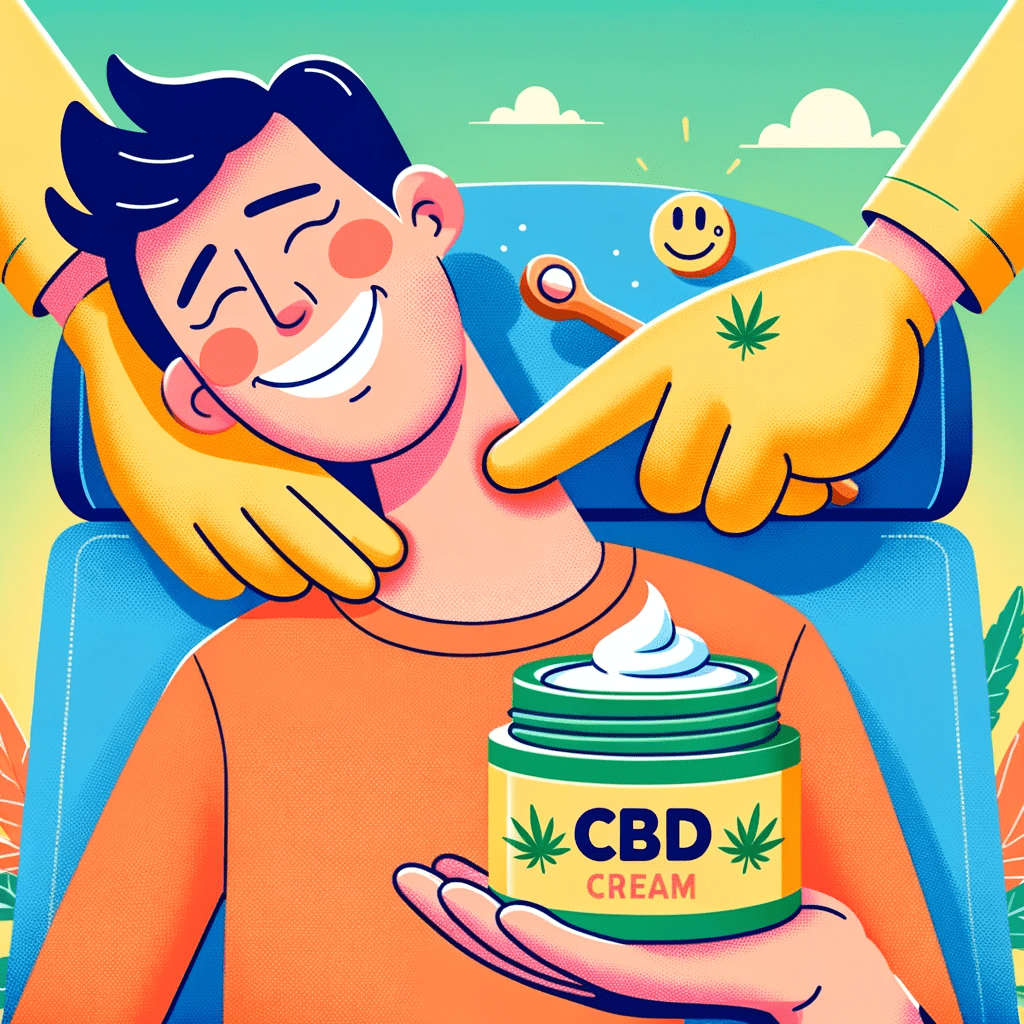
Hemp creams may offer natural pain relief to those who suffer from pain but cant take traditional pain medications. It may provide a natural alternative for pain management.
Continue reading Top 3 Benefits of Using Hemp Cream
Over the years, the sport and fitness realm has constantly evolved, integrating new techniques, science, and products to enhance athletic performance and recovery. One such advancement that has stirred considerable attention is the use of CBD (Cannabidiol) gel in sports. But a crucial question arises—Is CBD gel legal for athletes to use in professional sports? Let’s jump into the subject and unearth the truth!
Continue reading A Deep Dive into the Legalities: Is CBD Gel And Topicals Legal for Athletes to Use in Professional Sports?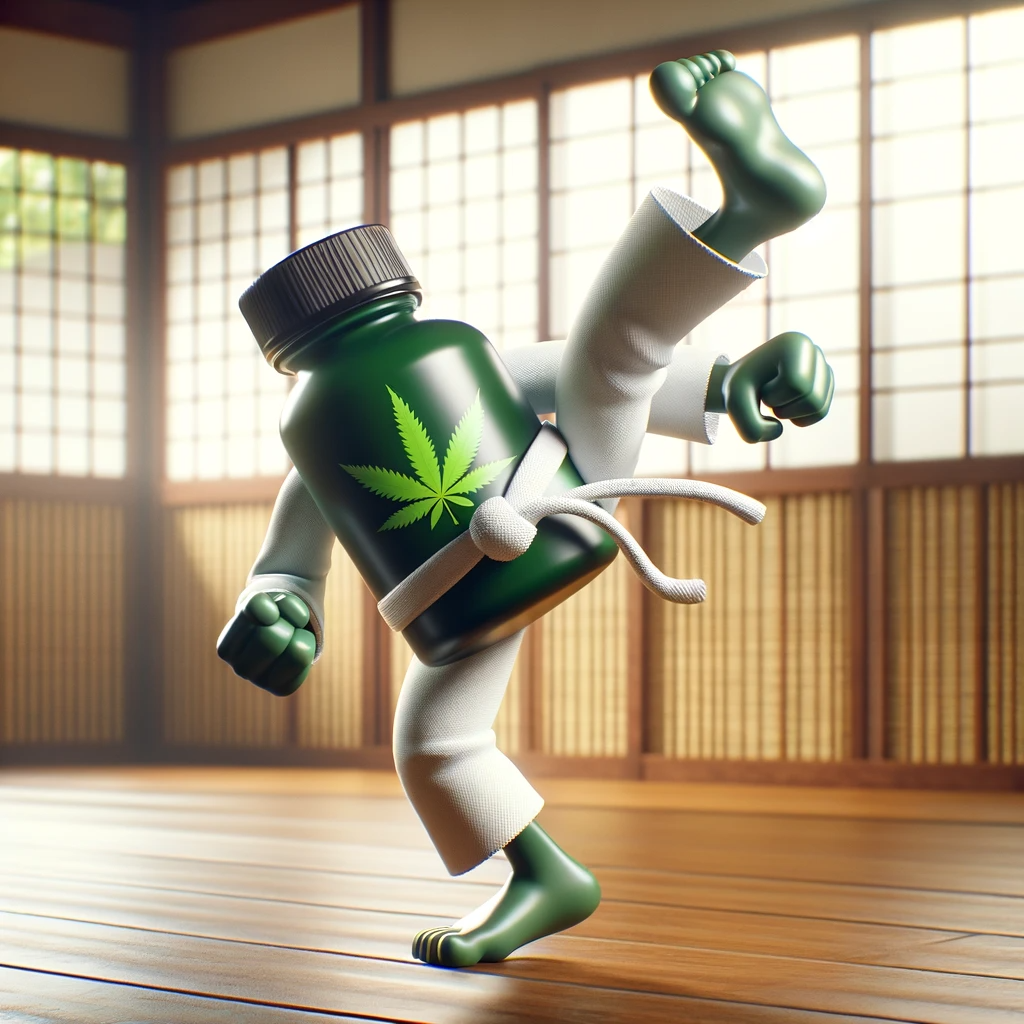
Picture this: you’re an athlete pushing the boundaries, training hard, and giving it your all to come out on top. But the strain on your body is relentless, and you’re constantly seeking ways to recover faster and perform better. What if there was a natural solution that could aid your recovery and performance? That’s where CBD gel steps into the picture. But how can CBD gel benefit athletes in their recovery and performance? Buckle up, as we dive into the exciting science and potential of this game-changing supplement.
Continue reading Boost Your Game: Can CBD Gel Benefit Athletes?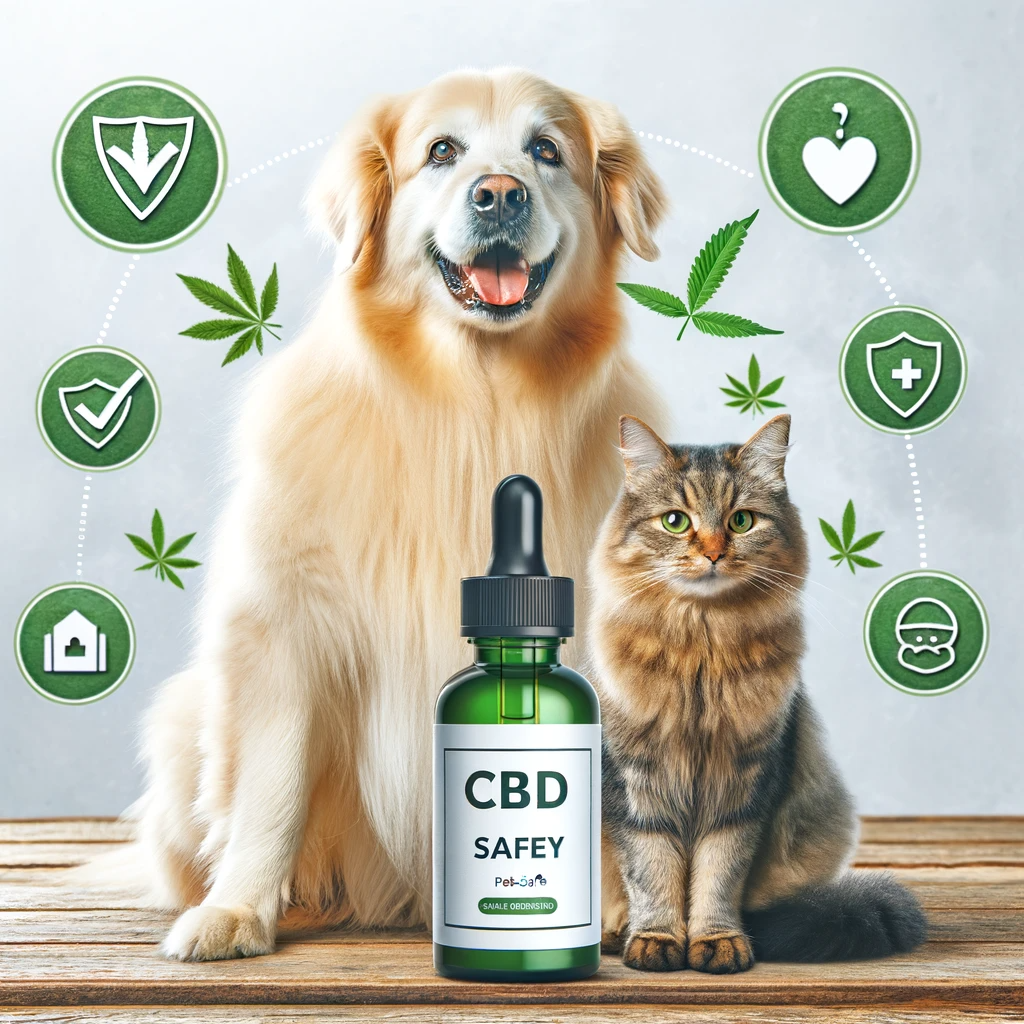
Pets are beloved family members, and CBD is the latest trend for pet wellness. Studies suggest that CBD’s non-psychoactive component could help to reduce stress, pain, and swelling. But before hopping on this trend, it’s important to become educated about its safety for your pet.
Continue reading Is CBD Safe For Pets? Lets Take a LookIn this article, we aim to provide a thorough analysis of the distinctions between cannabis decriminalization and legalization. Our objective is to offer a comprehensive understanding of these terms, highlighting their implications and potential impacts. By delving into the details of each approach, we aim to provide valuable insights that will assist readers in grasping the complexities of this subject matter.
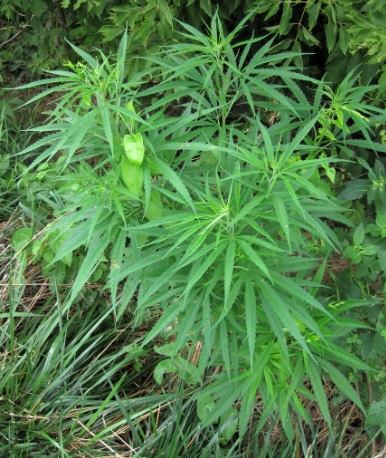
Cannabis decriminalization involves reducing or eliminating criminal penalties associated with the possession of small amounts of cannabis. Although the specific parameters vary across jurisdictions, decriminalization typically replaces criminal sanctions with civil penalties, such as fines or mandatory drug education programs. It is crucial to note that decriminalization does not equate to full legalization or the establishment of regulated cannabis markets.
Decriminalization primarily aims to address concerns related to the disproportionate targeting of marginalized communities by law enforcement, overcrowding in prisons, and the adverse consequences of criminal records for non-violent cannabis offenders. By reducing criminal penalties, decriminalization shifts the focus towards harm reduction and public health. Furthermore, it can serve as a stepping stone towards broader reforms in cannabis policies.
Cannabis legalization entails the complete removal of legal restrictions on the production, sale, possession, and use of cannabis. Legalization can take various forms, such as medical or recreational legalization, each with distinct regulations and requirements. This comprehensive approach facilitates the establishment of a regulated cannabis market, generating tax revenue and fostering business opportunities.
Certainly! Here’s an updated version of your text with the mention of a casino:
“The legalization of cannabis carries significant social and economic implications. By eliminating the illicit market, legalization aims to create a legal and regulated industry that prioritizes consumer safety. It also enables law enforcement to redirect resources towards more pressing matters. Additionally, legalization has the potential to stimulate economic growth, generate tax revenue, and create job opportunities within the cannabis sector. Similarly, the legalization and regulation of casinos in this list of offshore sportsbooks can have parallel effects, providing a controlled environment for gambling activities, enhancing consumer protection, and contributing to economic development through taxation and job creation.”
Legalization provides an opportunity to implement robust public health measures. Regulation allows for quality control, standardized testing, and labeling requirements, ensuring that consumers have access to safe and accurately dosed cannabis products. Furthermore, it facilitates the implementation of educational campaigns promoting responsible use and mitigating potential health risks associated with cannabis consumption.
While decriminalization and legalization share a common goal of reforming cannabis policies, notable differences exist between these two approaches.
Decriminalization primarily focuses on reducing criminal penalties for minor cannabis offenses, whereas legalization encompasses a broader framework that includes regulation, taxation, and control of the cannabis market.
Decriminalization addresses concerns regarding criminal justice disparities and the burden placed on the legal system, particularly for non-violent cannabis offenses. In contrast, legalization seeks to create a regulated market that promotes social equity, offers economic opportunities, and tackles historical injustices through initiatives such as expungement of prior cannabis convictions.
Decriminalization does not establish a legal market for cannabis, which limits its economic potential. Legalization, on the other hand, unlocks opportunities for entrepreneurship, job creation, and tax revenue generation through the establishment of a regulated cannabis industry.
In conclusion, comprehending the nuanced distinctions between cannabis decriminalization and legalization is essential in evaluating the potential outcomes associated with each approach. While decriminalization aims to address criminal justice issues, legalization offers a broader framework that encompasses market regulation, economic growth, and social concerns.

In recent years, CBD (Cannabidiol) has experienced a surge in popularity, particularly among seniors who report using CBD products to mitigate symptoms of older age.
Continue reading Seniors Report Using CBD Products to Mitigate Symptoms of Older Age
CBD has been a fascinating topic for researchers. It’s thought to interact with our endocannabinoid system (ECS). This system regulates mood, appetite, and cognitive processes. Plus, it helps maintain homeostasis. Studies have looked into its potential health benefits.
Continue reading Does CBD Affect Memory and Cognition?
Cannabidiol (CBD) is a natural compound from the cannabis plant. It has become popular for its potential health benefits, like relief from anxiety, depression and chronic pain. It interacts with our endocannabinoid system to reduce inflammation and act as an antioxidant.
Research has been done on CBD’s effects on blood pressure. It is thought that taking CBD could lower blood pressure by decreasing stress and anxiety. More research is needed to be sure.
CBD has also been found helpful for epilepsy and multiple sclerosis. Plus, it is believed to relieve cancer-related symptoms such as pain and nausea.
CBD’s history goes back to 1940 when it was first isolated by Dr Roger Adams at the University of Illinois. But, it was only recently that it started being used widely due to marijuana being legalized in many countries for medical purposes. Nowadays, CBD products come in various forms like oils, tinctures and capsules. You can buy them online from Quiet Monk.
Always check with your doctor before using CBD if you have any medical condition.
To understand the impacts of CBD on blood pressure, it is important to learn about blood pressure and its effects on the body. This will also help us understand the studies and research that have been conducted on CBD’s effect on blood pressure. In this section, we’ll explore these two sub-sections briefly.
Maintaining optimal blood pressure is a must. Unusual levels can cause issues with organs, like heart problems, kidney failure, and blindness. Monitoring it is key. Who knew getting high could be so beneficial? Turns out CBD can help keep your blood pressure down!

Multiple studies have been conducted lately to observe the effects of CBD on blood pressure. Results show CBD has a positive influence on blood pressure levels. Therefore, researchers are still exploring its potential benefits.
A table was created displaying some of the significant studies on the effect of CBD on blood pressure levels.
| Primary Author(s) | Year Published | Patients & Sample Size | Treatment | Results |
|---|---|---|---|---|
| Khalid A. Jadoon et al. | 2016 | Nine healthy male volunteers; sample size: nine | Placebo or 600 mg CBD | ‘CBD reduced resting systolic BP & stroke volume.’ |
| W.S.B.Vincent et al. | 2019 | 48 participants with hypertension. Split into two groups. | Micronized full-spectrum hemp oil/placebo | ‘Reductions from baseline observed in both groups.’ |
| Rudolf Schicho | 2013 | 10 healthy men inhaling THC, CBD or placebo | THC powder inhalation | ‘CBD inhalation had no effect on CV parameters or BP.’ |
Limited research shows potential positive effects of CBD on blood pressure issues. But, more research is needed to determine accurate results. It’s best to consult a healthcare provider before consuming CBD. Read labels and research reputable brands for a safe and beneficial experience. So, is CBD the new chill pill? Let’s find out how it affects your blood pressure!
To understand how CBD affects blood pressure and to find solutions, the article delves into the interactions between CBD and the endocannabinoid system, the modulation of stress and anxiety, and the anti-inflammatory properties of CBD. These sub-sections give insight into the specific ways in which CBD may impact blood pressure levels.
CBD and the body’s endocannabinoid system (ECS) have been widely studied. It appears to bind to ECS receptors, which may influence blood pressure levels. This could be due to CBD binding to CB1 and CB2 receptors that regulate blood pressure.
CBD is thought to alter receptor activity, thereby changing the diameter of blood vessels and flow. Studies have also suggested that CBD could help regulate inflammation, a factor in high blood pressure.
Early findings are encouraging. CBD’s potential to treat high blood pressure through ECS interaction is an exciting prospect. As research continues, health care providers should keep up with new evidence on CBD’s many health benefits.
If you or someone you know has high blood pressure, consulting with a qualified medical professional about best practices may be helpful. Don’t miss out on exploring all treatment options! Say goodbye to stress and anxiety with CBD – life is too short to be a bundle of tension.
Experts have observed the impact CBD has on managing stress and anxiety. It interacts with serotonin receptors, which regulate mood and anxiety levels. This could lead to reduced stress and an emotional balance.
Studies show CBD can reduce the body’s reaction to stressful situations, resulting in less anxiety. It may even help treat PTSD.
However, it’s not a replacement for professional mental health treatment.
Plus, a study in Frontiers in Psychology found that CBD can reduce social anxiety related to public speaking.
CBD is like a chill friend cooling down a heated argument – it lowers blood pressure and inflammation.
Researchers have long been intrigued by CBD’s potential anti-inflammatory properties. It’s thought that CBD, a non-psychoactive compound, modulates the immune system by reducing inflammation and promoting cell survival. This could be due to its interaction with CB1 and CB2 receptors which leads to fewer proinflammatory cytokines. Additionally, its antioxidant properties may contribute to fighting cellular inflammation.
CBD’s anti-inflammatory effects seem to be beneficial for multiple conditions caused by chronic inflammation, such as cardiovascular disease and rheumatoid arthritis. But, research on humans is quite limited, so more investigations are needed.
In 1992, scientists discovered the endocannabinoid system (ECS) with CB1 and CB2 receptors throughout the body. Ever since then, scientists continue to explore the positive effects of various cannabinoids on our health. Say goodbye to high blood pressure and hello to chill vibes with CBD – it’s the ultimate blood pressure management tool.
To effectively manage your blood pressure, consider the potential benefits of using CBD. In order to understand the benefits of CBD for blood pressure management with potential as an effective treatment for hypertension, reduction in cardiovascular risks, and improvement in overall health and well-being.
CBD is a potential tool for managing high blood pressure. Studies show it might help relax arterial walls and reduce inflammation. These are both critical for hypertension. Plus, CBD is considered safe and non-addictive, unlike traditional medication. However, more research is needed to understand the benefits of CBD for hypertension.
Lowering your blood pressure with CBD is like having a security guard for your heart. It’ll keep the bad stuff out and the good stuff in.
CBD for Blood Pressure Control?
Could CBD oil be the answer to managing your blood pressure? It’s becoming an increasingly popular treatment option for illnesses, such as hypertension. Studies have shown that CBD has vasodilatory properties, leading to increased blood flow, which can help regulate high blood pressure.
In addition, CBD also has anti-inflammatory and anti-oxidant properties that are essential for maintaining a healthy heart. The FDA has approved CBD to treat rare forms of epilepsy, however, research continues on its effectiveness in hypertension management.
Aaron experienced high blood pressure with medication, but after consuming CBD oil regularly, his blood pressure decreased to a stable level within weeks. While further research is needed to conclusively assess CBD’s effectiveness in managing hypertension, initial results are promising. Could CBD be the solution to managing your blood pressure?
CBD has been seen to have helpful effects on health and wellbeing. It activates receptors in the endocannabinoid system, which can reduce inflammation, aid relaxation and better the cardiovascular system. Additionally, it can help with stress and anxiety, which are known to increase blood pressure.
Studies show that CBD may be useful for other things too. It can help with chronic pain and better sleep. This could result in better overall well-being. However, more research is needed to understand CBD’s therapeutic properties.
Pro Tip: Before using CBD to manage blood pressure or improve health, speak to a healthcare provider. Try these CBD products to help lower blood pressure!
To manage your blood pressure with the help of the best CBD products, you can choose from topical CBD oils and creams, edibles and capsules, CBD tinctures and concentrates. In this section of the article ‘Best CBD Products for Managing Blood Pressure,’ we’ll explore the benefits of these products for managing your blood pressure and how they can help you lead a healthier life.
Topical CBD creams are the perfect choice for managing blood pressure. These products are applied directly to the skin, which penetrates deep into the body to bring relief from hypertension.
The best part? Topical CBD oils and creams don’t enter the bloodstream. So, no psychoactive effects – unlike THC or other forms of CBD consumption.
Studies have shown great results for using topical CBD for hypertension management. Users have reported reduced symptoms after adding these products to their treatment plan.
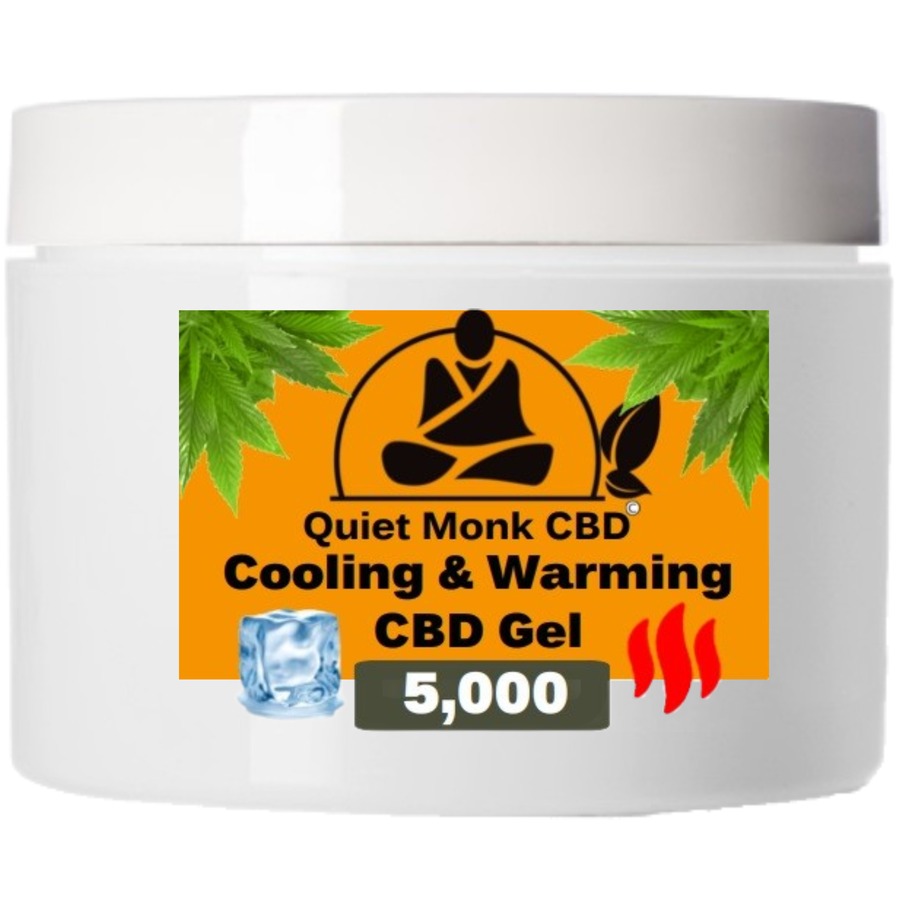
CBD products can help manage blood pressure. Edibles and capsules are two great options. They offer easy dosing and can be consumed discreetly. Plus, they have a longer onset time when absorbed, yet effects last longer. Also, each serving has precise amounts of CBD, making it great for those on medication.
Vegan gummies, coconut oil capsules – there’s something for everyone! But, watch out for nausea or an upset stomach if taken in large amounts. Start with small doses and increase gradually.
Try edibles or capsules today and feel the benefits of cannabinoids! Don’t forget to check out oils and tinctures either. Who needs a monitor? Get your heart racing with CBD!
CBD tinctures and concentrates are highly desired solutions infused with CBD (Cannabidiol). They’re popular for managing blood pressure due to fast-acting effects.
It’s key to review potency before use, as concentration levels of CBD in tinctures vary greatly from product to product. Check out the table below for reputable CBD tincture and concentrate products and their concentrations:
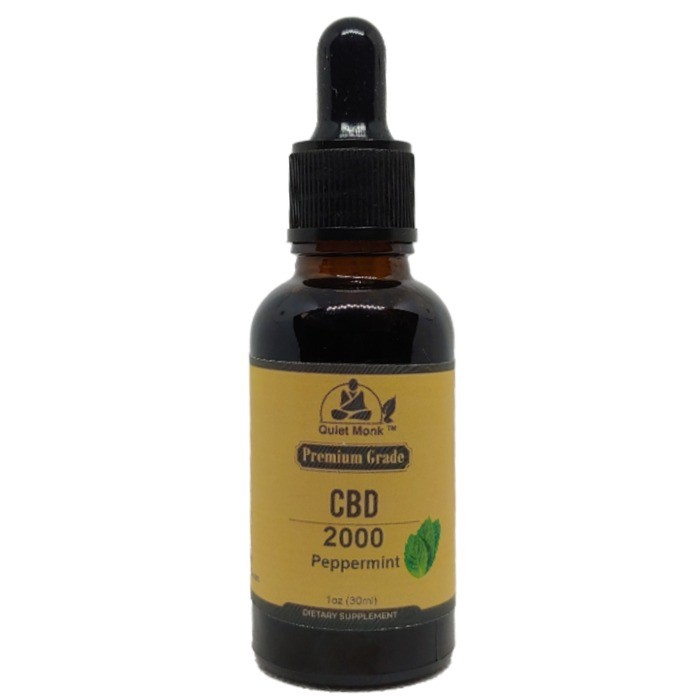
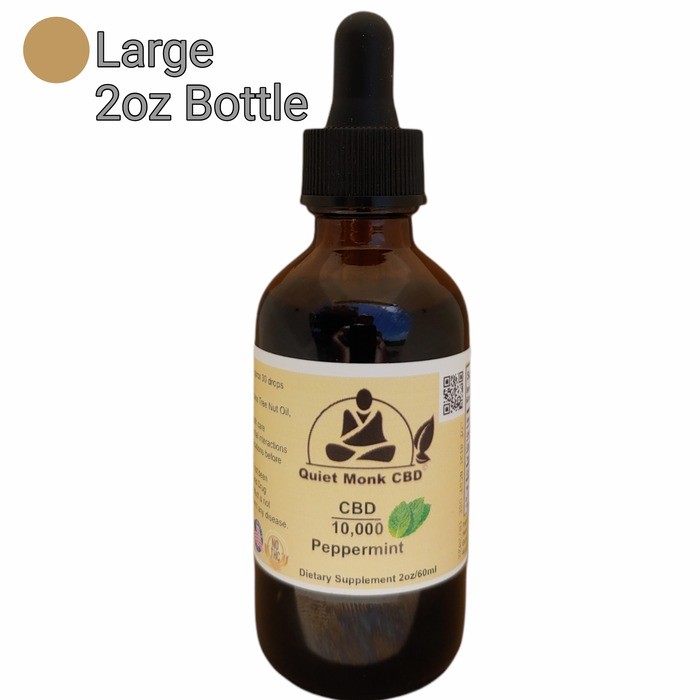
Remember, hold these products under the tongue for around 30 seconds for maximum effectiveness.
It’s wise to consult a doctor prior to starting any new supplement regimen.
According to a study published in The American Journal of Medicine, taking CBD daily may reduce systolic blood pressure by 5mmHg on average. CBD can do wonders for the heart! The future of medicine is looking greener.
CBD’s impact on Blood Pressure has gained massive focus as a potential medicine. New research demonstrates that CBD can reduce blood pressure by soothing arterial walls and diminishing inflammation. It could be a novel therapy for hypertension, a major danger factor for heart disease. The potency of CBD on blood pressure also relies on elements like dosage, frequency, and personal body chemistry.
Using CBD supplements with medical guidance can assist in managing high blood pressure levels. Adding healthy habits, such as frequent exercising, quitting smoking, and reducing salt intake can enhance general cardiovascular health.
1. Can CBD lower blood pressure?
There is evidence to suggest that CBD may have a positive effect on blood pressure, with some studies indicating that it can help to lower it. However, more research is needed in this area.
2. Is it safe to take CBD if you have high blood pressure?
Overall, CBD is considered safe for most people, including those with high blood pressure. However, it is always a good idea to speak with your doctor before adding any new supplements to your routine.
3. How does CBD affect blood pressure?
Although the exact mechanism is not fully understood, it is believed that CBD may help lower blood pressure by relaxing blood vessels and reducing inflammation.
4. What is the recommended dosage of CBD for blood pressure?
There is no specific dosage recommended for CBD and blood pressure, as individual responses can vary. It is generally recommended to start with a low dose and gradually increase as needed while monitoring for any potential side effects.
5. Are there any side effects of taking CBD for blood pressure?
While CBD is generally well-tolerated, some people may experience side effects such as fatigue, changes in appetite, or diarrhea. It is always a good idea to speak with your doctor before starting any new supplement regimen.
6. Can CBD interaction with blood pressure medication?
Yes, CBD may interact with certain medications, including some blood pressure medications. It is important to speak with your doctor before taking CBD if you are currently taking any medications to ensure there are no potential interactions that could be harmful.
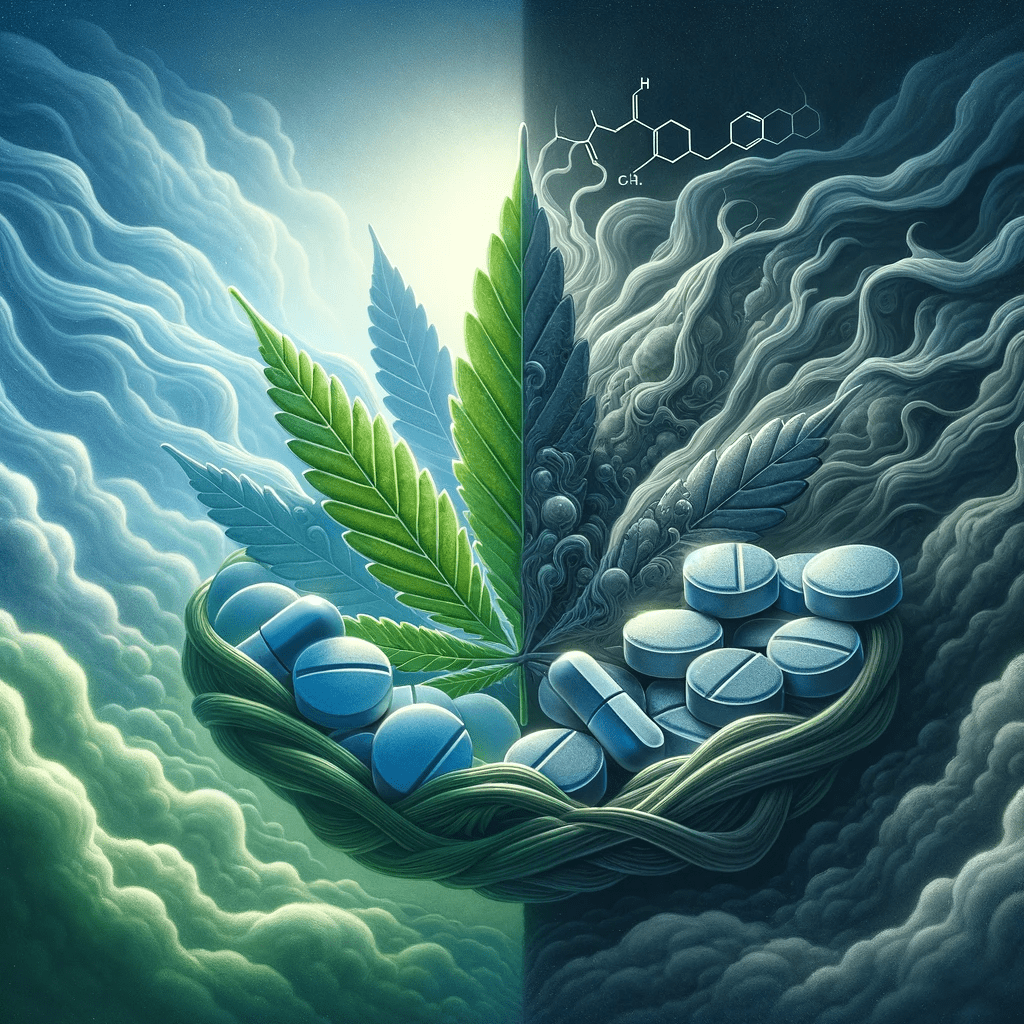
The short answer: Always check with your doctor or healthcare provider first!
Continue reading Can CBD Oil Interact With Depressants?
Anxiety, a mental health disorder that affects millions, has been studied regarding using CBD as a treatment. CBD, a cannabis plant component, is thought to have calming properties that can help manage anxiety symptoms. Studies suggest it may reduce social anxiety, general anxiety disorder and PTSD. However, more research is needed to understand how effective CBD is.
Studies in 2019 on mice showed lower anxiety and depressive behaviour in those given CBD. 2011 saw a small study finding people with social anxiety disorder experienced reduced anxiety with doses of CBD. 2015 saw patients with PTSD using CBD oil having significant reductions in hyperarousal symptoms compared to placebo.
It’s important to note that using CBD for anxiety should always be done with medical supervision. Additionally, the effects of different types and doses of CBD are still not fully understood. Preliminary data is promising, yet more research must be done before healthcare professionals can widely recommend it.
Survey results from Consumer Reports in 2019 found that among over 4,000 Americans using CBD regularly for conditions including anxiety, pain and insomnia, more than one-third said it was moderately or extremely effective for their condition. It looks like our endocannabinoid system was just waiting for some good ol’ CBD lovin’ to ease our anxious minds.
CBD’s interaction with the endocannabinoid system is unique. It interacts with the body’s receptor sites, CB1 and CB2. Plus, it exhibits a distinct mechanism by connecting with non-cannabinoid receptors like TRPV1, 5HT1A, and GPR55.
The table below shows some of CBD’s interactions with the endocannabinoid system:
| CBD’s Interaction With Endocannabinoid System | Mechanism |
|---|---|
| Inhibits FAAH enzyme | Increases anandamide levels |
| Antagonizes CB1 receptor | Reduces psychoactive effects of THC |
| Positive allosteric modulator on CB1 receptors | Enhances receptor’s ability to bind with agonists |
| Modulates COX-2 & LOX enzymes | Reduces inflammation |
CBD’s impact on non-cannabinoid receptors signals that it could have a wide range of applications beyond anxiety management. For example, it may help treat neuropathic pain, epilepsy, and depression.
Pro Tip: Before using any new products or supplements, always speak with a healthcare professional.
Studies suggest that CBD may help with managing anxiety symptoms. It interacts with receptors in the body responsible for regulating mood, such as serotonin. This can lead to reduced anxiety. Plus, it reduces inflammation and oxidative stress in neural tissue.
Most people find CBD safe and well-tolerated. But, it’s important to talk to your doctor before taking any new supplements or medications. Combining CBD with cognitive-behavioral therapy (CBT) may further improve treatment outcomes and quality of life.
CBD products – from gummies to oil – take on anxiety like a pro wrestler in the ring!

CBD’s ability to treat anxiety varies depending on the form used. It’s a popular topic of discussion amongst researchers and consumers. Let’s look at the different types of CBD and their use in treating anxiety.
The table below provides an overview of the different forms of CBD, their THC levels, dosage accuracy, administration methods, onset time, duration period, and effectiveness.
| Type | THC Level | Dosage Accuracy | Method of Admin. | Onset Time | Duration Period | Effectiveness |
|---|---|---|---|---|---|---|
| Full Spectrum CBD | < 0.3% | Not precise | Oral/Sublingual | 15-45 Minutes | 4-6 hours | High |
| Broad Spectrum CBD | None present (isolated) or 0.01% (distillate) | Precise (isolated) or not precise (distillate) | Oral/Sublingual consumption | 15-45 Minutes | 4-6 hours | High |
| CBD Isolate (Powder & Crystals) | None present (pure isolate) or less than 0.01%< br> | Precise | Oral, vaporizing or added to food & drinks | 15-60 minutes | Up to 12 hours <|/td> | Medium-high |
All three types are effective in treating anxiety. But there are big differences between them in terms of THC level, dosage accuracy, onset time, duration period, and administration methods.
When selecting the best CBD for anxiety, consider factors such as the severity of symptoms, personal preferences, and medical history.
Pro Tip: Always consult a healthcare professional before consuming any form of CBD. Finding the perfect CBD dosage for anxiety is like finding a needle in a haystack, but with more relaxation.
When figuring out the right CBD dosage for anxiety, weight, severity of symptoms, and individual tolerance must be taken into account. A good starting point is 20-40mg a day and increase by 5mg weekly until desired effects are achieved.
Everyone reacts differently to CBD, so finding the best dosage could take a while. Different forms of CBD, such as oils or capsules, can also affect its strength and absorption.
Research on CBD is ongoing and there’s no set dosage for anxiety yet. However, speaking to a healthcare professional and slowly increasing the dosage is advised to reduce any potential risks.
A study published in the Permanente Journal shows that CBD use in people with anxiety and sleep disorders was linked to major improvements in both areas. Don’t worry, the side effects of CBD are much milder than anxiety!
CBD for anxiety can come with side effects and risks. It is important to note the potential repercussions. Here are some things to keep in mind:
You should consider your own needs before trying CBD. Don’t use it in place of medication without professional help.
Pro Tip: Always talk to a doctor before taking supplements or changing your healthcare routine.
Looking on the bright side, using CBD for anxiety is much safer than watching the news.
Before using CBD for anxiety, speak to a healthcare professional. Start with a low dose and increase gradually, if needed. Research the brand and make sure it is trustworthy. Do not take high doses or overdose.
Note: Full-spectrum CBD might contain traces of THC that may trigger a positive drug test. Tell your employer or authorities about your CBD usage and THC levels. Also, keep a journal to track anxiety symptoms and dosage adjustments.
At the end of the day, if CBD helps reduce anxiety, who cares if it’s the placebo effect?
CBD, a chemical compound from cannabis plants, may help with anxiety. Research has shown that CBD may interact with receptors in the brain, which control mood and anxiety. More studies are needed to fully grasp the advantages of CBD for anxiety. Nonetheless, some people have stated they felt a decrease in their anxiousness after using CBD products.
Moreover, it is worth noting that CBD is usually tolerated by people with minimal side effects. Furthermore, it is lawful in many parts of the world, making it simple to obtain for those wanting to use it for their anxiety.
If you are interested in CBD for anxiety, it is essential to firstly consult with a doctor to check if it is a suitable treatment. Additionally, finding a trustworthy provider of top-notch CBD items can guarantee safety and effectiveness.
Advice: If you’d like to try CBD for anxiety, begin with a low dose and gradually increase as necessary under the guidance of a healthcare specialist.
Q: Can CBD help with anxiety?
A: Yes, CBD has been found to have calming effects on the body and can help reduce symptoms of anxiety.
Q: How does CBD work for anxiety?
A: CBD interacts with the body’s endocannabinoid system, which regulates mood, sleep, and appetite, among other things. It can help stimulate the production of serotonin, a hormone that regulates mood, and decrease the production of cortisol, a stress hormone.
Q: Is CBD safe for anxiety?
A: CBD is generally considered safe for most people, but it can interact with certain medications. It’s important to talk to your doctor before using CBD, especially if you’re taking other medications.
Q: How do I take CBD for anxiety?
A: CBD can be taken in a variety of forms, including oils, capsules, gummies, and topical creams. The best form and dosage of CBD for anxiety can vary depending on the individual, so it’s best to start with a low dose and speak with a healthcare professional for guidance.
Q: Are there any side effects to taking CBD for anxiety?
A: Some people may experience side effects such as fatigue, dry mouth, or changes in appetite when taking CBD. However, these side effects are typically mild and go away on their own after a short period of time.

CBD, a compound from the Cannabis sativa plant, is one of over 100 phytocannabinoids. Unlike THC, it doesn’t cause a “high”. Instead, CBD has possible health benefits and therapeutic properties.
It interacts with the body’s ECS. This system has a vital role in regulating mood, appetite, sleep, and immune function. CBD may also act on serotonin receptors in the brain, which are linked to mood and anxiety.
Studies indicate that CBD may help reduce depression symptoms by linking with the ECS and decreasing brain inflammation. Further research is needed to learn how effective it is.
Healthy lifestyle choices, such as exercise and diet, may help mental health. It’s also beneficial to receive professional guidance from a therapist or doctor when dealing with depression.
While exploring natural remedies like CBD for potential mental health benefits, it’s crucial to consider a holistic approach.
Alongside lifestyle choices such as exercise and diet, some individuals may find solace and relaxation through alternative methods.
For those who seek a more traditional route, One Stop Pipe Shop, a trusted online headshop, provides a curated selection of pipes and bongs that can be part of a mindful and leisurely experience.
Depression is a mental health disorder that affects millions. It causes persistent sadness, hopelessness, and loss of interest in activities. Life events, genetics, chemical imbalances, and other medical conditions can trigger it. Symptoms vary and can include changes in appetite, sleep disturbances, fatigue, and physical aches. Understanding depression helps with diagnosis and treatment.
Research suggests CBD may help with some depression symptoms. It interacts with the body’s endocannabinoid system (ECS). This system helps regulate mood, emotions, and stress response. By triggering receptors, CBD may reduce anxiety and improve cognitive function. It may also boost serotonin levels – linked to happiness and well-being.
Research on CBD for depression is still new and limited. Results are mixed, with some showing promise and others showing no effect. More research is needed to understand its potential benefits and risks.
If you or someone you know is struggling with depression, seek professional help. A therapist can provide guidance on treatment and lifestyle changes like exercise.

To understand how to alleviate depression with CBD, you need to analyze how CBD affects the brain. CBD’s interaction with the brain is one of the sub-sections we will cover. The next sub-section focuses on CBD’s effect on serotonin, which plays a crucial role in mood regulation. Finally, we will discuss CBD’s anti-inflammatory properties, which can help mitigate the symptoms of depression by reducing inflammation in the body.
CBD indirectly interacts with the brain, influencing the endocannabinoid system. This helps regulate mood, appetite and sleep. It interacts with CB1 and CB2 receptors, reducing inflammation, anxiety and pain.
Studies suggest that CBD interacts with neurotransmitters like serotonin, dopamine and GABA. This could help symptoms of depression, by lowering cortisol levels.
Research further indicates that CBD induces neuron growth in the hippocampus, an area of the brain that regulates mood. Its anti-inflammatory properties could also be beneficial for depression, as neuroinflammation is linked to mood disorders.
If you’re considering alternative treatments for depression, speak to your health provider about adding CBD to your plan. Research is still ongoing, but early results are promising. Don’t miss out on this potential relief!
CBD’s impact on serotonin levels is significant. It acts as a reuptake inhibitor, preventing serotonin from breaking down too quickly. This boosts serotonin levels, potentially helping with depression symptoms such as anxiety and low mood.
Depression is often linked to low serotonin levels. CBD oil could be a potential alternative to prescription antidepressants, as one woman found. She reported feeling more stable and less anxious after using it – although this is not typical for everyone.
CBD also has anti-inflammatory properties, which may improve brain function. Say goodbye to inflammation and hello to good vibes with this natural option!
CBD has the power to interact with the endocannabinoid system, which can fight against inflammation. This can help reduce depression symptoms as inflammation in the brain can decrease serotonin levels, thus leading to depression. CBD’s anti-inflammatory properties can also benefit those with autoimmune diseases and arthritis.
Studies show that CBD can lower pro-inflammatory cytokines. It does this by activating certain receptors in the body’s endocannabinoid system. These receptors regulate inflammation and the immune response, and by targeting them, CBD can help limit the release of inflammatory molecules and reduce inflammation overall.
It’s essential to remember that CBD may help, but it should not be used as a substitute for traditional therapy or medication. Ask a healthcare professional before starting any new treatment.
One person with depression and chronic pain noticed a significant improvement after taking CBD. She still uses medication and therapy, but adding CBD has assisted in managing her pain and improving her mood without any adverse effects.
To understand the effectiveness of CBD in treating depression, studies on CBD and depression with evidence from animal and human studies can provide insight. The evidence from animal studies and human studies are two sub-sections of this section that present scientific evidence that support the potential of CBD in treating depression.
Animal studies have been conducted to see if CBD helps with depression. Results showed that CBD could regulate mood and reduce depression-related behaviors by affecting the serotonin receptors in the brain.
Study 1 found that CBD had an antidepressant effect, due to its effect on serotonin.
Study 2 showed that CBD could increase proteins connected with neuroprotection and reduce inflammation in the region of the brain connected with mood, anxiety and depression.
Study 3 suggested that CBD could help with post-traumatic stress disorder and depression behaviors by reducing bad memories.
Animal studies have limited value when it comes to humans. However, these findings suggest future research should investigate CBD as a possible way to deal with depression.
A holistic approach to managing depression is best. This includes cognitive-behavioral therapy, medication and alternative treatments like yoga and mindfulness meditation.
CBD may be an effective treatment for depression. Studies suggest it can change brain function to improve mood and reduce anxiety. Additionally, CBD may boost the effects of traditional antidepressants. More research is needed to understand its benefits and risks.
CBD has been studied for anxiety, PTSD, and other mental health conditions. Results are encouraging, but more scientific research is required to determine its safety and efficacy.
For some individuals, CBD has had a significant impact on their symptoms. But, others have reported no effect. Dosage, administration method, and individual biology may all influence its effectiveness.
Jane experienced success with CBD for her depression. She added CBD oil to her routine and noticed a huge improvement in just a few weeks. While more research is needed, personal stories like Jane’s demonstrate CBD’s potential for those with mental health issues.
To explore CBD as a potential treatment option for depression with a focus on its advantages over traditional antidepressants and the recommended dosage and administration. Discover how CBD could be the alternative solution you’ve been looking for to manage your symptoms effectively.
Cannabidiol (CBD) has potential as an alternative to regular depression medications. Benefits include fewer side effects, faster results, and a more natural approach than antidepressants. Additionally, CBD is non-addictive and may work for conditions that other drugs don’t.
Plus, there are less long-term health concerns and no interactions with other drugs when taking CBD oil. It works even on those with treatment-resistant depression who don’t respond to regular medicine.
As research continues, speak to your doctor about integrating CBD into your treatment plan. Don’t miss out on possible options; consider talking to your therapist about CBD today! Finding the correct dosage is easier than finding a therapist who takes your insurance.

CBD may be an effective treatment for depression, but one must figure out the right dosage and method to use it. Factors like body weight, severity of symptoms, existing health conditions, etc. should be taken into account when dosing CBD for depression.
Here are some things to keep in mind:
Keep in mind that everyone’s needs will be different and there is no fixed dosage.
Start small and increase weekly until therapeutic dose is reached. It may take several weeks to see results. One person’s experience was easy, unlike pharmaceuticals. CBD may help, but it won’t make your boss nicer!
We should think about CBD’s potential side effects before using it. These may include dry mouth, dizziness, nausea, fatigue, and changes in appetite. These reactions are usually mild and temporary, but they can be different from person to person. Also, it is important to note that CBD interacts with certain medications, so consulting a doctor before using it is essential.
Higher doses of CBD may lead to liver toxicity. But more research is needed to know for sure. Everyone’s body chemistry is different, so the possible side effects may not apply to all individuals.
Using CBD to relieve depression symptoms has become popular. But researchers haven’t studied it enough yet. Some studies suggest CBD may interact with receptors involved in mood regulation and help manage depression symptoms. Before starting or stopping any medication or supplement, it is best to get advice from a healthcare provider.
A study of a woman taking 50 mg/day of CBD for anxiety and sleep disorders revealed clinical improvement after one month. She reported fewer anxiety symptoms and better sleep quality, without side effects. While this suggests positive outcomes for some users, more studies are necessary to confirm these results.
Why not try out all natural remedies for depression and become the most zen version of yourself?
Depression is a serious medical issue that affects millions of people globally. Alongside medication and therapy, there are natural remedies that can help those suffering from this illness. These treatments can reduce symptoms, support mental health, and elevate mood.
Three natural remedies for depression are:
It’s crucial to remember that everyone experiences depression differently; thus, locating the right alternative treatment may take time and experimentation. It would be wise to consult with a healthcare professional before beginning any new treatment plan.
An encouraging approach worth considering is Transcranial Magnetic Stimulation (TMS). TMS uses a non-invasive magnetic field to stimulate certain areas in the brain that control mood. The results have been good with few or no side effects.
Alice’s Story:
Alice had battled depression for years but was hesitant about conventional medication. She began including mindfulness practices in her daily routine and modifying her diet. She found these lifestyle changes were helpful in reducing her depressive symptoms. Even though it wasn’t an immediate fix, she saw notable improvements over time.
Can CBD help with depression? It might not replace your therapist, but it could make them more pleasant.
CBD may be able to help manage depression symptoms. Its anti-inflammatory and neuroprotective properties interact with the body’s endocannabinoid system to potentially reduce anxiety and depression levels. Research is still needed, but CBD could be a useful addition to traditional treatments.
Studies have revealed that CBD can activate serotonin receptors in the brain. This increases the amount of this neurotransmitter, leading to improved mood and reduced sadness or hopelessness. Some users find relief from insomnia and other sleep-related issues when using CBD.
It’s essential to remember that while CBD may be beneficial for managing depression, it shouldn’t replace professional medical advice or treatment. Always talk to a healthcare provider before beginning any supplement regimen.
Don’t miss out on potential relief – ask your doctor about adding CBD to your treatment plan!
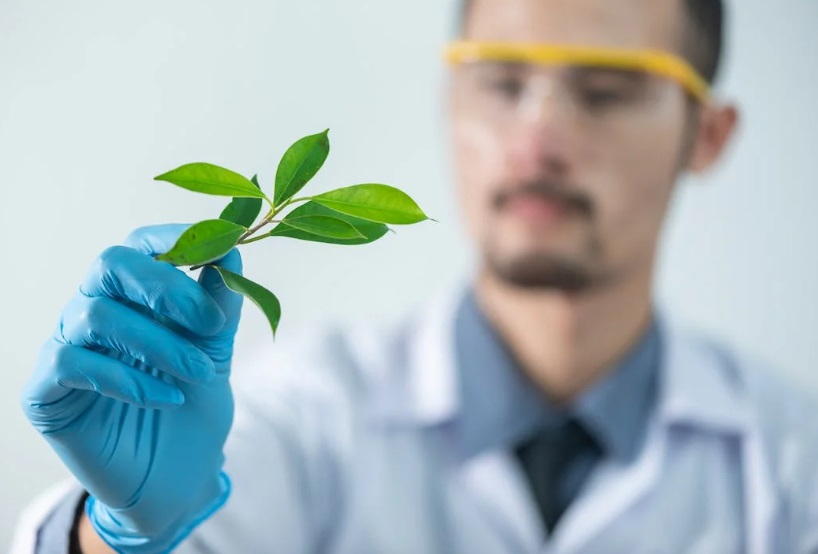
Q: What is CBD?
CBD stands for cannabidiol, which is a naturally occurring compound found in the cannabis plant. It is non-psychoactive, meaning it does not produce the “high” associated with marijuana use.
Q: Can CBD help with depression?
There is evidence to suggest that CBD may help alleviate symptoms of depression, but more research is needed. CBD has been found to have a positive effect on serotonin levels, which are often low in people with depression.
Q: Is CBD a substitute for antidepressants?
No, CBD should not be used as a substitute for prescribed antidepressants without consulting a doctor. It may be used alongside other treatments, but should not replace them.
Q: How should CBD be taken for depression?
CBD can be taken in a variety of forms, including oil, capsules, edibles, and topicals. The best method of ingestion will depend on personal preference and the severity of symptoms.
Q: What are the side effects of CBD?
CBD is generally considered safe, but some people may experience side effects such as fatigue, nausea, and changes in appetite. It is important to talk to a doctor before starting any new treatment.
Q: Is CBD legal?
The legality of CBD varies by state and country. In the United States, CBD derived from hemp containing less than 0.3% THC is legal at the federal level, but still may be prohibited by state or local laws. It is important to research the laws in your specific area before using CBD.
CBD, or cannabidiol, is a compound found in cannabis. It interacts with our body’s endocannabinoid system, which is responsible for regulating functions like appetite, sleep, pain, and immune response. Unlike THC, CBD does not create a psychoactive effect.

Studies suggest that CBD can reduce anxiety and depression symptoms, help improve sleep, reduce inflammation and maybe even reduce seizures in people with epilepsy.
CBD is gaining attention for its potential in addiction recovery. Some studies indicate it can reduce drug cravings and anxiety associated with withdrawal. However, more research is needed to fully understand the impact of CBD on addiction recovery. It shouldn’t replace traditional treatments and therapy. Talk to a doctor before using it as part of an addiction treatment plan.
Meditation and exercise are other strategies that may help with addiction recovery. These activities can reduce stress and promote feelings of wellbeing, which may support recovery efforts. Don’t kick the habit – let CBD help you gently nudge it towards the door.
CBD’s potential in aiding addiction recovery has gained much attention lately. With various studies showcasing its ability to reduce anxiety and depression, it might prove useful in managing symptoms of withdrawal.
Notably, CBD might help regulate the body’s endocannabinoid system, which affects functions like mood, pain, and appetite. This regulation might help in reducing cravings and managing stress, which can contribute to relapse. Additionally, CBD might have anti-inflammatory properties that can assist in treating various underlying conditions such as chronic pain and sleep disorders.
Furthermore, studies have reported CBD’s potential in reducing drug-seeking behaviors in animal models of addiction. Although more research is needed to establish its effectiveness in humans, early indications suggest that CBD might help in managing addiction to substances like opioids and cocaine.
A former drug addict, George, shares how CBD helped him in his addiction recovery. George revealed that despite several attempts, he struggled with addiction and the accompanying withdrawal symptoms. However, after discovering CBD, he found that it eased his anxiety and cravings significantly, enabling him to overcome his addiction.
Overall, although more research is needed, CBD’s potential in aiding addiction recovery cannot be ignored. Its effectiveness in treating various underlying conditions and reducing addiction-related symptoms make it an intriguing option for those struggling with addiction.
Why quit cold turkey when you can kick opioids to the curb with CBD? Your body will thank you, and so will your sense of humor.

CBD could aid in opioid addiction recovery. Data suggests it can help lessen withdrawal symptoms, reduce the successful outcome of opioids, and decrease cravings. Plus, it can also better mood and thinking abilities, making it simpler for people to deal with emotional issues during recovery. Adding CBD to a complete treatment plan can back up long-term sobriety.
So, get rid of your stress ball and use CBD oil instead – it’s a more laid back way to manage your cravings and anxiety.
Research suggests CBD can help cope with addiction recovery. It interacts with our endocannabinoid system to regulate mood, sleep, and appetite – resulting in less anxiety and fewer withdrawal symptoms. Plus, CBD has been found to weaken the power of addictive substances like alcohol and opioids. By using CBD during recovery, one can better manage triggers and enhance their chances of long-term sobriety.
CBD also has a unique benefit – it may tackle low mood or depression which is often experienced during early recovery. Studies have demonstrated CBD’s antidepressant effects, aiding with the emotional challenges of alcohol or drug withdrawal. Although many have reported success with CBD, individual results might differ.
Pro Tip: Always consult a medical professional before adding new supplements like CBD to your addiction recovery plan. With CBD, you’ll sleep like a baby and your mood will thank you!
Research suggests that CBD products has the potential to aid with sleep and mood. Studies show it interacts with receptors related to sleep and anxiety, reducing stress and increasing relaxation. It also increases serotonin, which improves mood and decreases depression symptoms.
CBD could provide relief from chronic pain and inflammation, which often cause sleep issues and low mood. Remember that everyone responds to CBD differently – depending on dosage and consumption.
If you or someone you know has sleep or mood issues, consider CBD with a medical professional. Don’t miss out on potential benefits that could improve your quality of life! Who knew CBD was a way out, not a gateway to addiction?
In recent times, many research studies have been conducted to explore the potential of CBD in addiction recovery. These studies have concluded that CBD may have therapeutic effects on individuals struggling with addiction. CBD has the potential to minimize the intensity of withdrawal symptoms, including anxiety, depression, and nausea, which ultimately reduces the risk of relapse. Additionally, CBD may also enhance the efficacy of traditional addiction recovery treatments.
Furthermore, studies have shown that CBD can prevent drug-seeking behavior and reduce drug-induced euphoria. This is because CBD directly works on the brain’s reward circuitry, which is responsible for the development of addiction. Although more extensive research studies are required to gain a deeper understanding of CBD’s clinical applications in addiction recovery, the initial findings are promising.
Unique details uncovered include CBD’s ability to reduce cravings for nicotine and opioids. CBD can accomplish this by regulating the addictive drug’s rewarding effects by modifying brain circuits. Besides, studies have found that using CBD as part of addiction recovery can lead to improved mental health and better cognitive performance.
Anecdotal evidence from individuals who have utilized CBD in their addiction recovery process has been incredibly positive. Most of these individuals have reported decreased anxiety, better stress-management skills, and a reduced risk of relapse.
In the past, individuals who were in recovery had limited alternatives available for treatment, and they had to rely on traditional addiction recovery methods exclusively. However, research studies have discovered that CBD has the potential to enhance the traditional addiction recovery process, providing hope for individuals seeking alternative treatment options for addiction recovery.
CBD has been studied for its role in reducing drug-seeking behavior in rodents. Research shows it can reduce anxiety and stress levels, which are triggers for relapse.
The first study to find an impact of CBD on drug-seeking behavior in rodents was conducted by Dr. Friedbert Weiss in 2006. Since then, various groups have tried to confirm these findings.
Studies show CBD might be a good way to treat addiction in humans. It seems to ease withdrawal symptoms, cravings, and anxiety that come with substance abuse. It also looks like using CBD won’t lead to dependency or tolerance. However, more research is needed to understand how CBD helps addiction.
A pro tip: CBD should not replace a complete treatment plan from a medical professional. It’s not enough to fix the root problem of addiction.
Studies on the potential benefits of CBD in addiction recovery have limitations. This means more exploration is needed. Researchers must conduct more extensive and rigorous clinical trials that use standard protocols. These will ensure results can be compared. What’s more, studies need to look into optimal dosages and administration routes, as well as long-term outcomes.
Despite these limitations, current evidence supports the idea that CBD may reduce substance use disorders and relapses. It could also help ease symptoms of anxiety, depression, and other conditions that often come with addiction. Future studies should answer questions about safety and effectiveness when used with conventional treatments like psychotherapy or pharmacotherapy.
Many people have reported positive experiences using CBD as an addiction recovery tool. But, in some countries, legal regulations make accessing quality CBD products hard. So, advocacy groups are campaigning for better drug policies that would make alternative therapies like CBD more accessible. This could improve treatment outcomes for those with addiction.
1. Can CBD help with addiction recovery?
Research suggests that CBD may have potential for helping with addiction recovery. It has been shown to reduce drug cravings and may have a positive impact on the brain’s reward system.
2. How does CBD work for addiction recovery?
CBD interacts with the endocannabinoid system, which plays a role in regulating various physiological and cognitive processes, including addiction. It may help to reduce drug cravings and alleviate symptoms of withdrawal.
3. Is CBD a substitute for other addiction treatments?
No, CBD is not a substitute for other addiction treatments, such as counseling or medication-assisted treatment. It can be used in conjunction with these treatments and may enhance their effectiveness.
4. Are there any side effects of using CBD for addiction recovery?
While CBD is generally well-tolerated, some people may experience side effects such as fatigue, diarrhea, or changes in appetite. It is important to talk to a healthcare professional before using CBD for addiction recovery.
5. Is CBD legal for addiction recovery?
The legality of CBD varies by state and country. In the United States, CBD is legal at the federal level if it is derived from hemp and contains less than 0.3% THC. However, some states have stricter laws regarding CBD.
6. How should I use CBD for addiction recovery?
The optimal CBD dosage for addiction recovery is not well-established, and may vary depending on factors such as the severity of addiction and individual tolerance. It is important to start with a low dose and gradually increase until you achieve the desired effect. It is also important to use high-quality CBD products from reputable manufacturers.
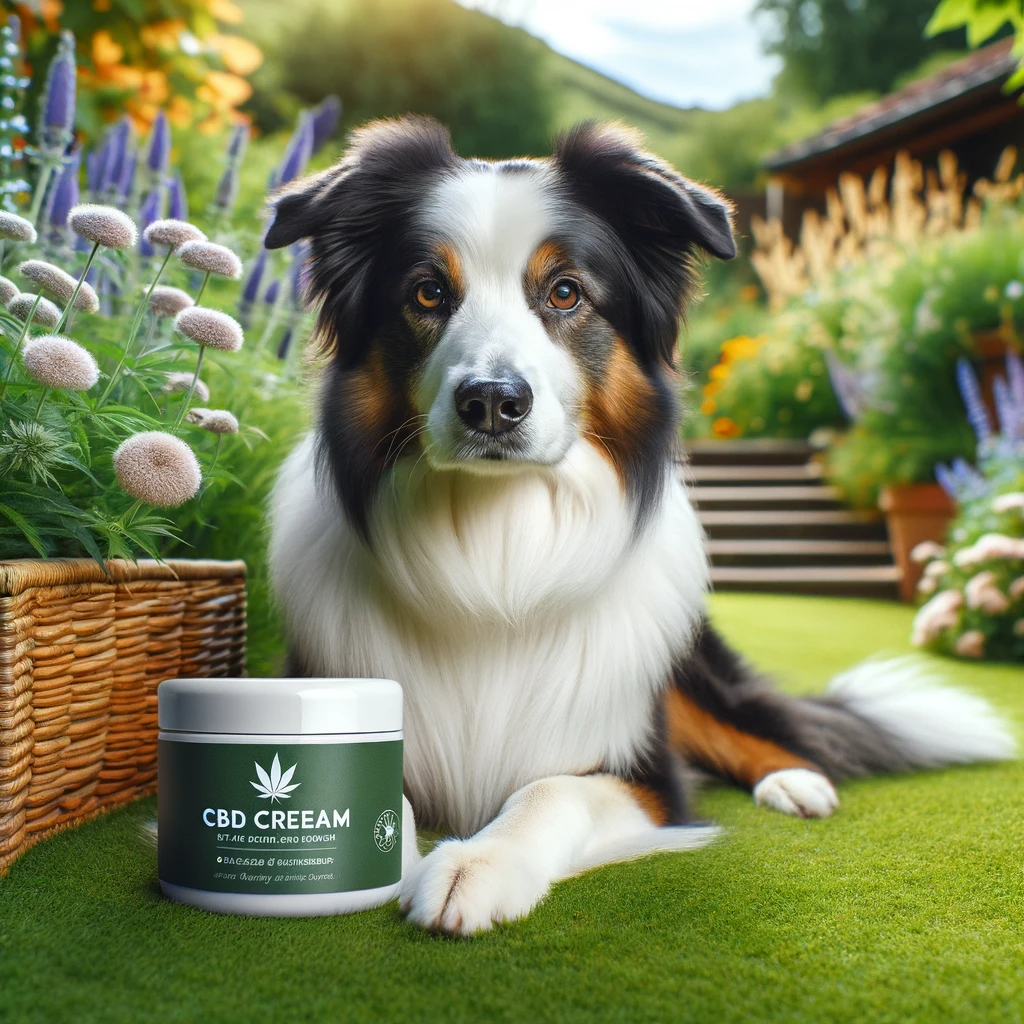
CBD cream has become a hot topic here recently – pet owners are wondering if it’s safe to use on their furry friends. A word of caution: products designed for humans may have ingredients that can harm dogs, so make sure you get a cream specifically for your pets.
The short answer is yes. However read the entire article for all the info and what to look for!
Continue reading Can I Use CBD Cream on Dogs?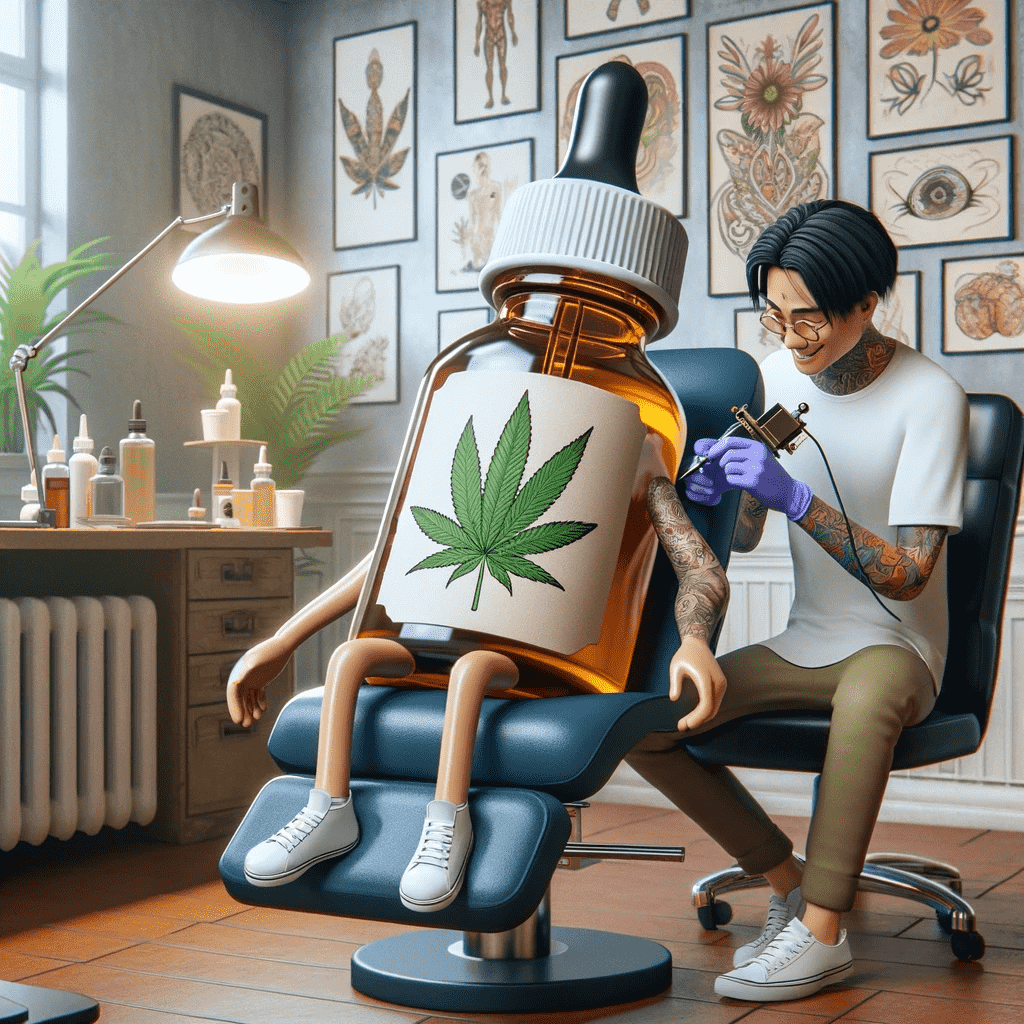
CBD Oil: Analgesic for Pre-Tattoo Pain. A Guide.
Want a tattoo? CBD oil can help. It attaches to CB2 receptors in the body’s endocannabinoid system, reducing inflammation and pain.
Continue reading How Can CBD Oil Help You Before Getting A Tattoo?
Manuka honey has been a natural remedy for centuries. It can help with healing tattoos, too. This honey has antibacterial properties that can prevent infection. But, always talk to a dermatologist or tattoo artist first.
It’s important to buy high-quality manuka honey, with a high UMF (unique manuka factor). Put a thin layer of honey on the tattoo and keep it on for 20-30 minutes. Then, wash off with warm water.
Continue reading Can You Use Manuka Honey And CBD On Tattoos?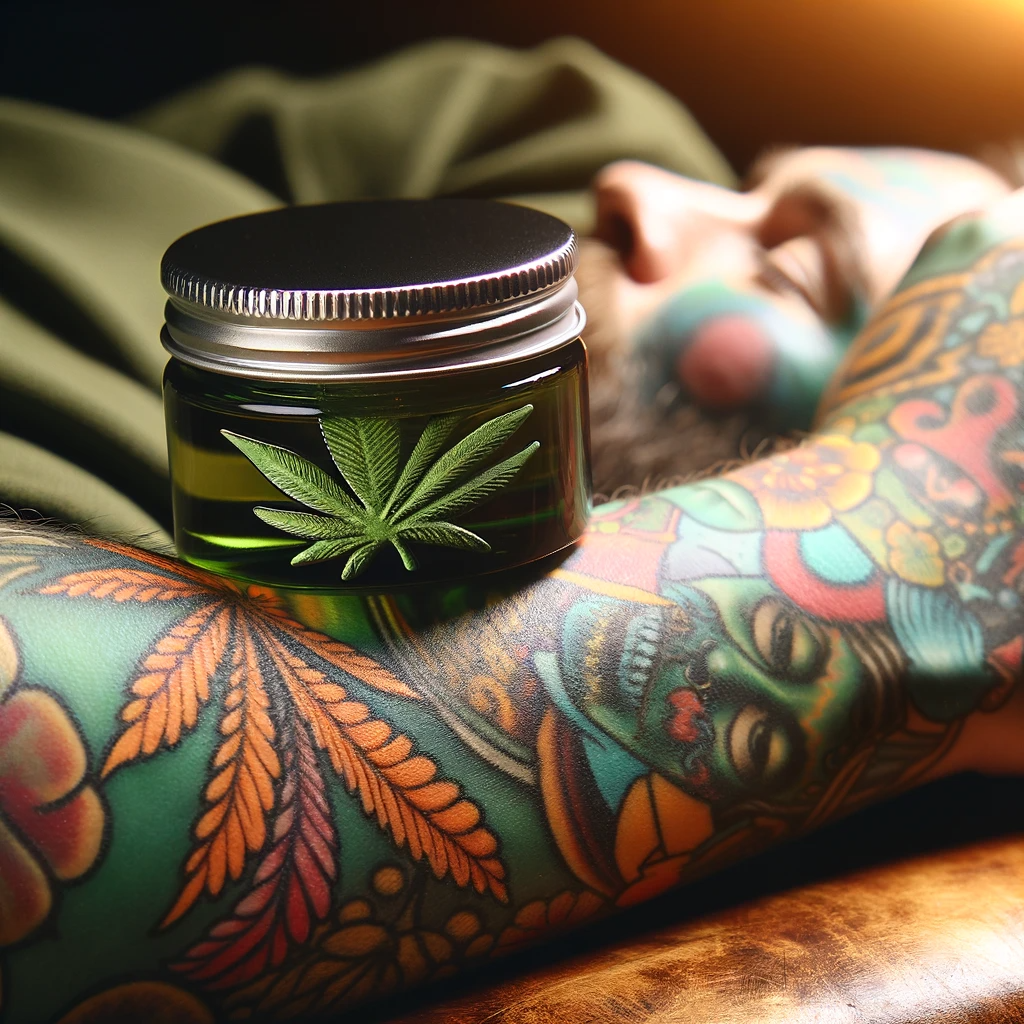
CBD salve is a suitable option for new tattoo care. It has anti-inflammatory properties and can reduce swelling and redness. Moisturizing benefits aid in keeping skin soft and hydrated during healing. However, it’s important to consult a tattoo artist or dermatologist first.
Continue reading Can You Use CBD Salve On a New Tattoo?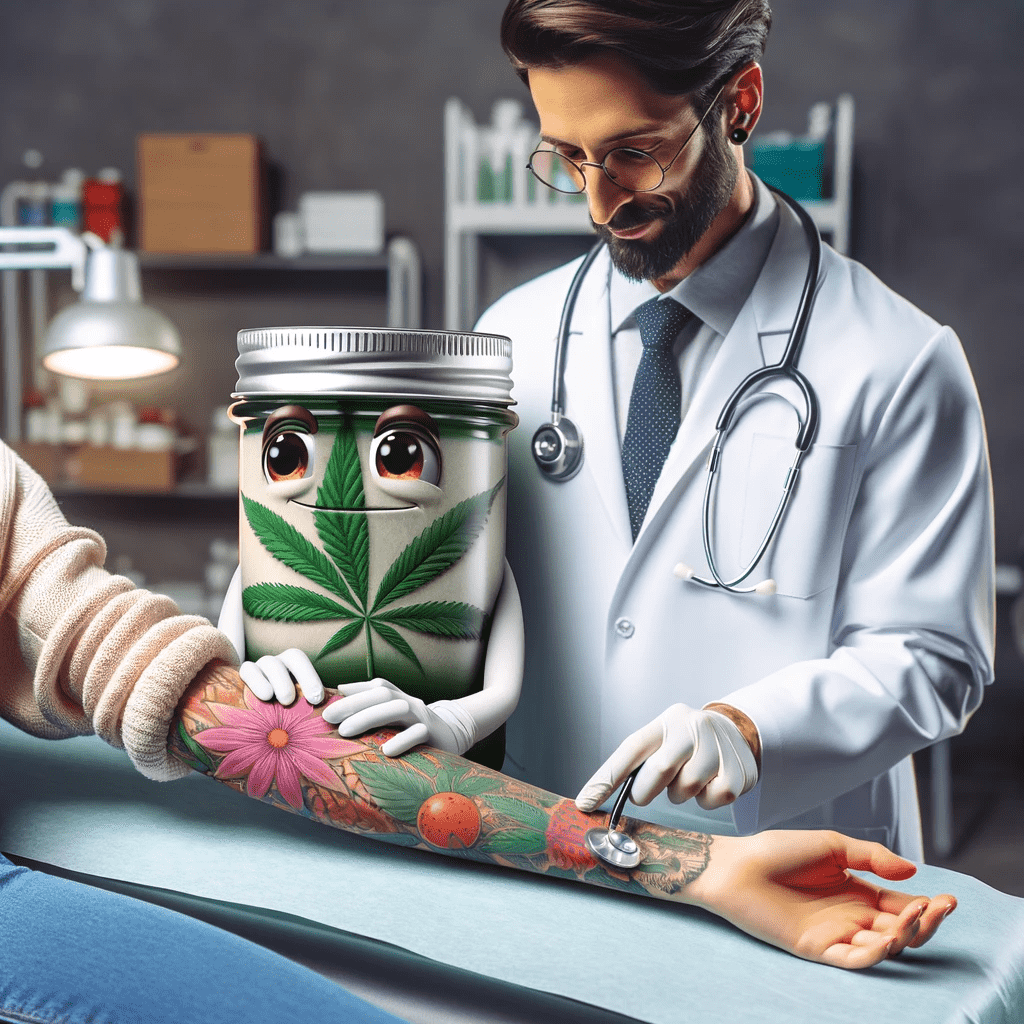
CBD Balm: Your Tattoo’s Best Friend!
CBD balm is a special ointment made with Cannabidiol, a compound derived from cannabis plants. It’s popular in the tattoo industry because it helps enhance the healing process and soothe irritation.
This balm includes essential fatty acids, vitamin E, and other nourishing ingredients that keep skin healthy. Plus, it has anti-inflammatory and analgesic properties to help reduce pain and inflammation. The cannabinoid compounds in CBD balm can even speed up the skin regeneration process and protect against environmental factors.
Continue reading Is CBD Balm Good For Healing Tattoos?